DQ Drama Quarterly


Meeting Máxima in Amsterdam Unmasking Zorro for a new generation On the clock with real-time drama Finding Truelove Making Paper Dolls Sowing The Seed Inside The Last of Us And more...



£5/US$8
£5/US$8
031
. Fall 2023
Please join us for the MIPCOM CANNES
World Premiere
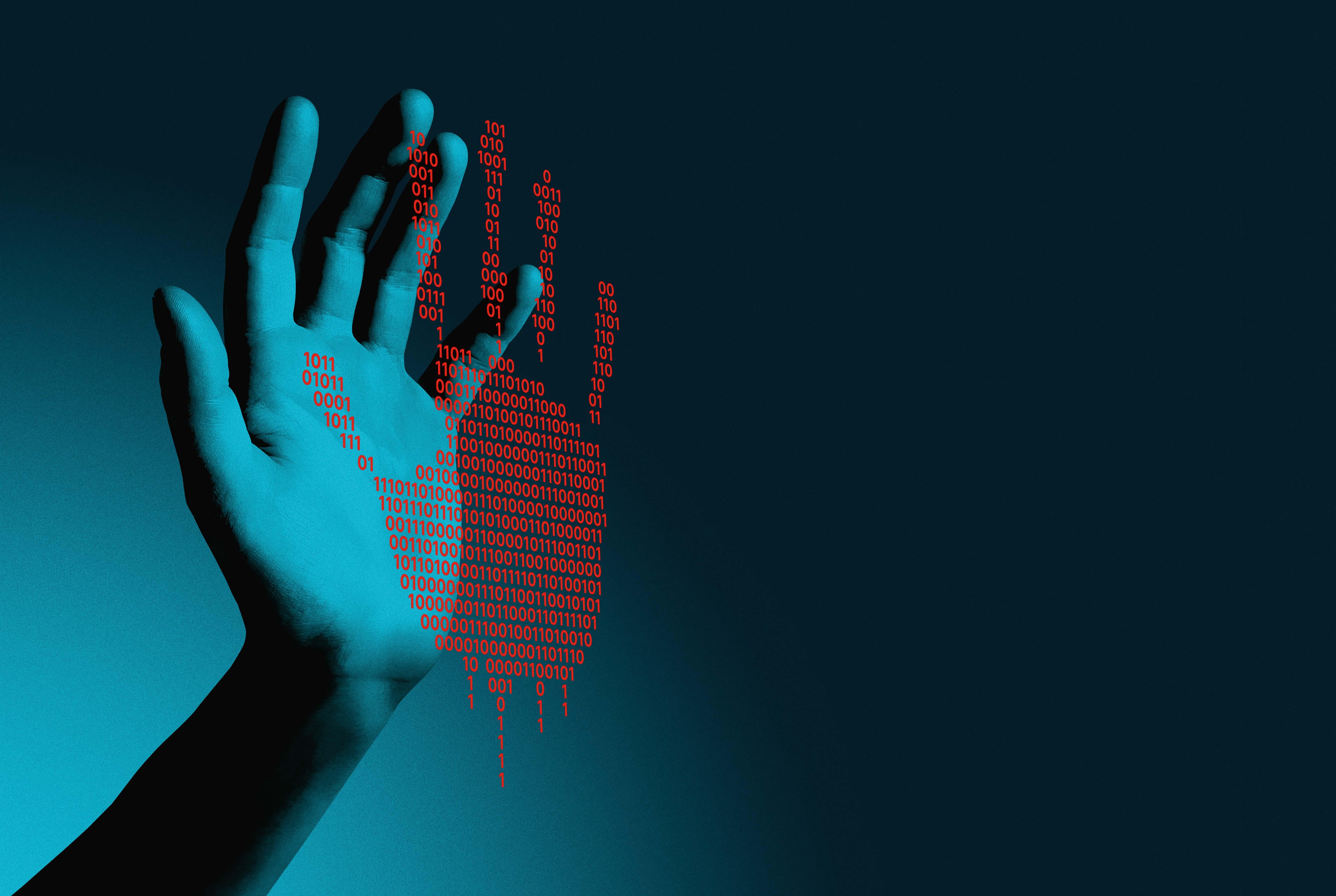
Screening
Tuesday, October 17 th 6.00 - 7.15 pm
Palais des Festivals
Grand Auditorium
EVERY TRUTH LEAVES A TRACE




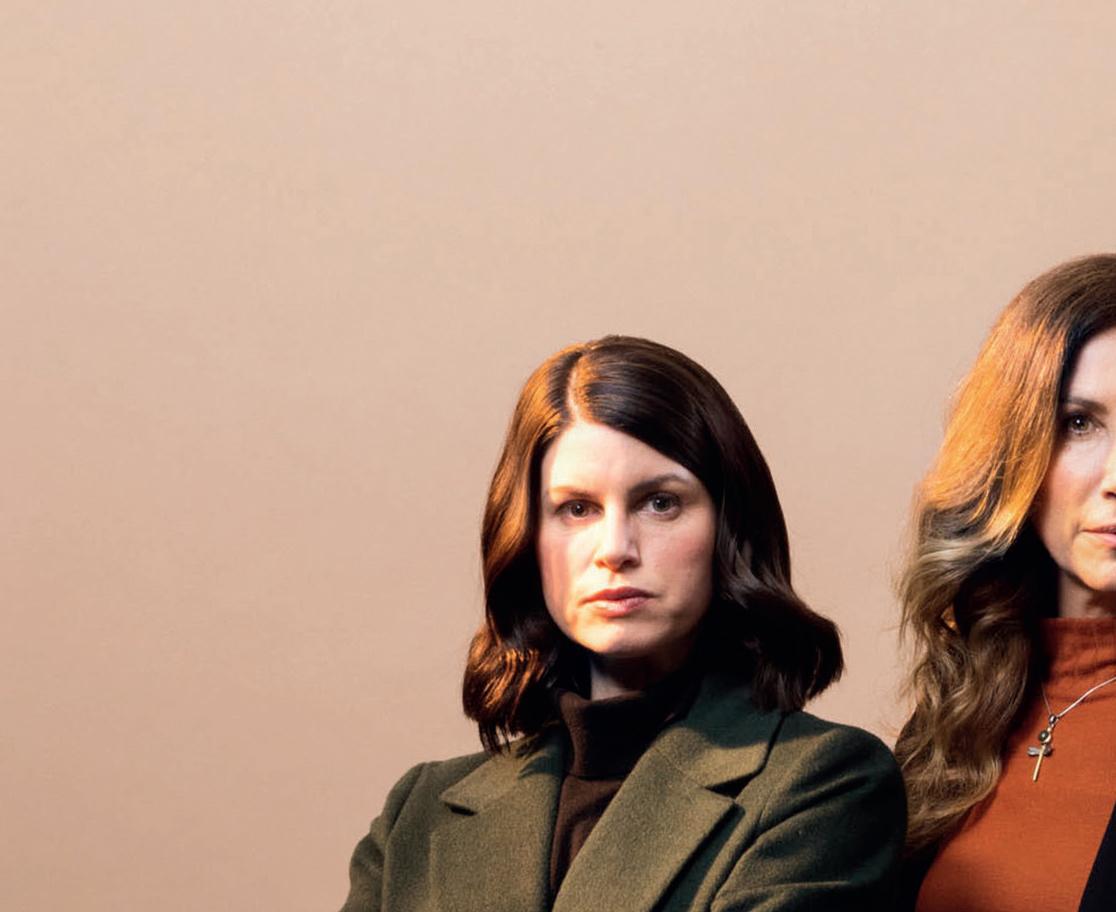



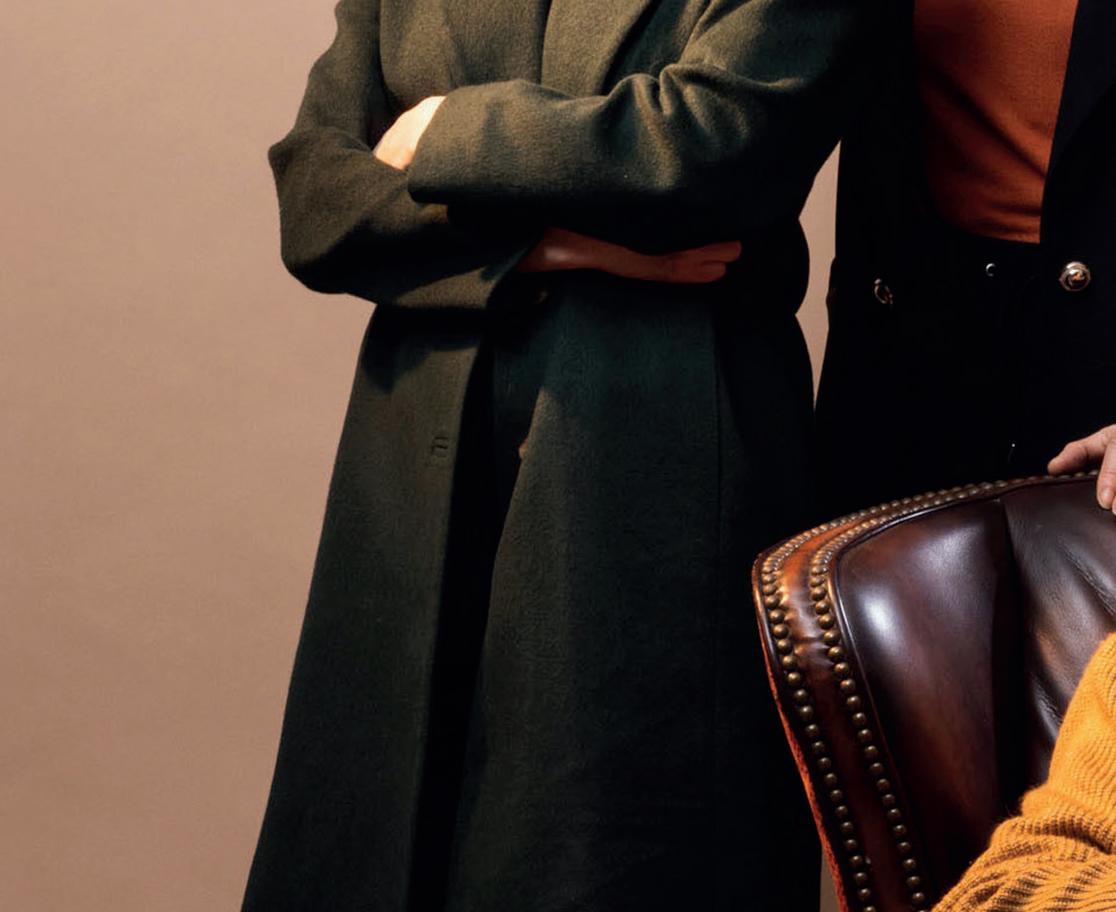
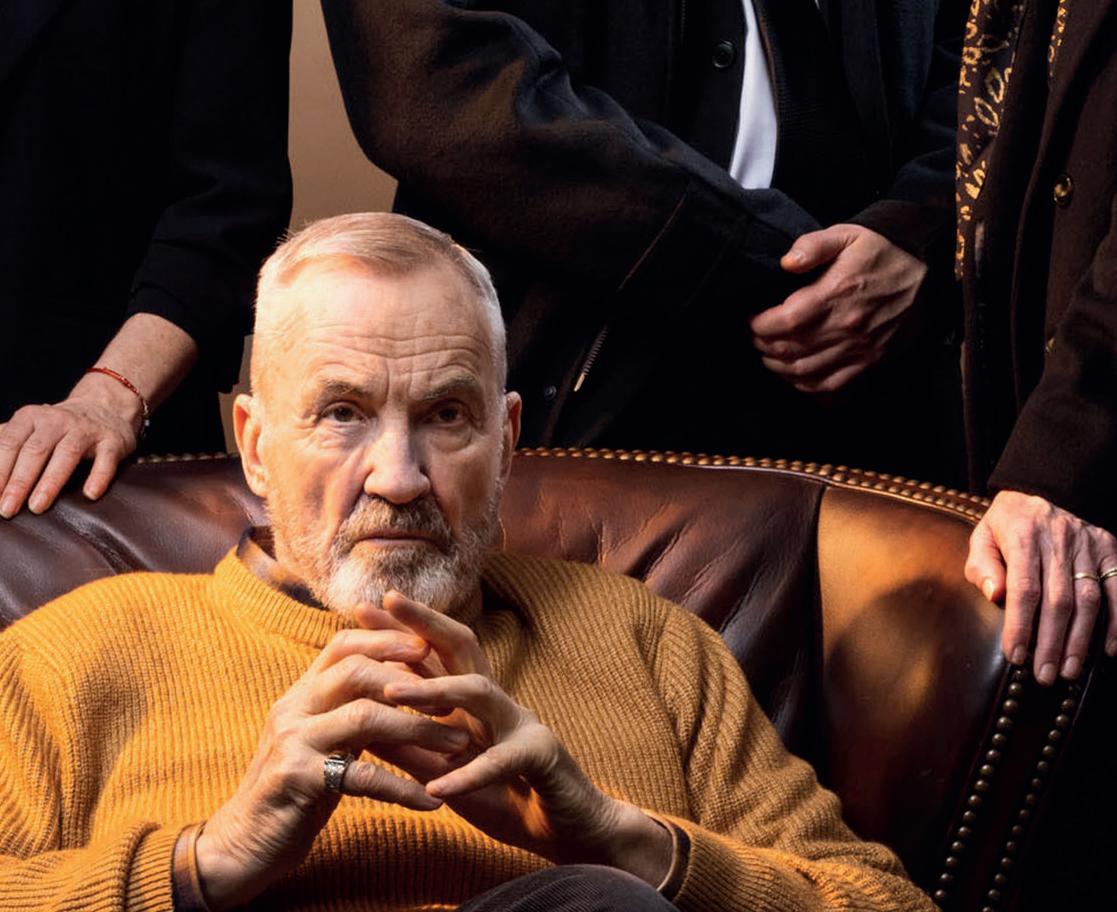
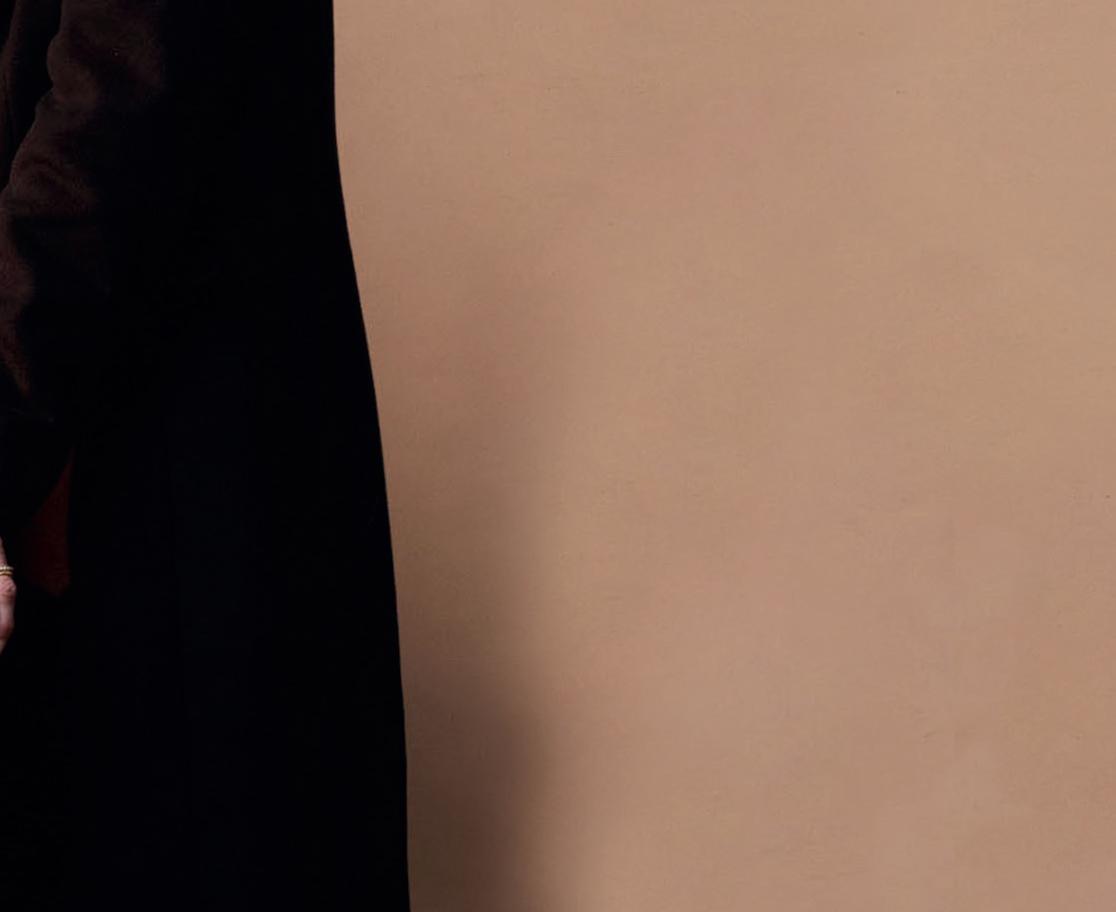
















 CHANNEL 5’S BEST EVER SERIES LAUNCH
CHANNEL 5’S BEST EVER SERIES LAUNCH






ADAPTED FROM THE #1 NEW YORK TIMES BESTSELLING NOVELS F A LLEN LIVE. LOVE. DIE. REPEAT. Visit us at MIPCOM Stand P3.B1 www.ecchorights.com us Stan www.ecchorig FROM THE EMMY NOMINATED EXECUTIVE PRODUCER OF THE HANDMAID’S TALE, SHADOWHUNTERS AND THE ORIGINALS







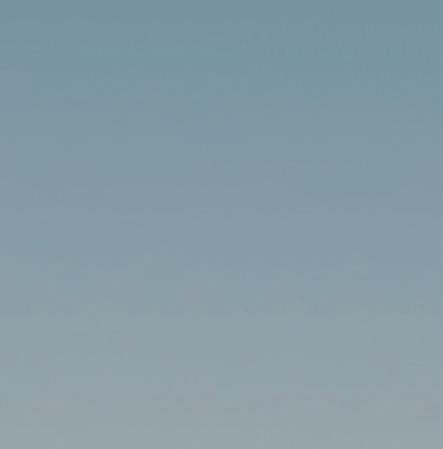



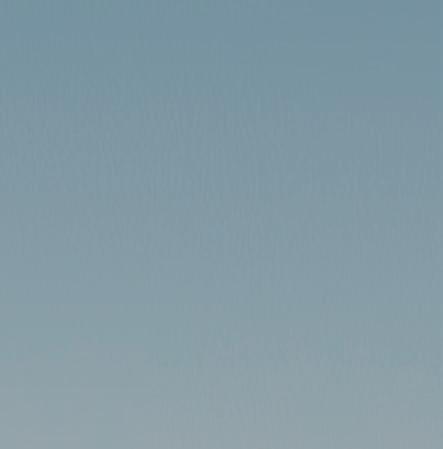




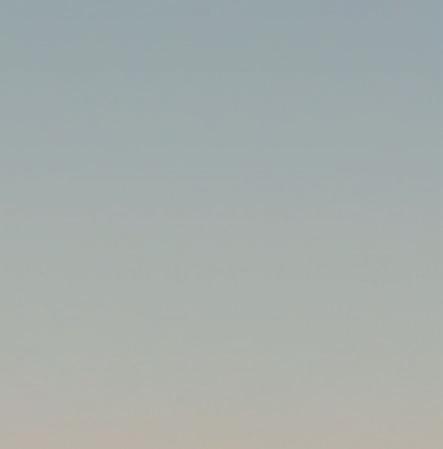
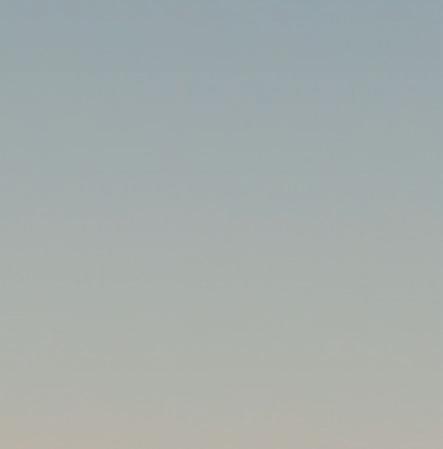


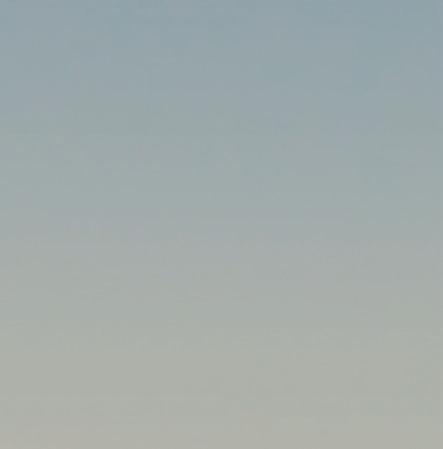

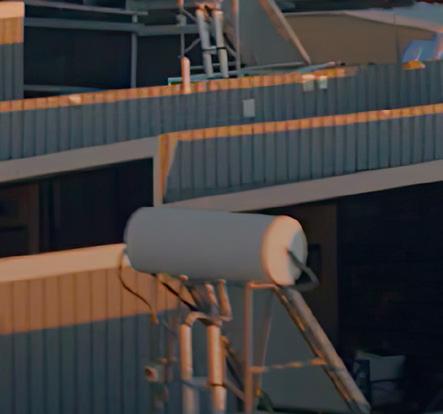
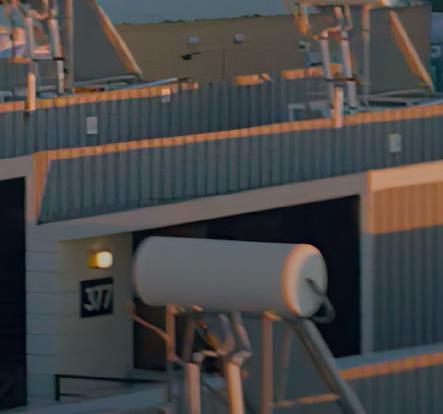
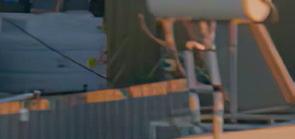

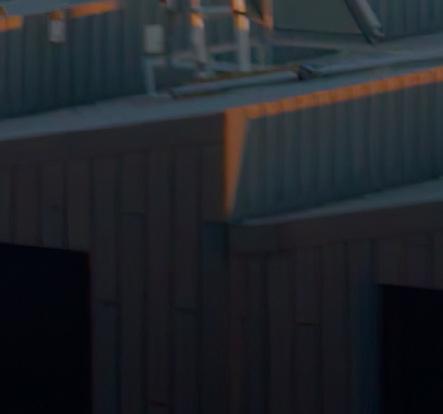











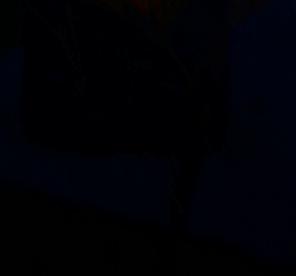



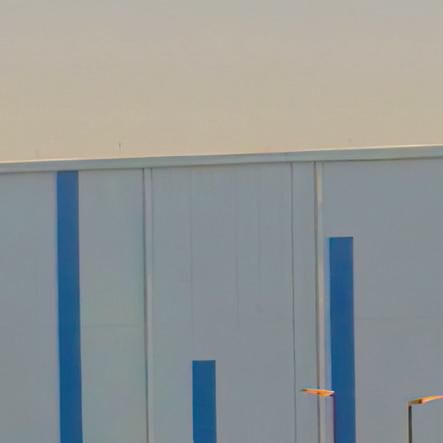




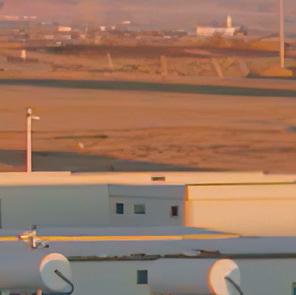














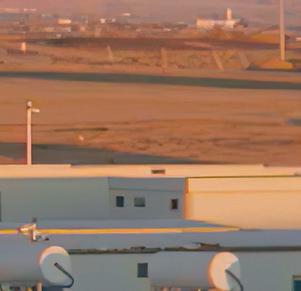



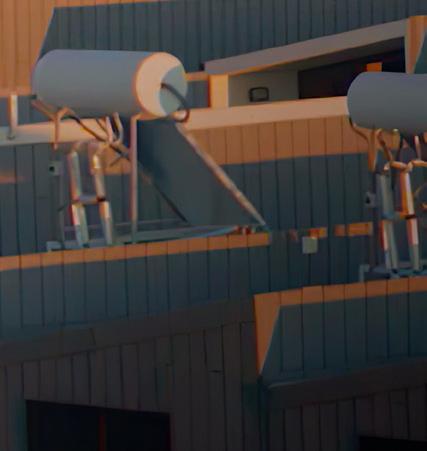



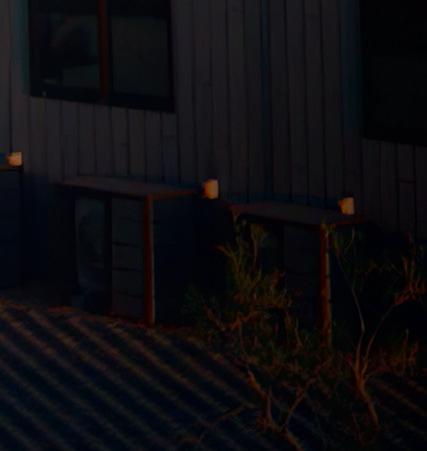


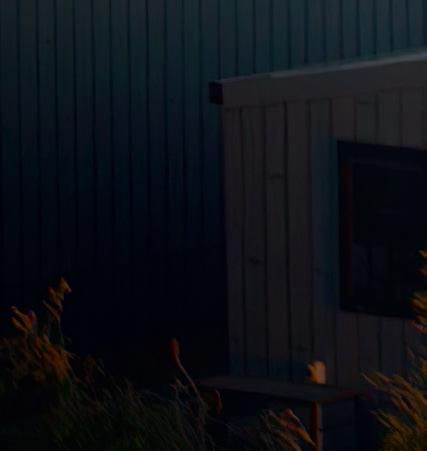

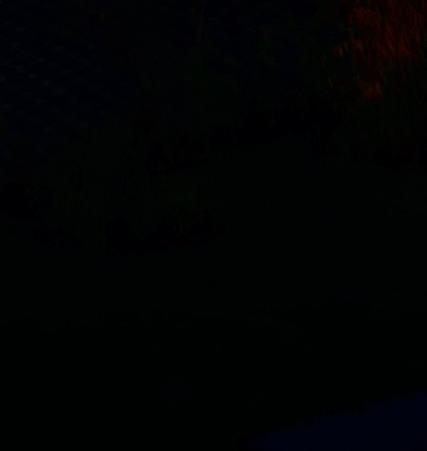






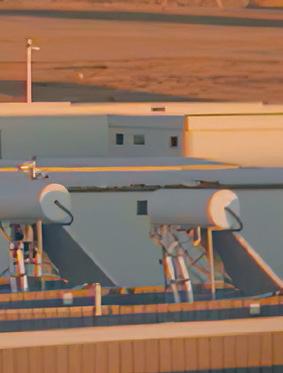
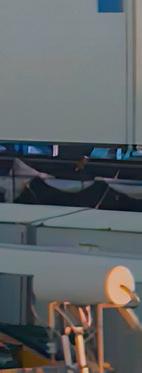



NEOM.COM YOUR GATEWAY TO THE REGION TALK TO US TODAY
NEOM MEDIA INDUSTRIES
40%++ CASH INCENTIVE FOR ALL FORMS OF TV PRODUCTION
DELIVERING RESULTS


30+ productions in 18 months, including high-end documentaries, non-scripted entertainment, scripted productions and commercials.

WORLD CLASS FACILITIES

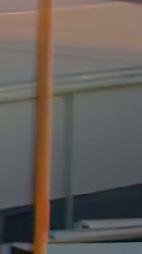







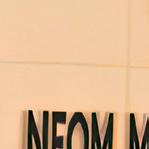

4 sound stages with full production support and expansive backlots, plus 7 more stages under construction.
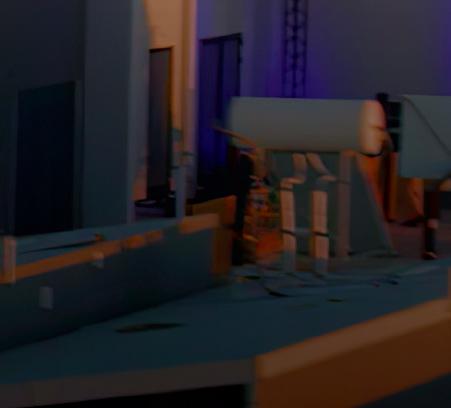


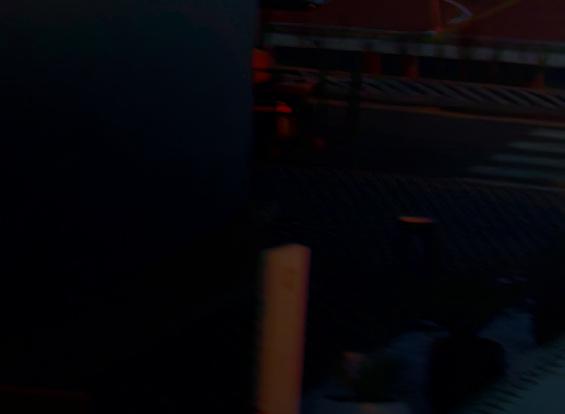


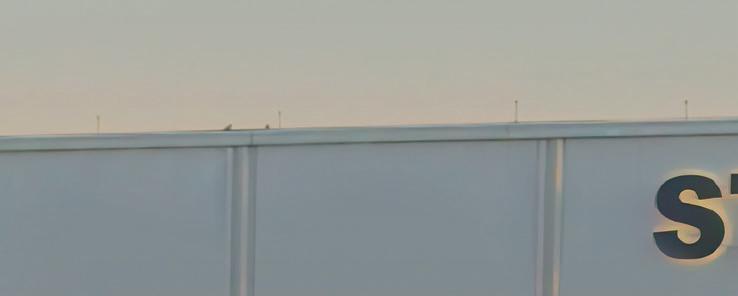

CREW DEPTH





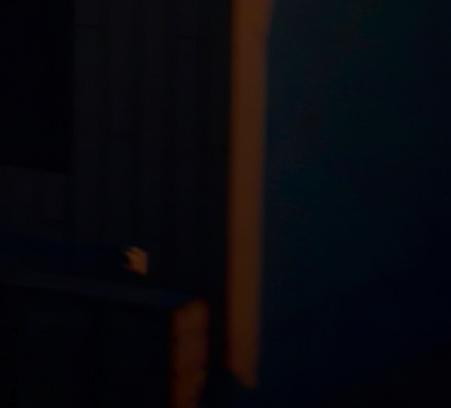





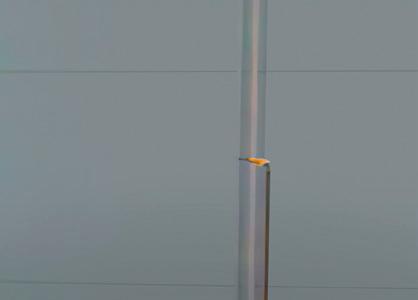
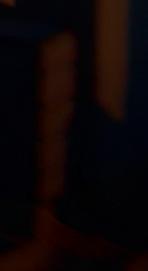




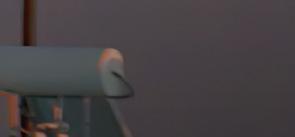







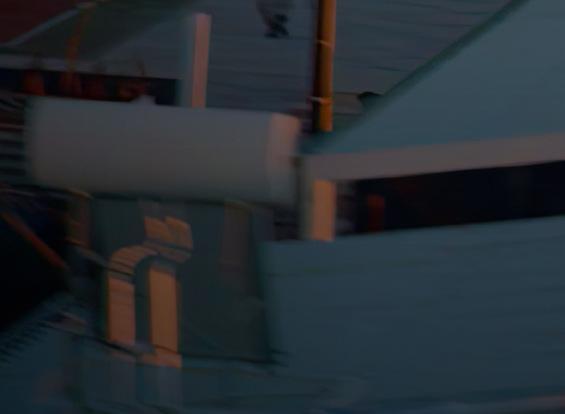




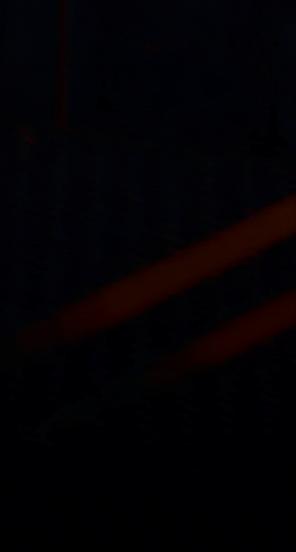



International production team able to support multiple productions of any genre, budget and scale.

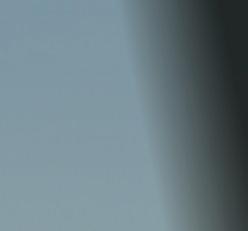



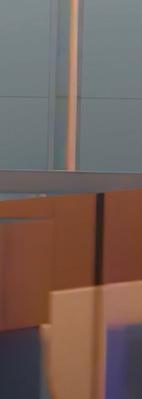

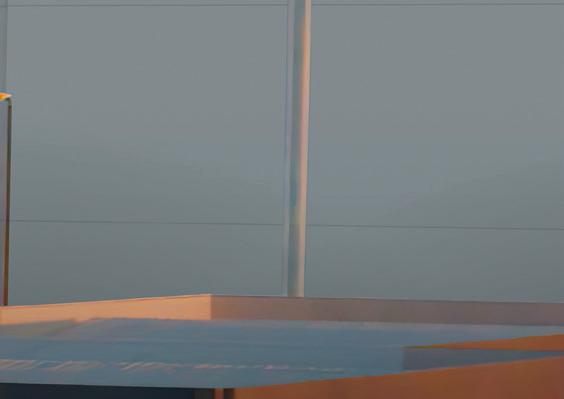
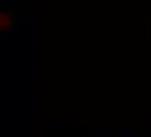
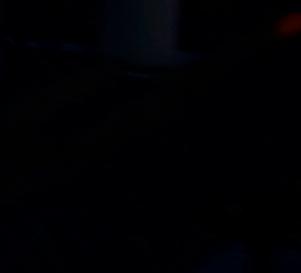






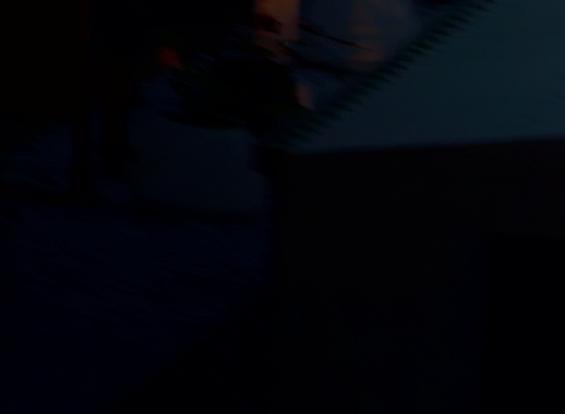




STUNNING LOCATIONS





Sweeping deserts and dunes, mountains, pristine coastline and beaches, amazing rock formations and lush valleys.
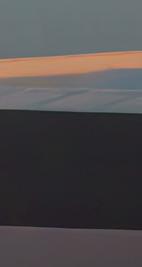






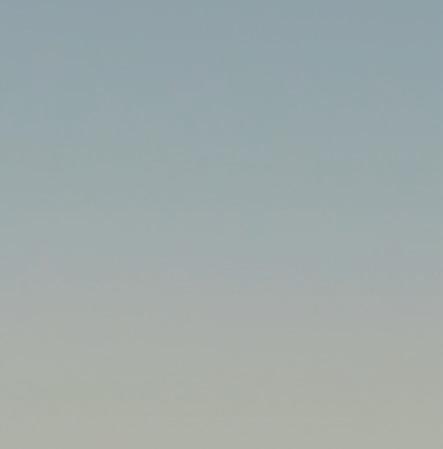

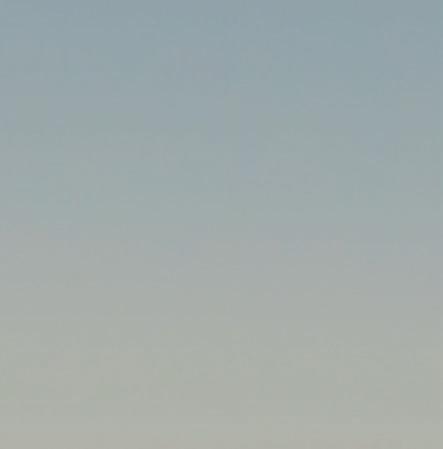

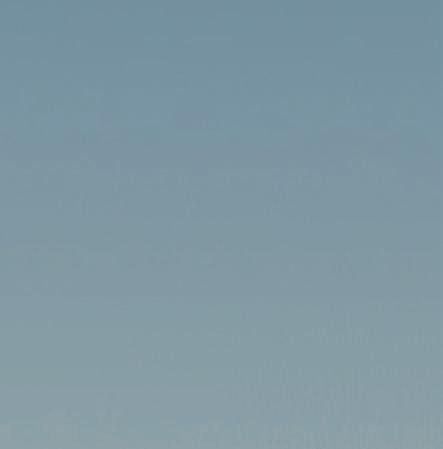











Features

ON LOCATION: Máxima
Go Dutch with DQ on the set of this six-part royal drama about the woman who would become the Queen of the Netherlands.
STAR POWER: Delfina Chaves
The Argentinian star opens up about her role as the title character in Máxima.
IN FOCUS: Truelove
Co-creators Charlie Covell and Iain Weatherby and exec producer Petra Fried talk about assembling an ensemble of older actors for this romance story with a difference.


IN PRODUCTION: Paper Dolls

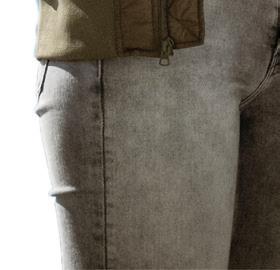
Producers Jessica Carrera and Mark Fennessy reflect on making this Oz drama about a girl group formed through a reality competition show.
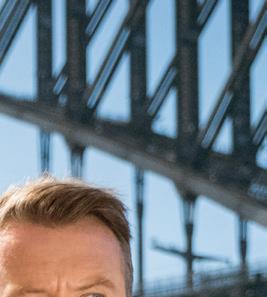
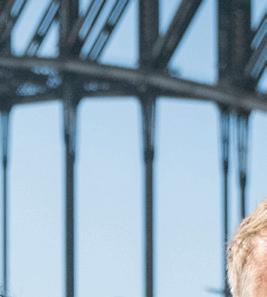
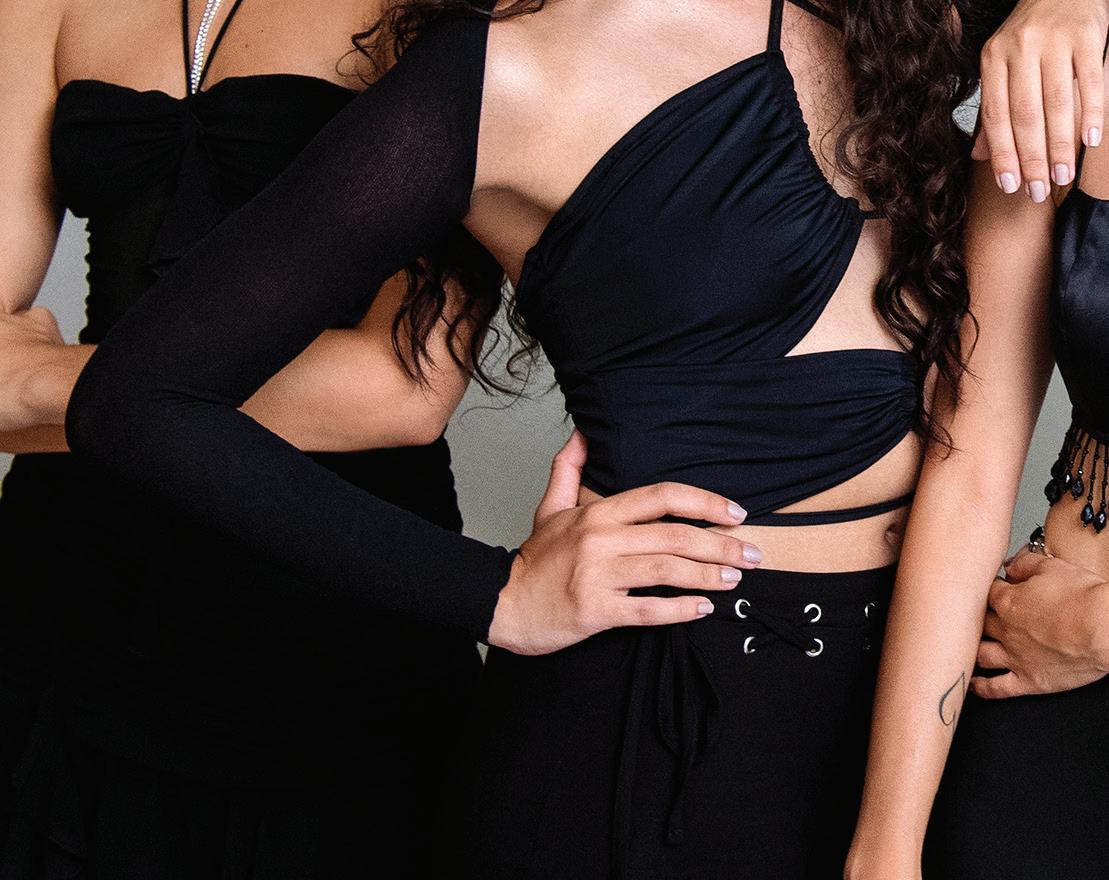


IN FOCUS: Zorro


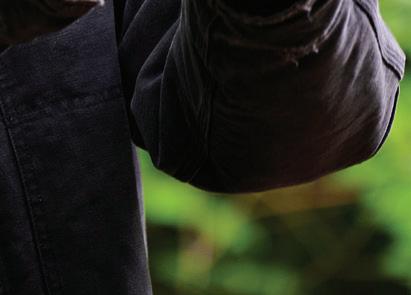
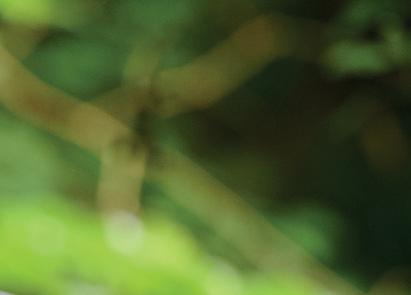

DQ dives into the making of this Spanishlanguage adventure that stars Élite’s Miguel Bernardeau as the iconic vigilante.



TRENDSPOTTING: Real-time drama












The writers behind series including Hijack and Nightsleeper talk about setting dramas in real time, what impact this has on storytelling and how they bring viewers along for the ride.
IN FOCUS: The Seed

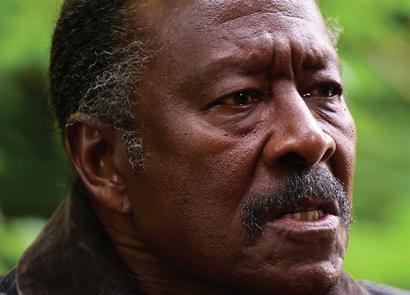
In this Norwegian-German copro, the future of food production falls into the hands of two detectives who find themselves caught up in a global conspiracy.




WRITERS ROOM: Adrian Illien


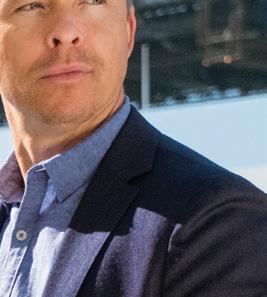

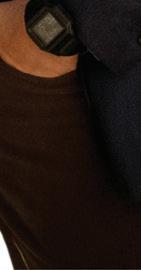
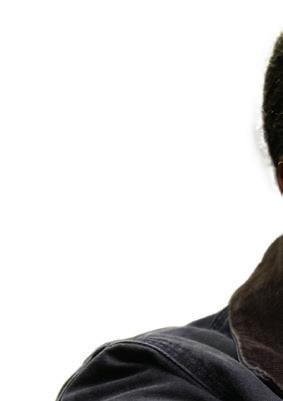
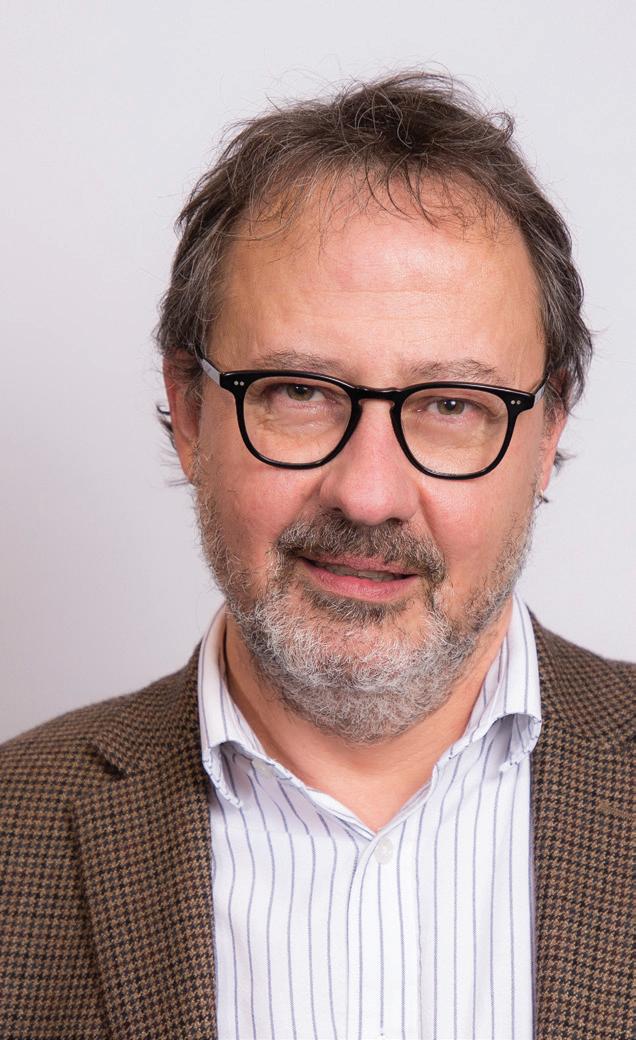

The head writer and creative producer of Davos 1917 takes DQ inside this drama about a young nurse who is drawn into a world of espionage and competing powers.
IN FOCUS: Trust No One

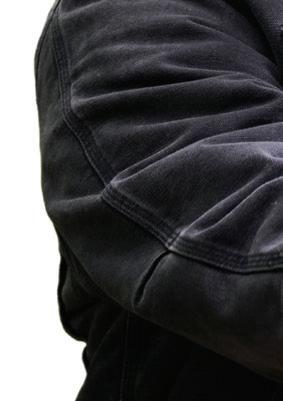

DQ meets the stars and creatives behind this Israeli espionage thriller, in which a top intelligence agent is framed as the source of a devastating security leak.
DQ100: Part Three 2023/24





We pick out a range of shows to tune in for and the actors, directors and writers making them, as well as the trends and trailblazers worth catching up with.
End Credits







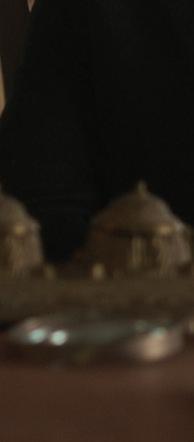
SCENE STEALERS: The Last of Us
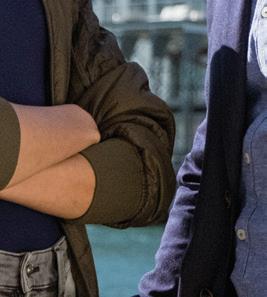
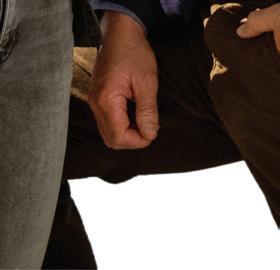
SIX OF THE BEST: Banijay Group’s Steve Matthews REMADE ABROAD: NCIS: Sydney DRAMATIC QUESTION: The dawn of a new TV age
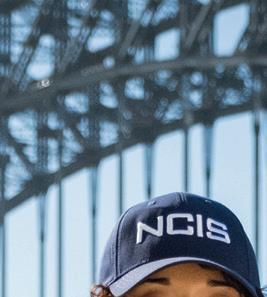

Getting the band together for Australian music drama Paper Dolls 24
12 18 21 26 30
46
Steve Matthews’ Six of the Best
34
21 Zorro makes his mark on the small screen 26 24 42 46 36 40 38 48 50 NCIS heads down under 48
2023
Clarke Peters experiences Truelove
Fall
FIT FOR A QUEEN
FIT FOR A QUEEN







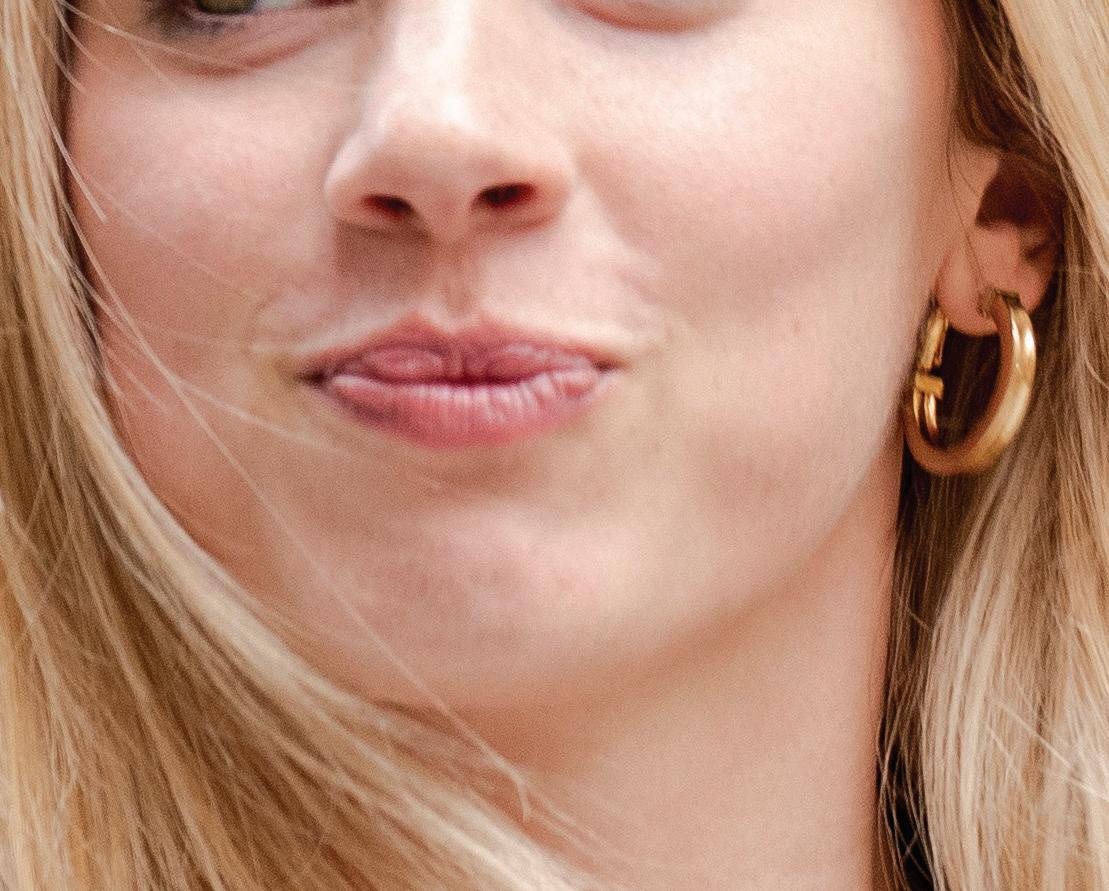
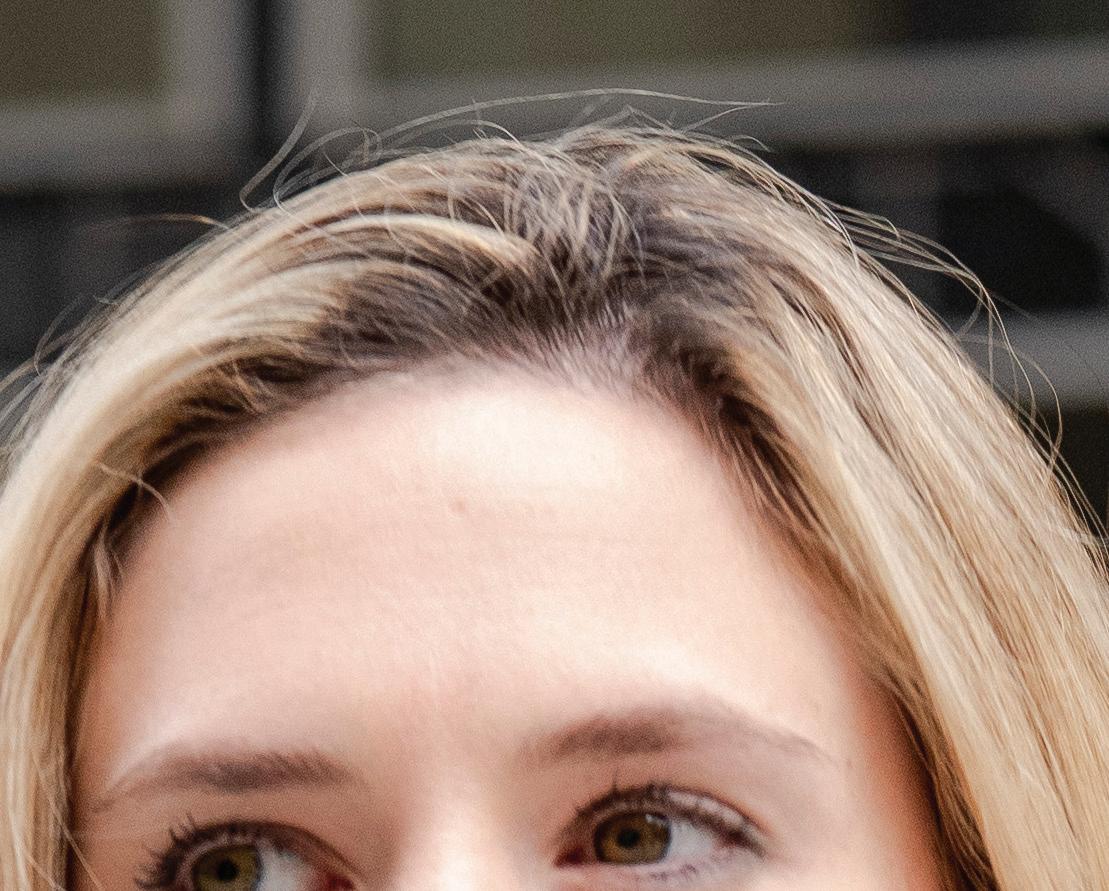
DQ goes Dutch to watch filming for Máxima, a six-part royal drama about the Argentinian who would become the Queen of the Netherlands.




ON LOCATION: Máxima DQ . Fall 2023 12
At Landgoed Vollenhoven, a majestic Dutch country estate on the outskirts of Utrecht, love is in the air. In the blue, cloudless skies overhead, a small plane is drawing a giant heart with smoke billowing from its tail.
Meanwhile, down on the ground, an important meeting is about to take place. In the greenhouse and the surrounding gardens, the future Queen of the Netherlands is about to meet the incumbent royal for the first time.
It’s a key scene from Máxima, a Dutch drama that explores how Argentinian-born Máxima Zorreguieta met and fell in love with Crown Prince Willem-Alexander, set against the backdrop of her upbringing and her relationship with her father, Jorge, a politician during the last Argentinian dictatorship.
In the gardens of Vollenhoven, which doubles for the Paleis Huis ten Bosch, Máxima, played by Argentinian star Delfina Chaves, is walking towards the greenhouse with WillemAlexander (Martijn Lakemeier) when they spot Queen Beatrix (Elsie de Brauw) pottering inside. “She looks so normal,” she remarks. “She’s not, believe me,” he responds.
By this moment in late August, filming has already taken place in the US and Spain before the cast and crew’s arrival in the Netherlands, as the series charts Máxima’s journey from Buenos Aires to New York via Sevilla and on to the country she will soon call home.


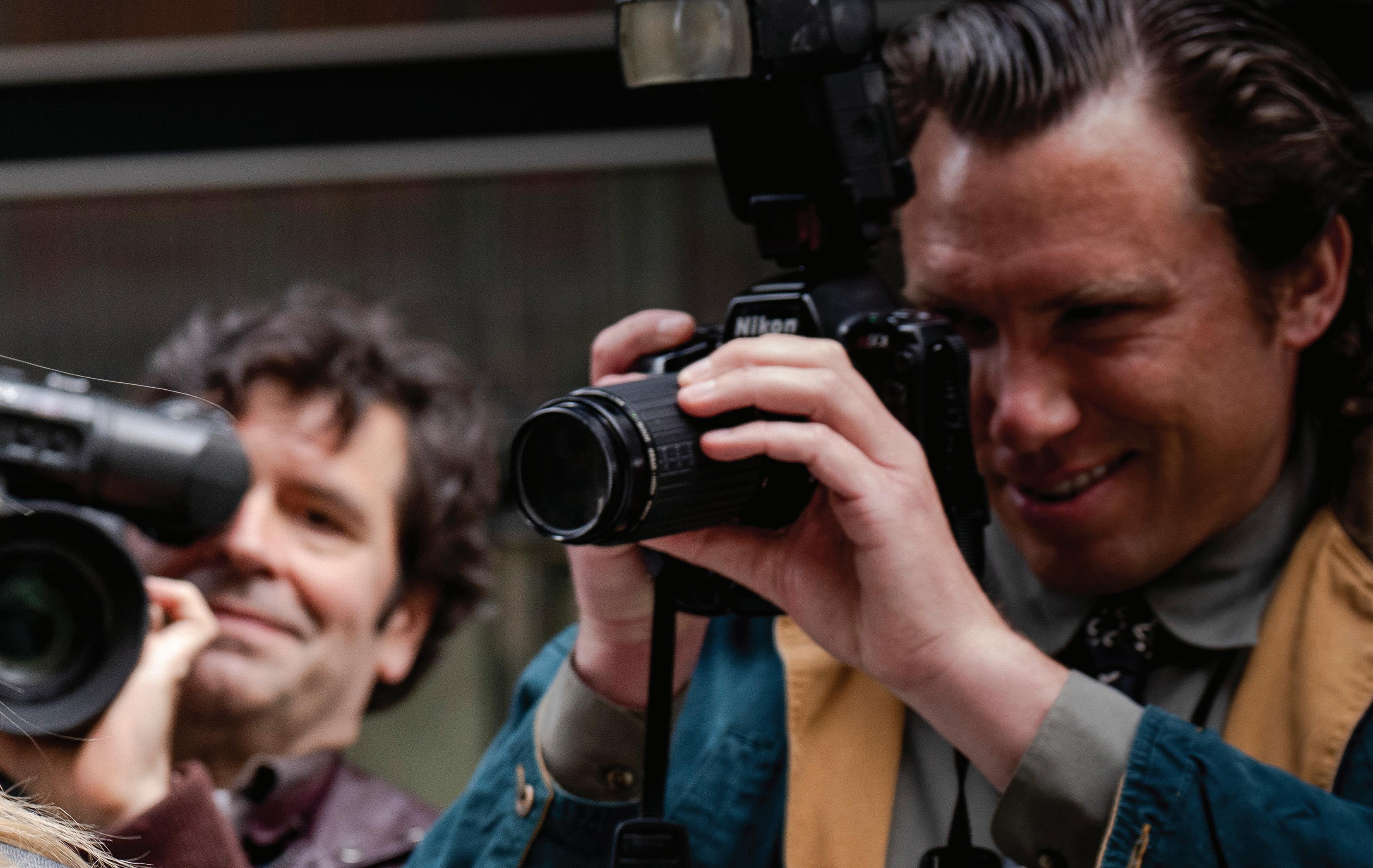
The six-part series, commissioned by RTL Nederland’s OTT service Videoland, is inspired by Marcia Luyten’s book Máxima Zorreguieta: Motherland, an authorised biography that explores how the royal’s childhood and home country shaped the woman she would become.
That historical storyline helps to tell a story set across three decades, beginning with Máxima’s first encounter with Willem-Alexander and following her journey to becoming a public figure, highlighting her determination and ambition, as well as her struggle to balance her new role with loyalty to
family and her own identity. As they grow closer, he eventually proposes – an event that marks the end of the series, which has been conceived as a multi-season drama.

“This series is about Máxima, our queen today,” says producer Rachel van Bommel from Millstreet Films, which is producing the drama. “We know about her, we see her in the news every day, but still we don’t actually know her. We just know her from the moment she became our future queen. Marcia’s book is a great basis to work with, and our writers Marnie Blok and Ilse Ott used it as a very nice basis for the whole historical line in the series.”
“Of course, there’s a happy end,” says Justus Riesenkampff, exec VP, Nordics and Benelux, for German coproducer Beta Film, which is also distributing the series internationally. “But in the German press, when they got engaged and married, it was about the fact she was from a family in Argentina that was close to the government at a time when there was a dictatorship, so this caused a lot of controversy. That will also be in the series, and they will have to deal with the publicity and the public digging into their lives. That’s why it’s so interesting to go back to Argentina at that time.”
Van Bommel says they sought to make the series as authentic as possible by using Luyten’s book and their own research and “sticking to the facts.” “But it’s not a diary,” she says of the source material. “I don’t know how she feels – if she’s sad or if she cried. That is up to Marnie and Ilse. It’s a lot of fun and a big responsibility because it’s now our queen we’re writing about. We tried to be very conscious of that.”
The series doesn’t aim to turn Máxima into a princess or a saint, however. “Her family were social climbers, she was thought to be a social climber, so we do try to give a realistic perspective with her flaws and ambitions,” van Bommel says.
“It’s not a Disney fairytale,” adds Blok, who says she was drawn to the project because of its “Shakespearean drama,”
>
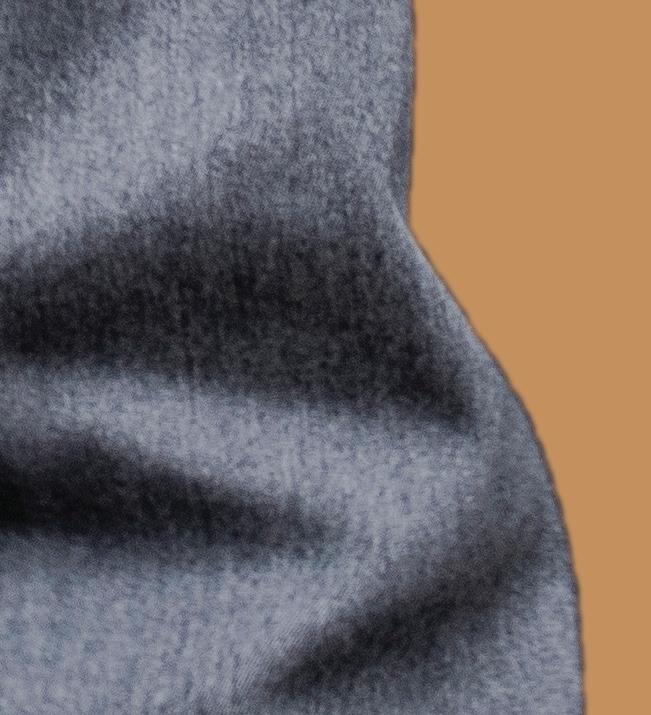


ON LOCATION: Máxima DQ . Fall 2023 13
< as Máxima had to decide whether to remain loyal to her family or follow her heart, all while in the media spotlight. “That has been a struggle for her. It must have been,” she says. “But we don’t have her diary, so we have been trying to figure out how that would work.

“I hope the public will understand the struggle she went through and what an incredibly strong woman she is. You see two people who are really in love, and the eyes of the world’s press are on them. It’s two young people – he just happened to be the crown prince. He thinks, ‘Should I give up the crown?’ and she thinks, ‘Seriously, you want to give up the crown? And then what?’ So there is a lot of drama as well.”
Máxima marks lead director Saskia Diesing’s first commercial project, having previously worked in arthouse feature films. She took on the job because she was interested in this comingof-age story about a young woman who must find her place in the world. “It’s also about ambition,” Diesing observes. “For instance, women who aim for a crown, we often call them gold diggers, which I think is kind of strange. Why wouldn’t she want the crown, the prince and love? We’re also playing with that. All the time, you’re not quite sure if she wants the crown, if she’s playing with him. But then at some point, you think, ‘What if she’s really in love?’”
Naturally, casting the right lead was key. But as Dutch newspapers speculated over which local actor might land the part, the production team determined that for the series to be as authentic as possible, they needed to look to Argentina.




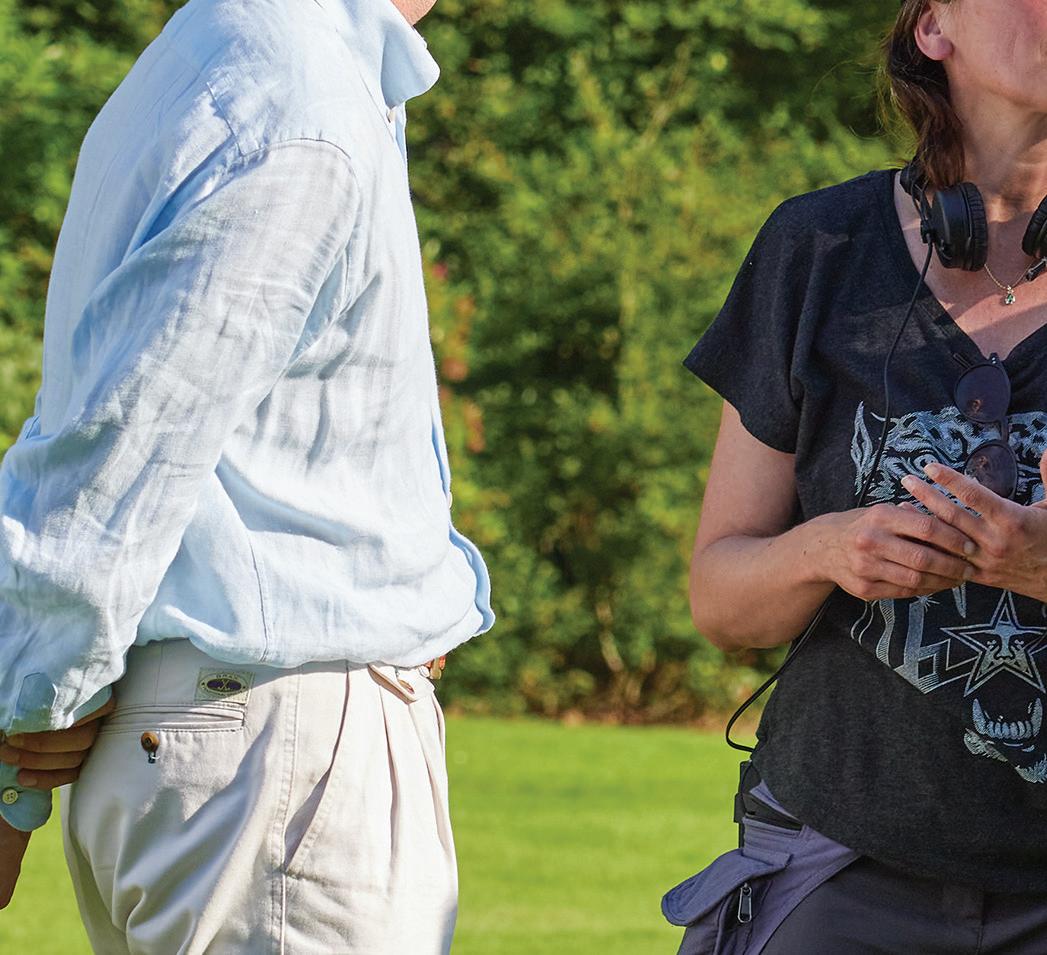
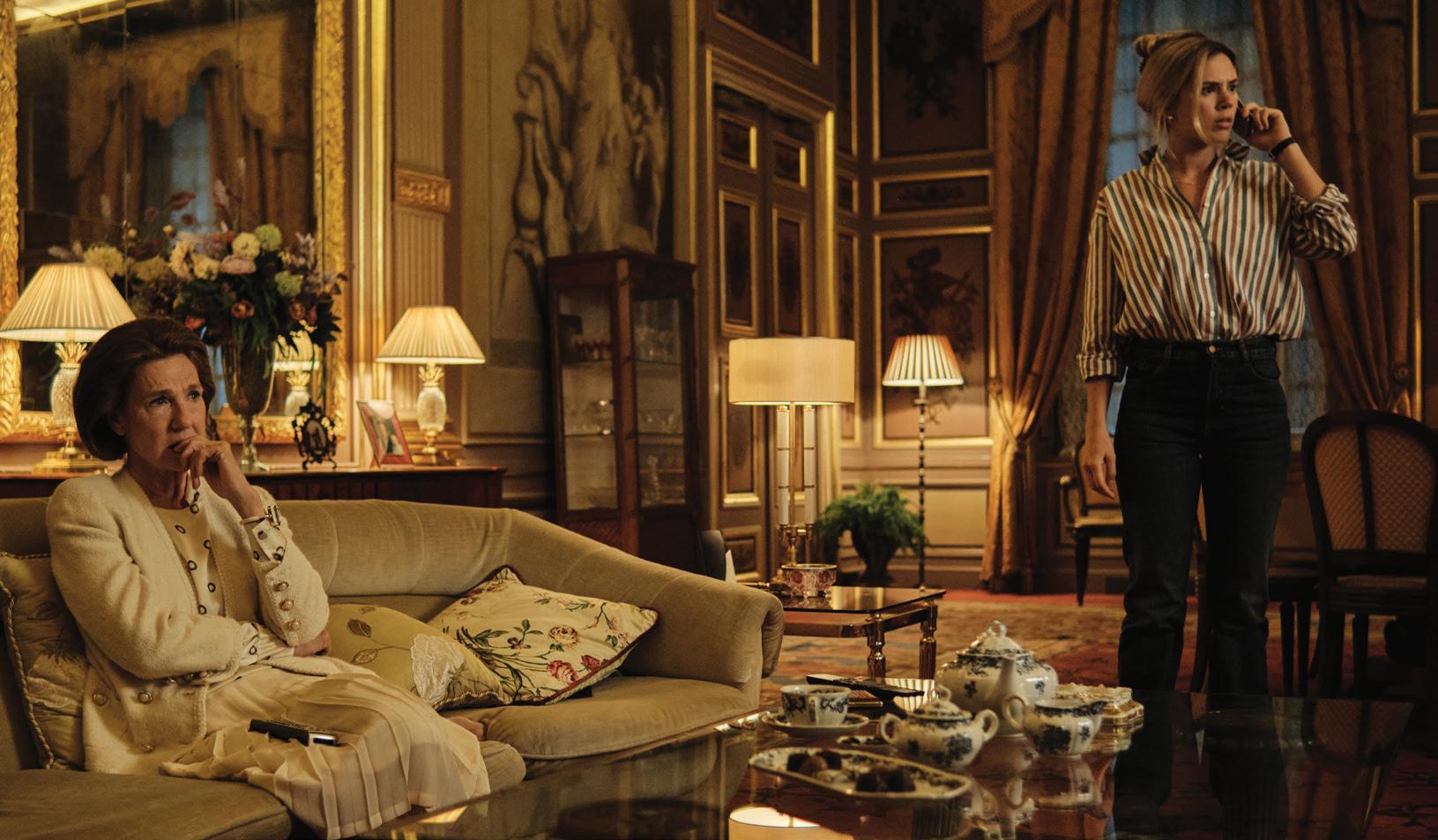
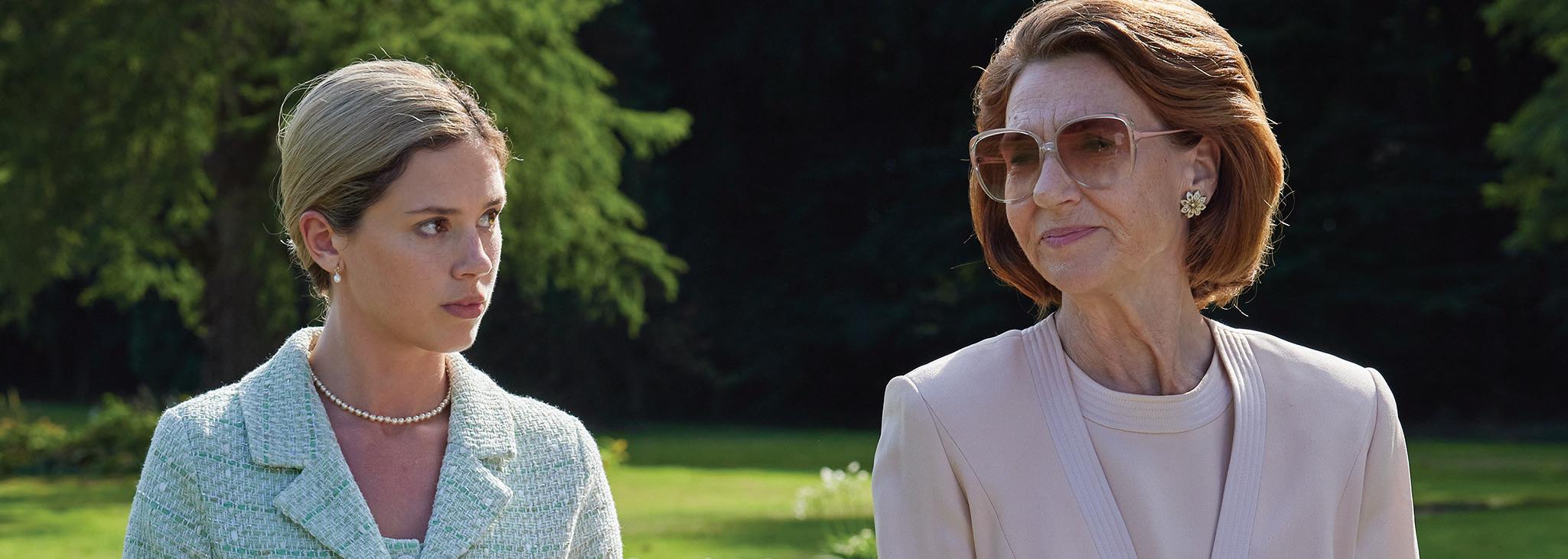
“When we started casting there, we weren’t really sure what people would think. But we learned that in Argentina, you have the Pope, you have Maradona and you have Máxima,” van Bommel says. “So we had a lot of actresses doing really good auditions, and it was a luxury problem. We reduced it down to six actresses and then we sent Martijn – who never auditioned because he was just perfect for the role – to Argentina.”
“When I got on board the project, I already knew Martijn was going to play WillemAlexander so there was no choice,” jokes Diesing, who directs with Joosje Duk and Iván López Núñez. “I thought it was an excellent choice – one of the reasons I said yes was because he was in it. There were already some audition tapes [for Máxima] and I saw this one of Delfina and I remember saying to my husband, ‘We don’t have to look any further. I already know it’s going to be her.’
“I said to Martijn, ‘The only thing you have to remember is, if you’re going to work with this actress, you have to feel an immediate connection, and you will know the minute you start the scene – and [she also has to make] you work really hard.’ For me as a director, it’s interesting to see actors who have to work hard. If it’s too easy, there’s no fun. I like it


ON LOCATION: Máxima DQ . Fall 2023 14
Director Saskia Diesing with actors Martijn Lakemeier (left) and Sebastian Koch
Delfina Chaves (right) plays Máxima, while Elsie de Brauw is Queen Beatrix
The show has been designed as a multiseason drama
when actors are challenging each other. Martijn was convinced when he met Delfina that it was going to be her.”
To play Maxima, Chaves had her curly, brunette hair straightened and dyed blonde, and wore brown contact lenses. “Delfina is amazing. You want to keep looking at her,” Diesing says. “That’s the most important thing. This is an actor we have to look at for six episodes – she has to carry this part, and she’s a magnet.”
Máxima is a breakout European role for Chaves, who is already a star in her home country. Though she was aware of the Dutch queen, the actor says working on the show has given her the chance to find out more about the real Máxima and the Argentina she grew up in.
“Of all the things I’ve heard, everybody likes her in Argentina,” she says. “Every time you see an interview with her, the people interviewing her are always smiling. She’s full of light and people really sense that. She brings the Argentinian culture within her.”
Stepping into the world of the royal family has also been a new challenge for Chaves, who was surprised to learn how much Máxima sacrificed when she moved to the Netherlands, being away from her family, having to learn a new language – and not being able to invite her father to their wedding because of his political background.
“I’ve never talked about monarchies before, so it’s been really fun to enter this world. If it wasn’t for this project, I would never have learned about this family and the monarchy.”
As for Lakemeier, a key part of his preparation to play Willem-Alexander involved exploring what it means for someone to have their life mapped out for them from birth. “That was a big part of researching the role, but the series focuses on the part where he gets to know Máxima and how important it is for him to find someone he can share this absurd life with,” the actor says.
“Other than that, it’s really interesting because there’s so much research to do. There’s so much to watch and read, interviews you can see, it’s endless. It’s nice to have so much material to prepare with. But then at some point you have to let it go and just do it.”
Acclaimed Dutch actor de Brauw ( The Death of My Mother ) was then brought in to play Queen Beatrix, while a similar search for authenticity led to the casting of German actor Sebastian Koch ( The Lives of Others ) as Claus von Amsberg, husband to Beatrix and father of Willem-Alexander.
“I remembered Claus is German, so why not cast a German actor and teach him some Dutch?” Diesing says.
Risenkamp adds: “When we came on board as a German company, we were intrigued by the role of Claus and his story, which is known well in Germany. It’s also quite dramatic – his time at court, how he as a German married Beatrix and
then how he found his role in the Netherlands. We decided Sebastian would be a perfect match.”
The role of Claus was not without its challenges for the actor, as Koch plays the Prince Consort at a time when he was suffering from Parkinson’s disease. “He hardly moves, but he was still very much alive and making jokes,” Diesing says. “But it’s really hard as an actor to remember you must not move. When we had rehearsals, Sebastian was talking with his hands and I said to him, ‘You really have to get rid of the gestures.’
“But it was amazing how quickly he made this transformation. We gave him some blue contact lenses, and it’s very hard if you’re not used to lenses because you have to blink a lot, whereas Claus shouldn’t blink at all. So he has a lot of challenges to deal with. But it was amazing to shoot with him.”
Koch recognises the “tremendous” responsibility that comes with playing Claus. “People really loved him, they were close to him,” he says. “It’s not a burden but it’s a big responsibility to connect with him and make it good, to be as good as possible.”
The actor describes his role in the series as “a guest appearance – it’s only four shooting days.” But as he notes, there are no small roles. “You have to prepare and be able to do it well. For the first day, I was really nervous but I was looking forward to it. And then when we started, it was fun. I feel I love this man, I can identify with him.”
Playing someone with Parkinson’s meant his physical performance in Máxima was particularly important. “His face is almost moving in slow motion. His spirit is quick and sharp, cheeky and funny, but it doesn’t show in his face. It’s a weird thing to act,” Koch says. “Everyone’s very funny [in between takes] and usually I love that, to have fun before you shoot and then you switch [into character]. With this, it was difficult. I really needed to stay with it and not make a mistake or react quickly to something.”
Meanwhile, de Brauw didn’t want to be exactly like the former Queen Beatrix, who she says is characterised as cold in the Netherlands. In the series, “you see a softer and much more human image of Beatrix,” she reveals. “That’s why I did it. I liked the way it’s written because it’s got complex scenes, it’s not so plot driven and it’s really character driven.”
She also points out that there are lots of similarities to be found between Claus and Máxima’s respective journeys into the heart of the Dutch royal family, both coming from
di erent countries and having to deal with a new role in the public eye.
“Claus and Beatrix were in the same situation as Máxima and Willem-Alexander because Claus was German and it was not so long after the war, so the whole of Holland was against him,” she says. “Beatrix knows what they are going through and she has to think carefully because she knows her son is not going to make it without a strong woman next to him. She needs Máxima as well, so all these decisions are more important than how she looked or walked.”
It’s the show’s focus on Máxima, rather than the institution as a whole, that will make the series stand apart from Netflix’s British royal family drama The Crown. It’s also a focus that fits with Millstreet’s ambition to tell stories with a contemporary, female perspective.
“We don’t only make series for a female audience, but the female perspective, or working with strong female filmmakers, works really well for us,” van Bommel says. “We know our audiences well. Our filmmakers know which direction we want to go in. And when we read this book, it was clear this was something that fits our profile. We thought it would be wise to focus on her and always tell the story from her perspective, which gives it a unique take. We don’t want to compare it to The Crown – it’s our royal story –but in the first season, we only see the palace at the end because we look at the first 30 years of her life.”
Van Bommel and Millstreet are now planning “many, many seasons” of Máxima , with Luyten also plotting a book sequel, Fatherland. “Marcia said she had the idea for two books, and I thought, ‘Great, we have two seasons,’” she says. “Now we’re already researching, and we think it would be a shame to tell the whole story in just two seasons because there’s so much to tell.”
ON LOCATION: Máxima DQ . Fall 2023 15 DQ
I hope the public will understand the struggle she went through and what an incredibly strong woman she is. You see two people who are really in love, and the eyes of the world’s press are on them.
“ ”
Marnie Blok Writer


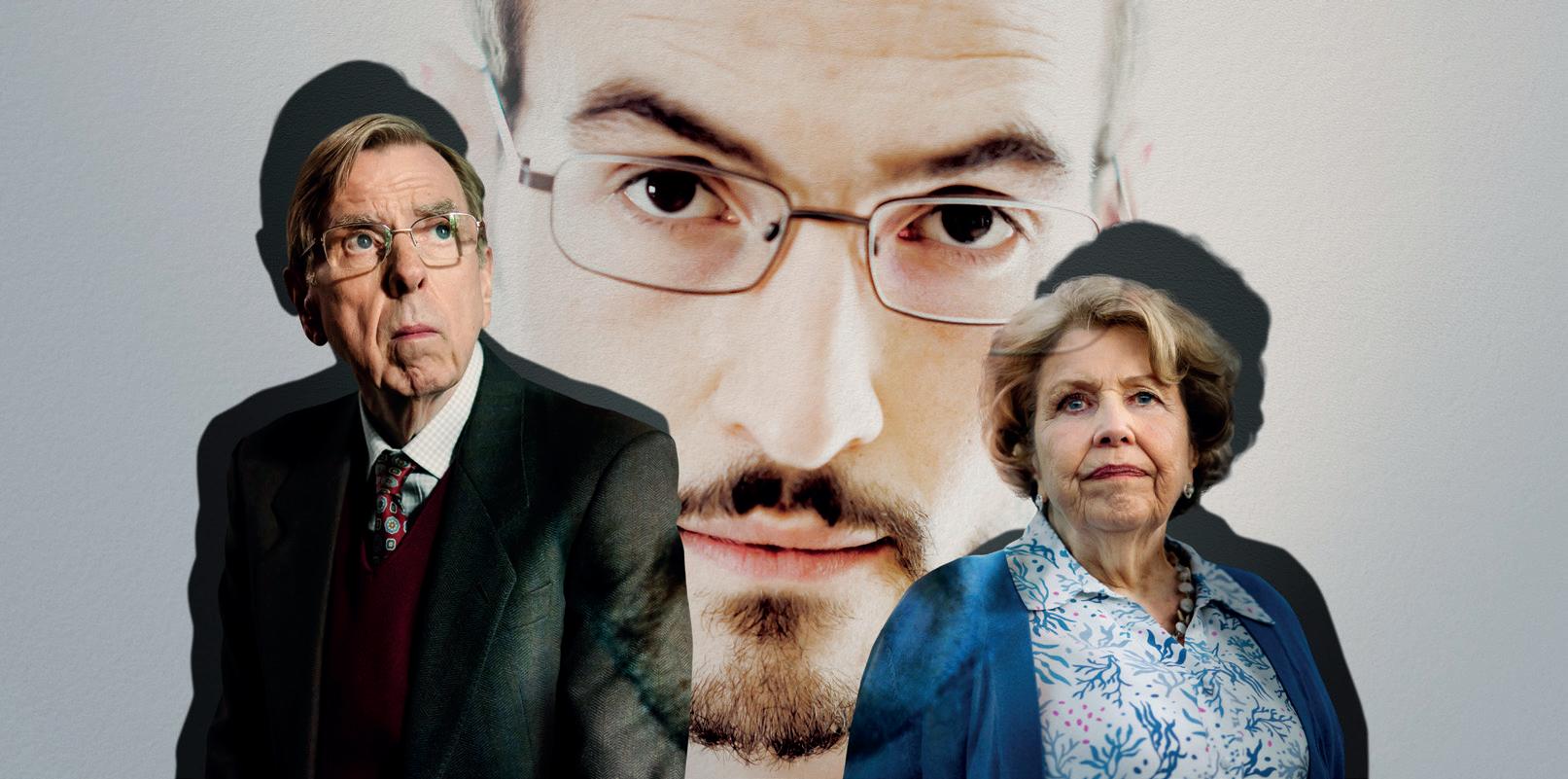
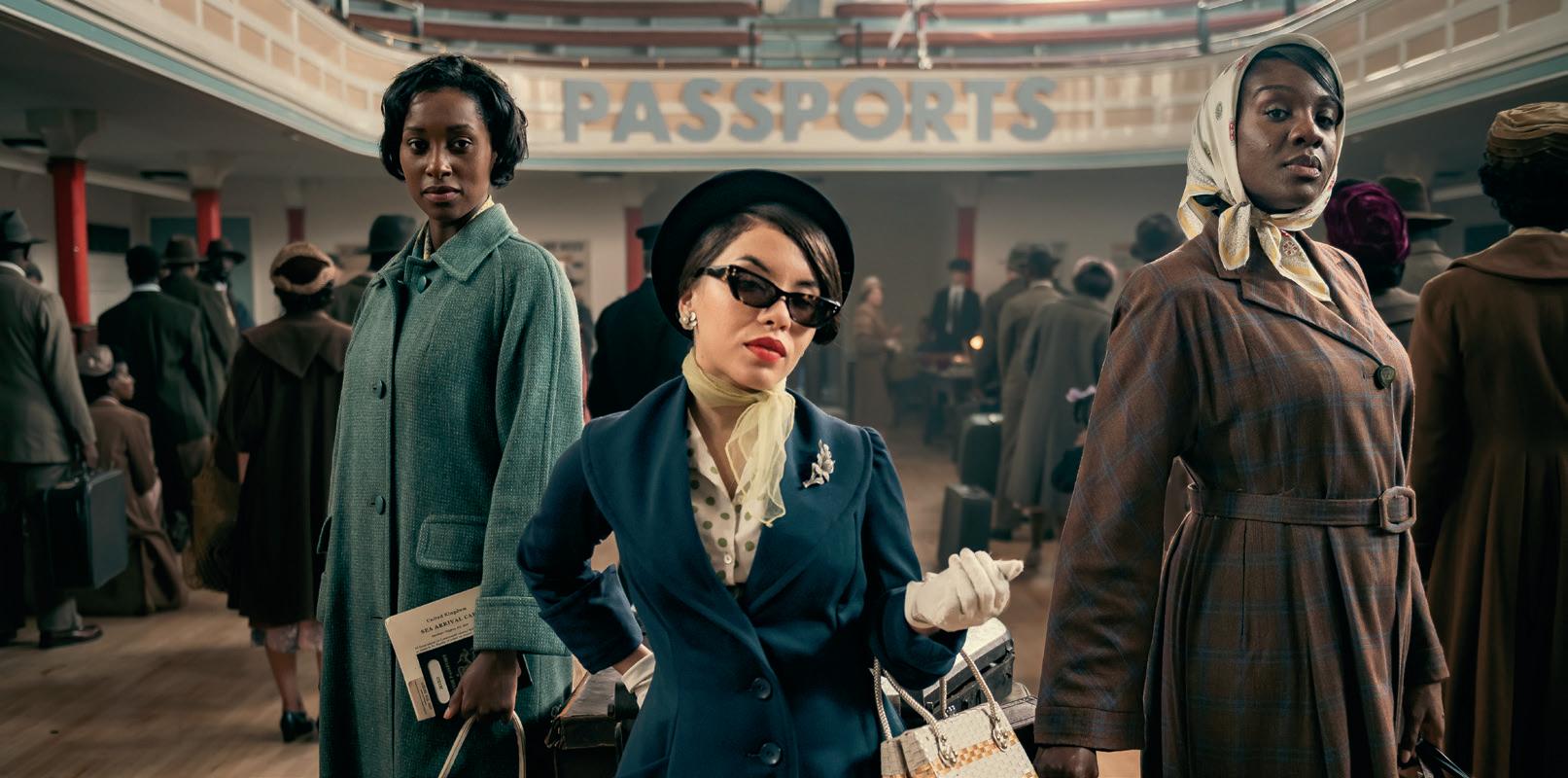

banijayrights.com
RFDS: Royal Flying Doctor Service
The Sixth Commandment
Three Little Birds
Screw
Fallen

Storytelling for every audience



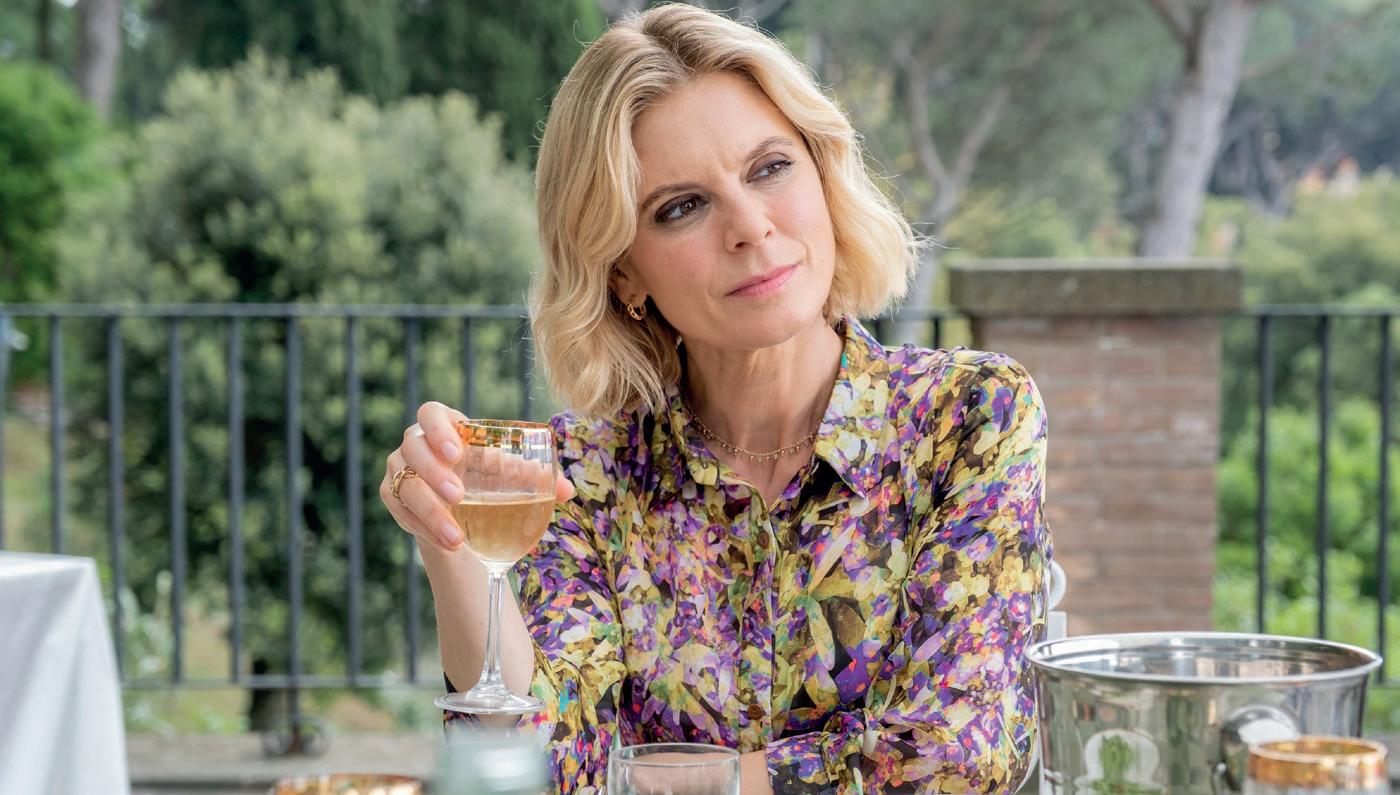 Signora Volpe
This Town
Rivière Perdue
Signora Volpe
This Town
Rivière Perdue
Argentinian star Delfina Chaves opens up about taking the lead in her first European production as the title character in Dutch drama Máxima.
Conquering Europe
AFTER THE PRODUCTION TEAM BEHIND DUTCH ROYAL DRAMA MÁXIMA SCOURED ARGENTINA TO FIND THE ACTOR WHO COULD PLAY THE TITLE CHARACTER, Delfina Chaves was at the top of their list. Then when Martijn Lakemeier, who had already been cast, travelled to Buenos Aires to audition with his potential co-stars, he confirmed what they already knew: she was the one.
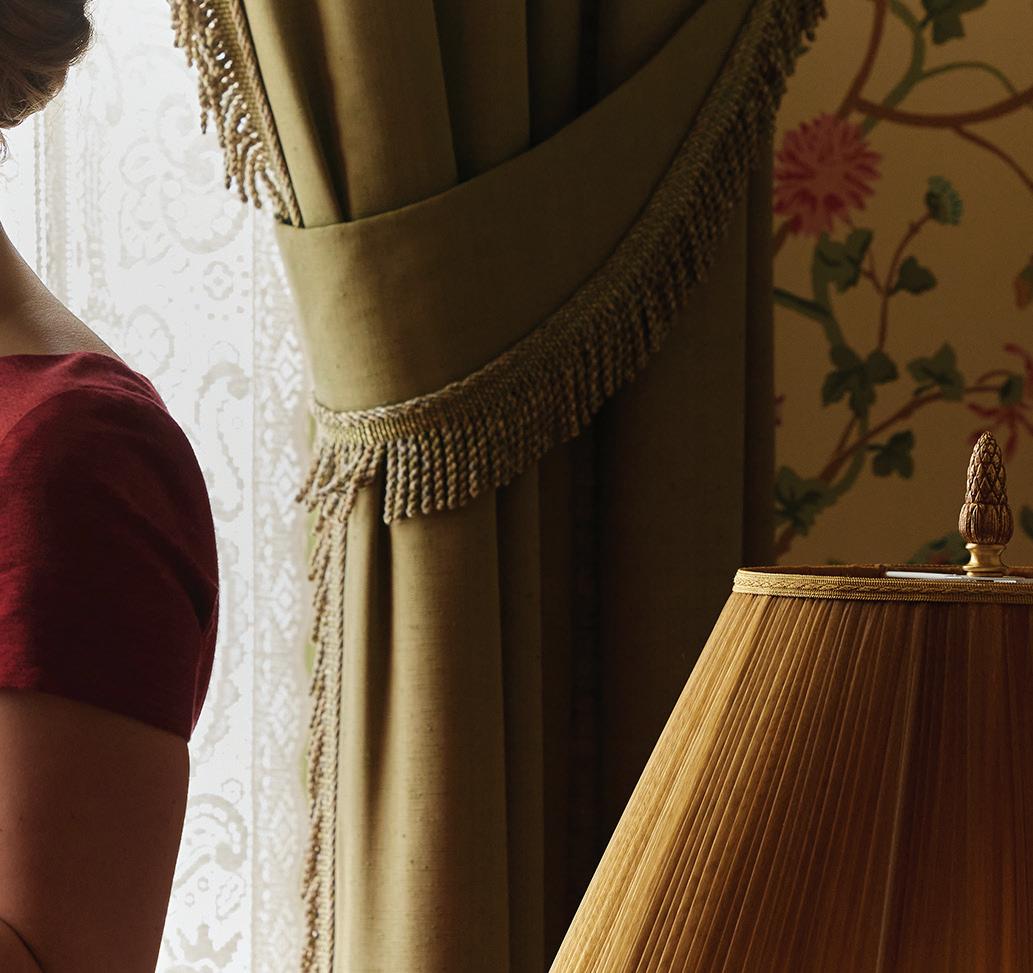
Already a star at home – with 1.2 million Instagram followers – Chaves has appeared in more than a dozen film and television series, including soap opera Argentina, tierra de amor y venganza, Dias de gallos (Rap Battlefield) and El Secreto de la Familia Greco (The Secret of the Greco Family).
She’s now set to break out worldwide as Máxima Zorreguieta, the woman who would become the Queen Consort of the Netherlands. The six-part biopic dramatises Máxima’s first encounter with then Crown Prince Willem-Alexander (Lakemeier) and how their relationship blossomed, while also exploring her determination, ambition and her struggle to balance loyalty to her family and her own identity. Meanwhile, flashbacks reveal her childhood growing up with her father and his role in Argentina’s autocratic Videla regime.
“So far it’s been a really interesting journey,” Chaves tells DQ in Amsterdam, where the globe-trotting series is based while filming scenes where Máxima first meets her prospective parents-in-law in nearby Utrect. “I still am really nervous, to be honest. But that’s what makes my job interesting. We have a huge team, I’m not by myself, and there are so many people who know about her and her life, so it’s teamwork, really. That’s something I realised from the very beginning.”
Breaking into the industry in Argentina, Chaves paid for acting classes through her modelling work. Now she’s on the other side of the world, playing the title character in a series for the first time.
“It’s a huge opportunity for me, getting to know these amazing people, different cultures, different ways of working and directing,” she says. “On a personal level, it’s really moving because I’m far from home, I’m far from my family. But the whole team makes me feel like we’re in this together.
“I’ve never done a series where


the name of my character is the name of the show – and she’s somebody who’s still alive, and is a queen. It’s all adding up! But I trust myself. I’m playing the queen when she’s going to be a queen – she’s not the queen yet. It’s still a story about a person, and certain things happen to her – she meets her love and makes sacrifices. You can connect to those things on a human level.”
Chaves was still very young when the real Máxima joined the Dutch royal family. Researching the person she plays on screen, she uncovered lots of information she hadn’t previously known about Argentina, Máxima’s family and the political choices her family made. “It’s such an important part of her life, her journey and her identity, so studying all of it and having an excuse to know more about my country was really interesting,” she says. “And I had to learn a new language.”
Indeed, like Máxima, Chaves is having to learn Dutch for her new role in the Netherlands, and is finding support from the rest of the cast and crew.
“I have a coach but every time I have 10 or 15 minutes, I’m like, ‘Martijn, can you help with this?’” she says of picking up the language. “It’s really hard, which only makes me think how much more I admire Máxima for doing it, because for Spanish speakers, there are all these sounds in Dutch that are so far from us. It’s been a journey to learn this language. I’m really proud of myself.”
Chaves says she isn’t imitating the Queen Consort in front of the camera, although she has changed her appearance to better resemble the royal. “The contact lenses, it’s a struggle,” she jokes, “and sometimes I look at myself in the mirror and I don’t know who I am. I have a crisis moment, which is so helpful! It’s really far from anything I’ve done before.”
Chaves now has her eyes set on further work in Europe, but she insists she’ll never stop working in her home country.
“I love working with people from other countries and learning another language, but I love Argentina and we have great directors and great writers,” she says. “I hope I can be open to the world and still work in other countries, but I would never forget about my own country.”

STAR POWER: Delfina Chaves DQ . Fall 2023 18 DQ
I’ve never done a series where the name of my character is the name of the show – and she’s somebody who’s still alive, and is a queen. It’s all adding up!
” “
Delfina Chaves



PATERSON JOSEPH DAISY HAGGARD TCHÉKY KARYO JOANNA SCANLAN CRAIG FAIRBRASS


Labour of love




Starring actors in their 60s and 70s, Truelove blends the story of an older couple falling in love with a dramatic thriller, as a group of friends imagine the perfect death – and agree to help each other die when the time is right.

Phil, played by Lindsay Duncan, is a former police chief enjoying a comfortable but boring retirement. Ken (Clarke Peters) is a divorcee and special forces veteran who has similarly lost his way. Once teenage sweethearts, the couple have never quite forgotten each other.

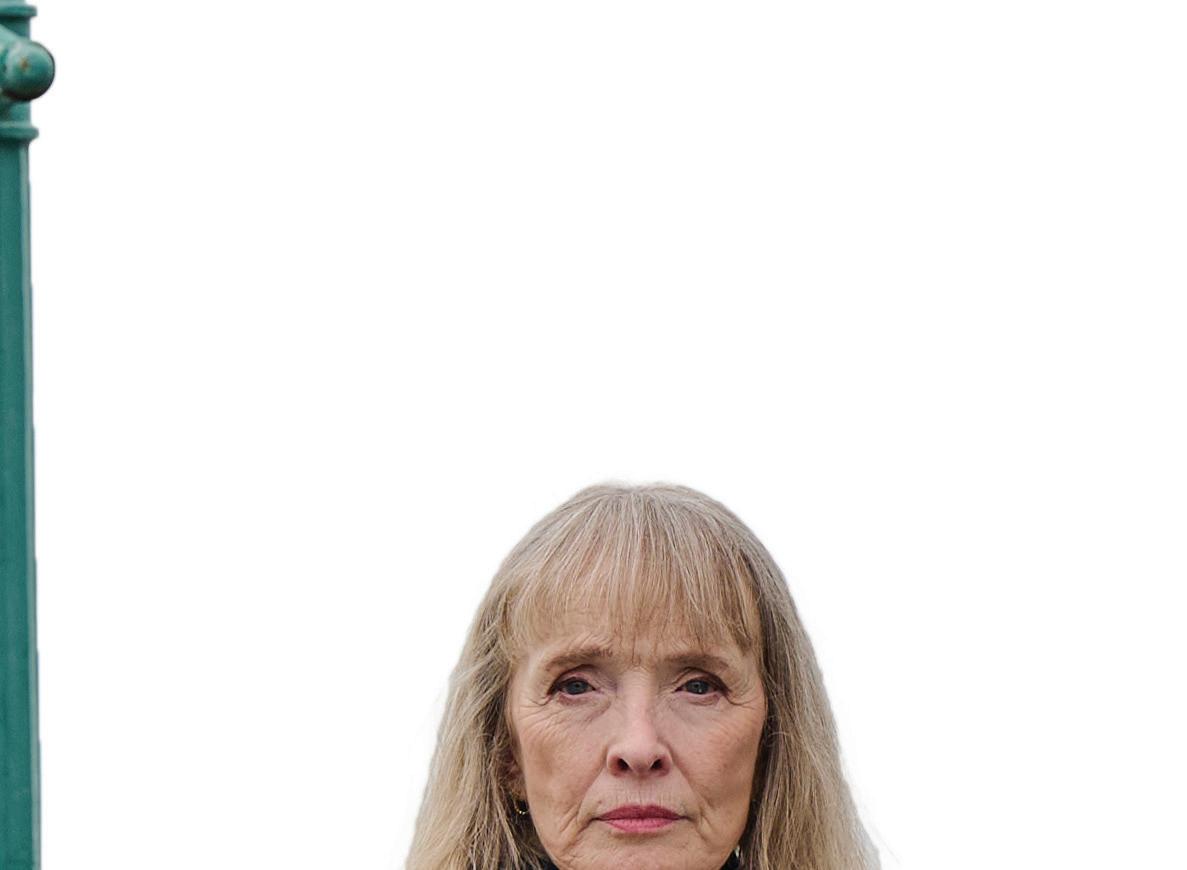
Years later when they are both at a friend’s funeral, they join a gang of old mates to wallow in nostalgia and booze. After the conversation enters darker territory – what the ideal death might look like – they make a drunken pact: rather than let each other suffer a dreadful decline, they will help each other design a dignified death when the time is right – and a crazy idea soon becomes a shocking reality.
The upcoming six-part Channel 4 drama also stars Sue Johnston, Phil Davis, Peter Egan, Karl Johnson,

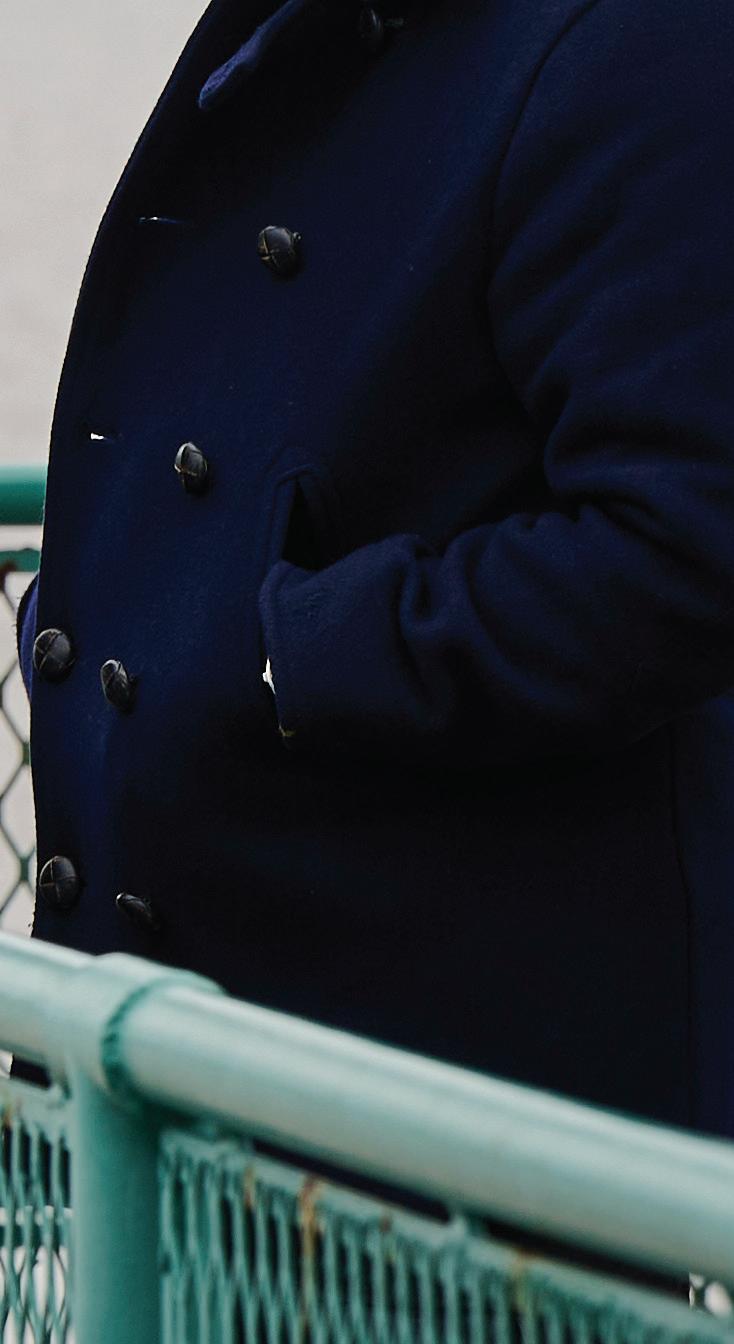
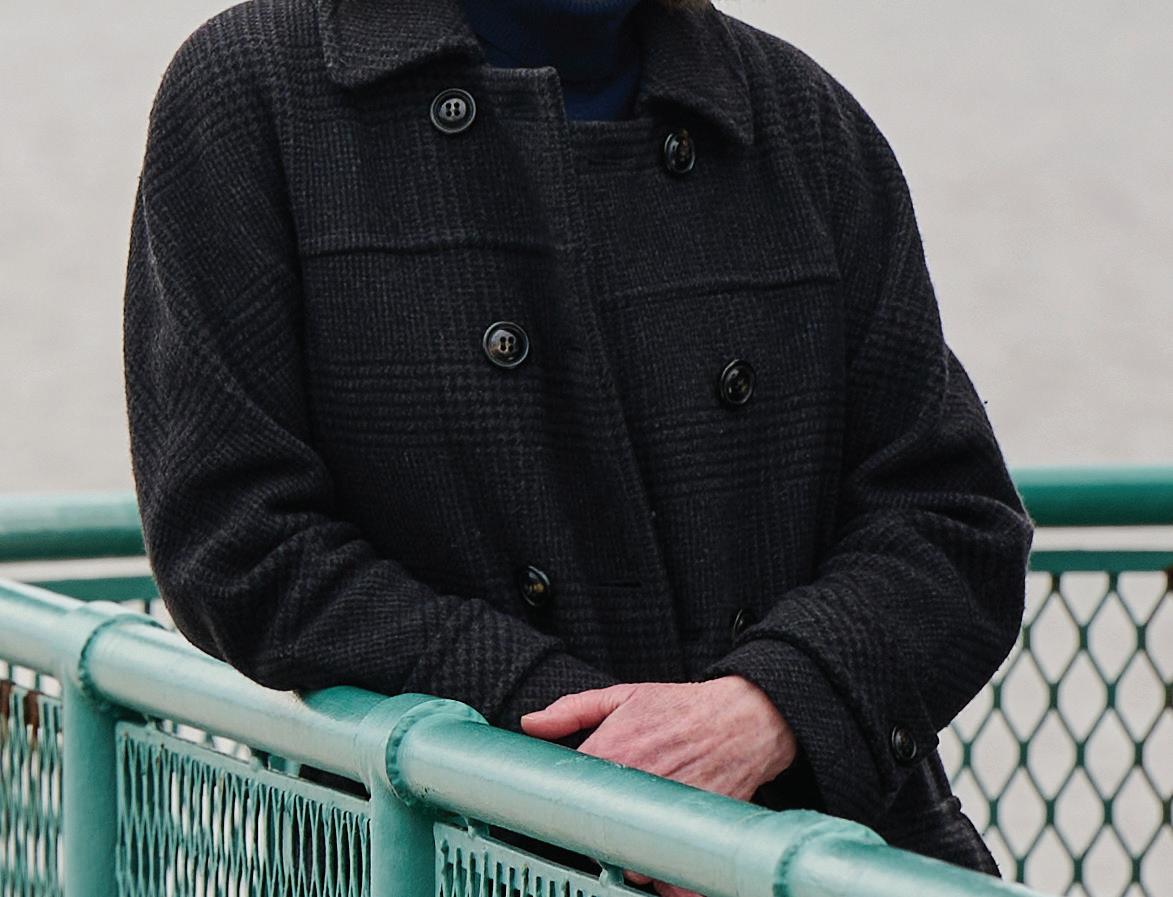
Fiona Button and Kiran Sonia Sawar, while the series also reunites The End of the F***ing World creator Charlie Covell with producer Clerkenwell Films. BBC Studios is the distributor.
It was while Covell and fellow writer Iain Weatherby ( Humans ) were having lunch one day that they

take me out the back and shoot me,’” Covell tells DQ. “My mum was like, ‘Obviously I’m not going to do that,’ but it started this conversation about the fact everyone says it but no one ever does it. What happens if you have these two people who actually do that? It created this germ of an idea and it got richer and bigger. It’s been a long time in the o ng.”

“We knew Iain because we were developing a show with him as well, and Charlie told us their idea and I loved it straight away,” says Fried.
“At some point it was called the ‘bastard grandparent’ of The End of the F***ing World . It’s turned into its own thing but it felt really exciting to be talking about something that was trying to look at older people in a way we don’t normally see them.
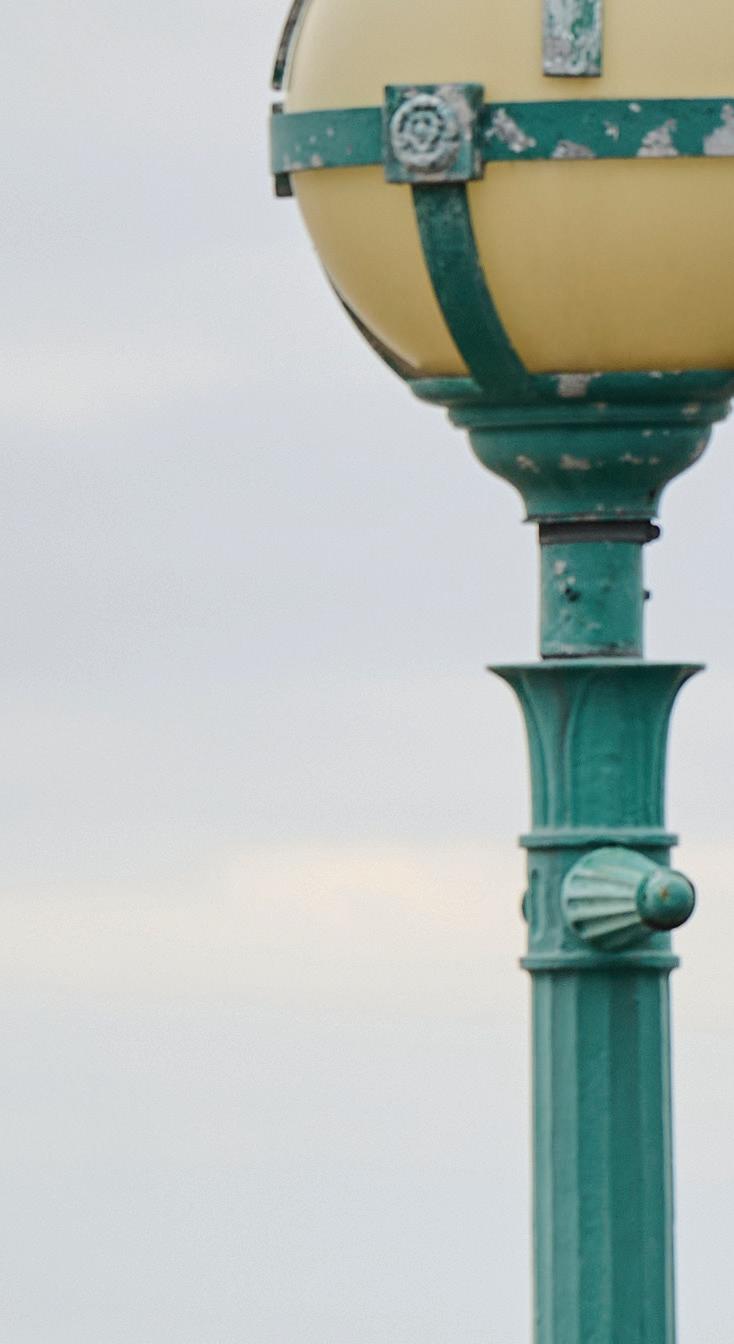
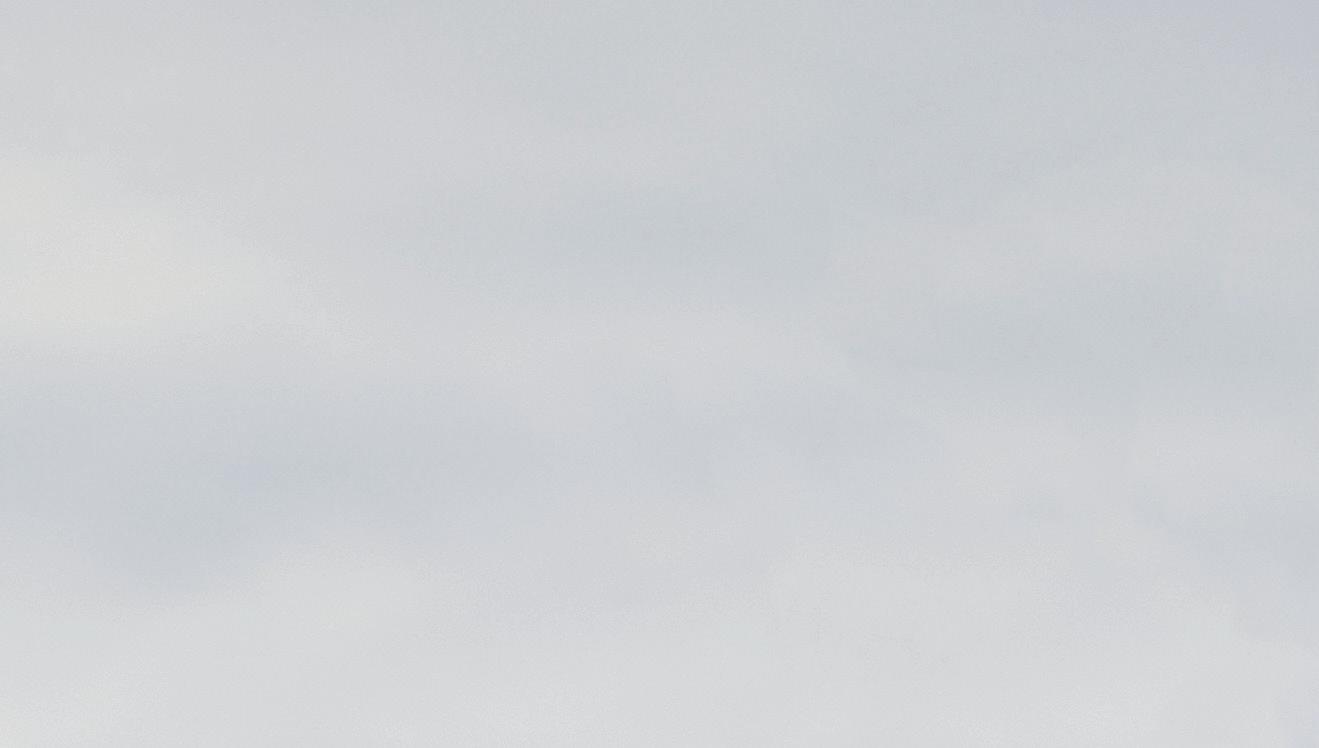
“It was a strong, edgy piece of drama but it was so different. We make a lot of young-adult shows,
struck upon the idea behind Truelove , before they pitched it to Clerkenwell joint MD and series executive producer Petra Fried.
“We were talking about characters and how my granny had said to my mum, ‘Oh, if I get like that,



Truelove DQ . Fall 2023
Peters play teenage sweethearts reunited later in life
>
Six-part drama Truelove flips the script on romance with an older central couple who become embroiled in a story of love and death. As co-creators Charlie Covell and Iain Weatherby and executive producer Petra Fried explain, television isn’t just for the younger generation.
but why should it be just the kids who get all the exciting content? We should make something for older audiences too.”


The thriller element of the story sees Phil and Ken receive a special request that results in them doing “something that isn’t legal,” Weatherby teases. “They are then under pressure, but are they going to get away with it? I love anything where you see ordinary people suddenly thrown into extraordinary situations, and that’s what happens here.”
Covell explains: “Phil is a retired policewoman trying to commit a crime and seeing if she can cover it up, and then we have this younger police o cer played by Kiran, who is great because she’s just brilliant and she’s really funny and she has a very deadpan, throwaway manner. She’s trailing them, so you have that procedural element but hopefully in a way that feels slightly di erent from how it might in other shows. It gives us jeopardy and keeps the momentum going, but it should feel di erent from other shows about death and murder.”






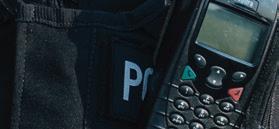
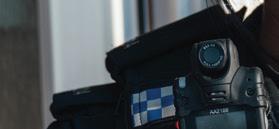


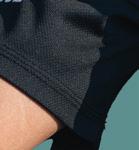

Then there’s the “very old, slow-burn romance” between Phil and Ken, “which we think is a beautiful love story,” Weatherby says.
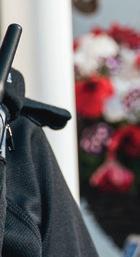


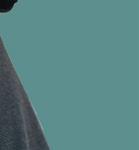

Covell picks up: “You don’t think about writing older or younger characters. You only think about writing. With Ken and Phil, there is this central tragedy and longing that they wanted to be together when they were younger, but they didn’t end up together. So it’s that thing of what happens if you’re still in love with the person you loved when you were 17, but now you’re in your 70s?
“It’s like the older you get, the fewer fucks you give in some cases, so a love you can pursue when it rears its head again, do you go for it or do you not? That’s the thing we’re examining. Thematically, death is very large in this show and, ironically, it makes them feel the most alive they have in years. Hopefully the audience will fall in love with them and their romance. It’s not easy, it’s a complicated thing.”




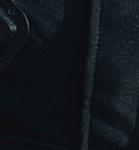

Directed by Chloe Wicks ( The Flatshare ) and Carl Tibbetts ( The Tunnel ), the show walks a tightrope between dramatic and heartfelt moments, but that’s not to say there isn’t a






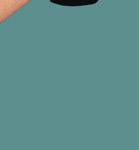







great deal of dark humour mixed in – as you might expect from the team behind The End of the F***ing World . “I can’t love anything that isn’t funny some of the time,” Weatherby says. “When you hear somebody say, ‘If I get like that, take me out the back and shoot me,’ they’re making a joke to cope with the situation they’re in, so it’s both a terrible thing to say but also a funny thing. Human instinct is to cope with tough stuff in that way.”
That it also deals in some weighty topics –flipping the script with older romance on screen and assisted suicide – doesn’t mean Truelove is an issue-led drama. “In no shape or form could you call this an issue-based show – and that’s one of the things I love about it the most,” Fried says. “There are really interesting issues and issues that have universal, international appeal, but it’s all in a brilliant story so you don’t think, ‘Oh, there’s an issue-based show, it’s going to be grim, it’s not going to be much fun.’ It’s the opposite of that; it’s very fun, and even though it’s a show about death, it’s a really uplifting show with very positive messages about love when you get older.”
Covell and Weatherby are co-creators of the series, with Weatherby writing the scripts with Cherish Shirley ( Everything I Know About Love ), who penned episode four. Then with Elliot Hegarty ( Cheaters ) and Rachna Suri ( Half Bad ) behind the camera on location in Bristol, the series forged a “really cinematic but classic” style that avoids putting older actors in a series like The End of the F***ing World or fellow Clerkenwell show Misfits

“That wasn’t our ambition,” Fried says. “It’s a show that has a lot of emotional moments, and you want to be very true to those, so I’m really happy with the look of the show. We’ve found a great balance to make something that is visually engaging as much as it is dramatically and emotionally engaging.



“We’ve also enjoyed working with the soundtrack Iain and Charlie wrote into the script from the earliest days. The commercial music is from the youth of the characters, so there’s a lot of great music from the 1970s, beginning with a David Bowie track, and there’s Leonard Cohen and Bob Dylan.”
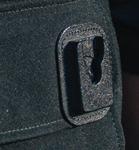
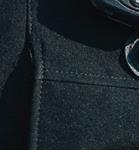
Airing on Channel 4 in 2024, Truelove is an emotional and exciting story that “transcends boundaries” by dealing with issues that are relevant to any audience.







“It’s got thriller elements, a great cast. It just feels like a show that will work wherever you watch it,” Fried says. “Like the best drama that works internationally at the moment, the specificity of the English locations and the very specific Britishness of it is something that will appeal the world over. It’s a very strong flavour – and combined with the excitement of the unusual elements this story offers, you’ve got a very exciting offering.”

DQ . Fall 2023 DQ
“
It’s very fun, and even though it’s a show about death, it’s a really uplifting show with very positive messages about love when you get older.
” 22 <
Petra Fried Clerkenwell Films
The show centres on a group of friends who make a pact to help each other die with dignity
Sue Johnston and Peter Egan also star
Kiran Sonia Sawar plays a police officer who gets caught up in the group’s activities




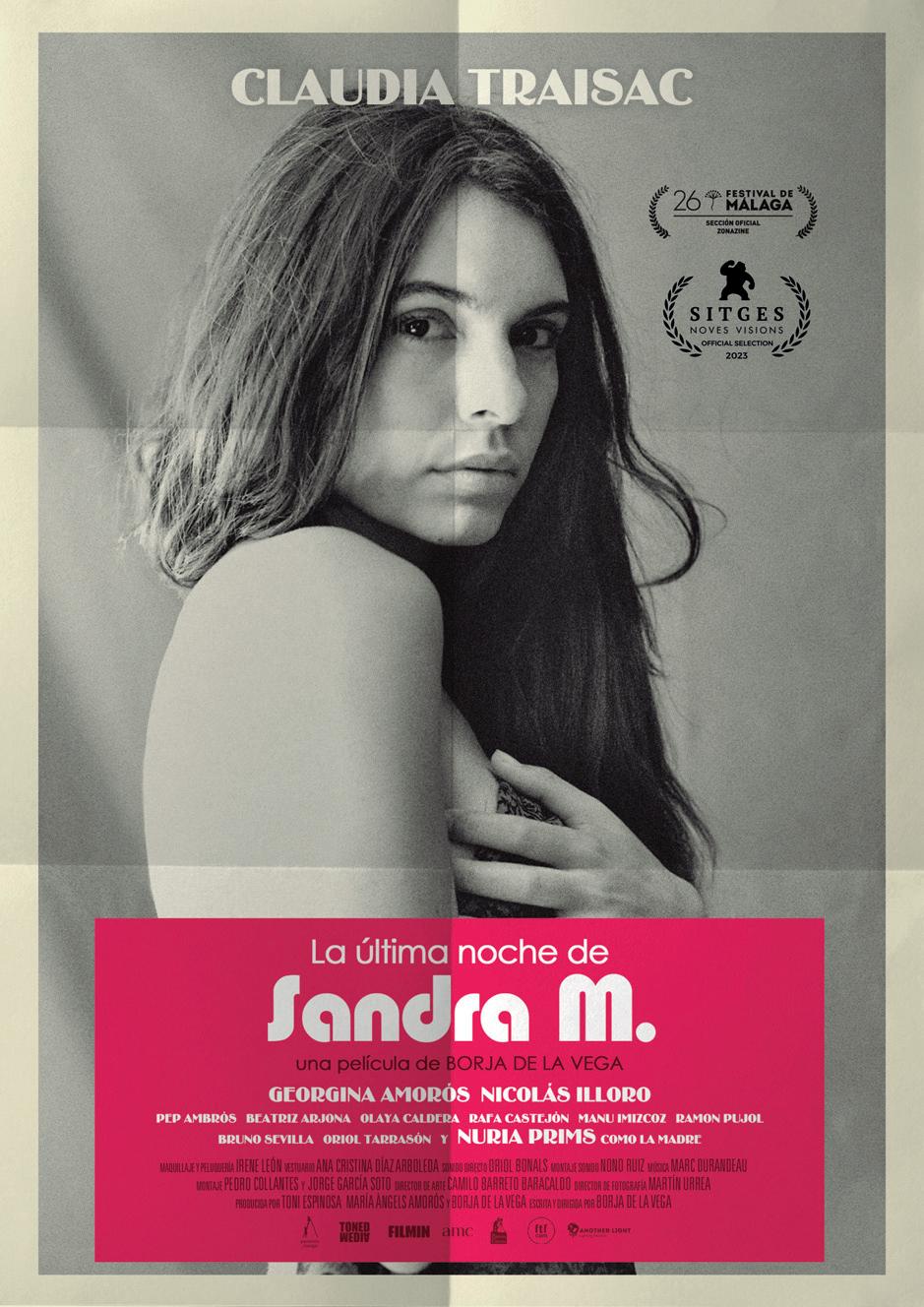

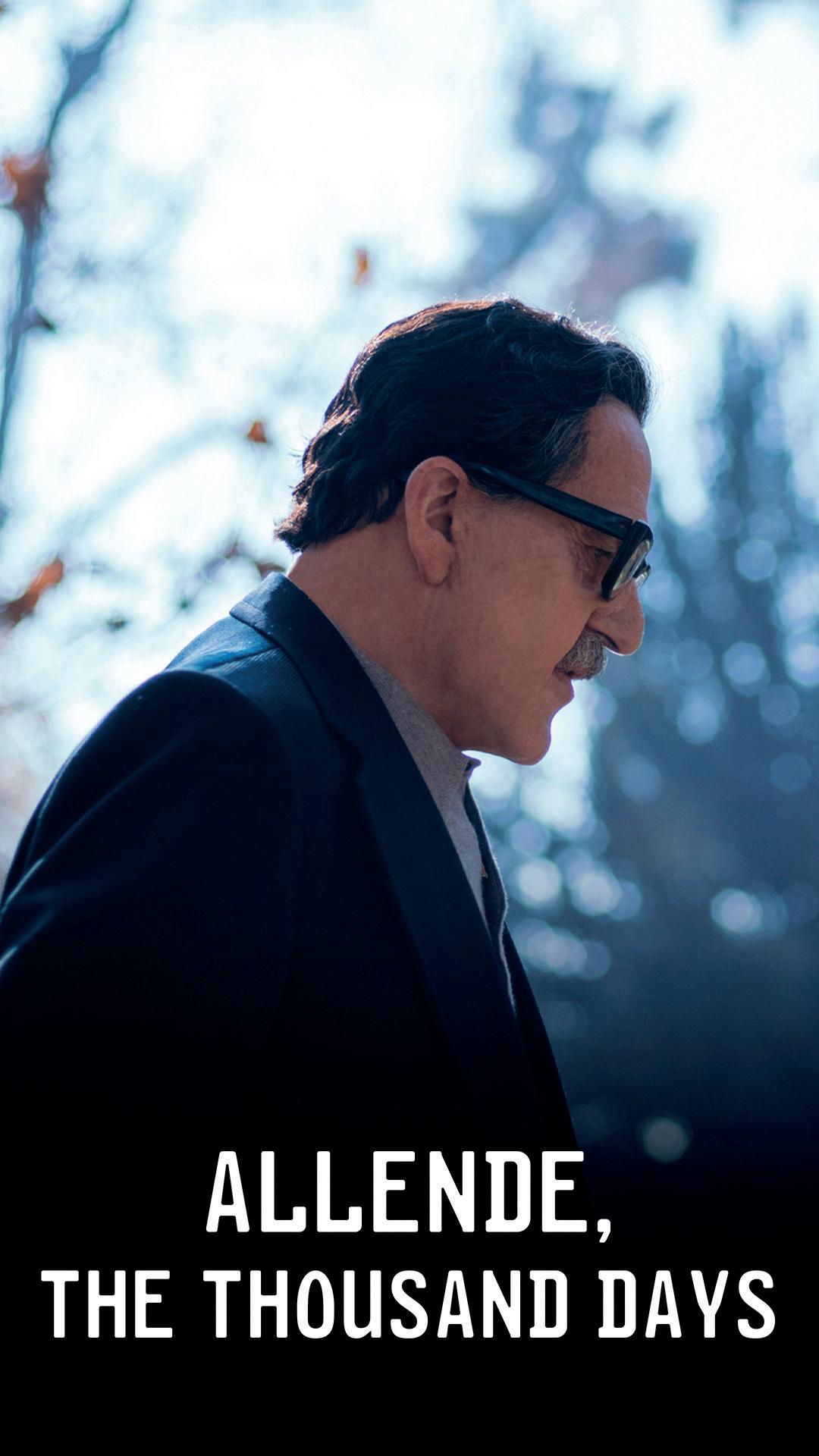

Mipcom 2023
Making the band
Paper Dolls producers Jessica Carrera and Mark Fennessy reflect on making this eight-part series that follows five singers through Australia’s music industry, charting their emotional highs and dangerous lows as they are catapulted to fame after winning a reality competition.
IN THE LATE 1990S AND EARLY 2000S, ASPIRING SINGERS FOUND OVERNIGHT FAME WHEN THEY WERE PLUCKED FROM OBSCURITY TO STAR IN REALITY SINGING COMPETITION POPSTARS. Chosen through a series of televised auditions, the winning contestants were brought together as bands that would go on to experience chart success and international stardom.
However, the good times rarely lasted more than a few years after these groups were thrust into the spotlight.

In Australia, girl group Bardot was formed by the five winners of the country’s first season of Popstars in 1999, and the story of one member, Belinda Chapple, is the inspiration behind a new eight-part drama that dives into the country’s music industry at the turn of the millennium.

Paper Dolls, produced by Helium Pictures for Network 10, isn’t a biopic, however, and draws from stories and experiences across the music industry to chart the extreme highs and devastating lows facing the five members of fictional band Harlow, formed via a music reality show called Pop Rush. When industry outcast and former pop star Izzy James (Emalia) is offered the opportunity to join Harlow the day before their live debut, she jumps at the rare second chance she has been given, much to the chagrin of her new bandmates – free-spirit Annabel (Naomi Sequeira), rebellious rocker Jade (Courtney Clarke), innocent ingénue Lillian (Courtney Monsma) and perfectionist Charlie (Miah Madden) – who all went through the rigorous audition process.
Across the series, each member of Harlow will be pushed to the edge, emotionally, physically and psychologically, as they move between concerts and media appearances. Meanwhile, themes of exploitation, abuse of power and coercive control take centre
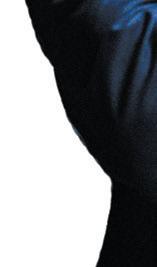
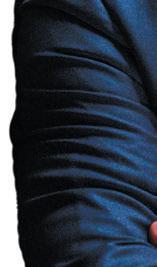
 L-R: Courtney Monsma, Naomi Sequeira, Emalia, Courtney Clarke and Miah Madden make up Harlow
L-R: Courtney Monsma, Naomi Sequeira, Emalia, Courtney Clarke and Miah Madden make up Harlow
stage as the show explores the demands and pressures these women face in return for achieving their dreams of pop stardom.
Making Paper Dolls was equally demanding for producer Jessica Carrera and executive producer Mark Fennessy, who found the series led them to film a drama, shoot concert performances and record the show’s original soundtrack at the same time, all while the lead cast members spent their spare time learning the choreography they would perform in the show.
“The short space of time in which we went from development to being greenlit to production was such a fast process that everyone who contributed to the show can be very proud of what’s on screen,” Fennessy tells DQ as editing nears completion on the “gritty, distinctive” series, which is distributed internationally by Entertainment One.
“The five girls had to work incredibly long days, so when they’d finished shooting, they had to go to the recording studio. And then there’s choreography. But everyone had such a positive spirit on set.”
celebrity,” says Carrera. “It’s peeling back the gloss and the glamour and getting to know who these women are as individuals. They’re thrown together in a house and they suddenly have the pressure of meeting everybody else’s expectations. Ultimately, what’s drawn them there is a passion for music, and that is an incredible premise for drama that just combusts.”
When they were casting the series, Carrera and Fennessy saw auditions from around 265 potential members of Harlow, who all met the brief that they had to be between 18 and 26 years old and able to sing, dance and act.
“We were blown away by the quality of talent. We probably could have cast three groups,” says Fennessy, who reveals some auditionees had five callbacks and still didn’t make the cut. “It was a really thorough process, but obviously it’s a crucial part of the show and we’re delighted with [the final group]. When you’re listening to them performing the tracks, they feel like they’ve been together for five years – the harmonies are terrific and the dancing is fantastic. That was a really joyous part of the process.”
Once the band was assembled, filming took place across three blocks and largely in chronological order, allowing the actors’ performances to follow the same linear path as their characters. Different locations were used around New South Wales, while the scripts called on Harlow to perform in places as varied as music festivals and shopping malls.
“We didn’t have a huge amount of flexibility in the schedule, but the girls were so rigorous in their rehearsing and their performances,” Carrera says of the 11-week shoot. “Where we are in episode one was just the beginning for them. And where they are at the end, you can see they have grown as a group, so it did actually work quite well from a storytelling perspective.”
As with any music drama, getting the songs right was key. Numerous 90s classics feature on the soundtrack, while Fennessy and Carrera worked with Sony Music Publishing and songwriters Janeeva and Robby De Sa to create eight new tracks for Harlow, including a cover of Irene Cara classic Fame.

Producer




















Paper Dolls is based on an idea by Chapple, who first approached Fennessy several years ago with what would become her recently released memoir, The Girl in the Band: Bardot – A Cautionary Tale.
The resulting series is now “a long way” from the Bardot story, as Paper Dolls became “more edgy, more distinctive, a little darker,” Fennessy explains. “There are certainly some things that happened to Bardot that are in our story, but there’s an awful lot that is completely fictional as well. It makes for quite a compelling, really entertaining drama and quite a universal story, with lots of ‘OMG’ moments along the way.”
The series was created by Ainslie Clouston




), who wrote the scripts with David Hannam, Marieke Hardy, Jenna Purcell, Sara Khan and Thomas Wilson-White. Notably, each episode comes from the perspective of a different character, taking viewers into their own personal and professional triumphs and challenges.



Directed by Tenika Smith, Nina Buxton and Erin White, the drama also introduces a stylistic, show-within-a-show element, as Harlow is followed 24/7 by the Pop Rush cameras to chart the group’s rise. “It’s about the darker side of fame and
“Half of those were demos that had never been really released. The other half were written from scratch,” says Fennessy, a former head of MTV Australia. “Obviously the music has a nod to that period of the late 90s and early 2000s, but it’s also dance-pop music, so it needed to lend itself to choreography as well. They also had to be songs that could encompass five girls with harmonies and different vocals. It was actually great fun doing it.”
“It was almost like producing two projects – producing the music and producing the show itself,” Carrera adds. “And the music is written into the scripts. It’s very didactic. What they’re singing about reflects the story.”
Having worked in the music industry, Fennessy found he could bring some of his own experiences to Paper Dolls. But both he and Carrera stress the show doesn’t represent any one person working in the business at that time, while their main focus was always on ensuring the authenticity of the story and their duty of care to the cast.





“Sometimes it’s not overly flattering, but that’s the entertainment world too,” Fennessy notes. “It does have another side to it. It’s often not fair – that’s showbiz, as they always say – but it certainly was a challenging and interesting process for us in threading that needle.”
“I don’t think we would have been able to make a show with this content about the music industry 25 years ago. We’ve come so far,” Carrera adds. “This is a show set in a pre-#MeToo era, but there’s enough distance to be able to look back and reflect and acknowledge that it wasn’t a great time to be a woman in the music industry. Hopefully now we can start a discussion. How is it better now, and how can it be even better for all artists?”
IN PRODUCTION: Paper Dolls DQ . Fall 2023 25
”
“This is a show set in a pre-#MeToo era, but there’s enough distance to be able to look back and reflect and acknowledge that it wasn’t a great time to be a woman in the music industry. Hopefully now we can start a discussion.
Jessica Carrera
DQ
(Amazing Grace), who wrote the scripts with Directed by Tenika Smith, followed Pop Rush Mark Fennessy
As Zorro returns to the screen after nearly two decades, DQ dives into the making of this swashbuckling Spanish-language adventure, which sees Élite’s Miguel Bernardeau don the famous mask and cape of the iconic vigilante.
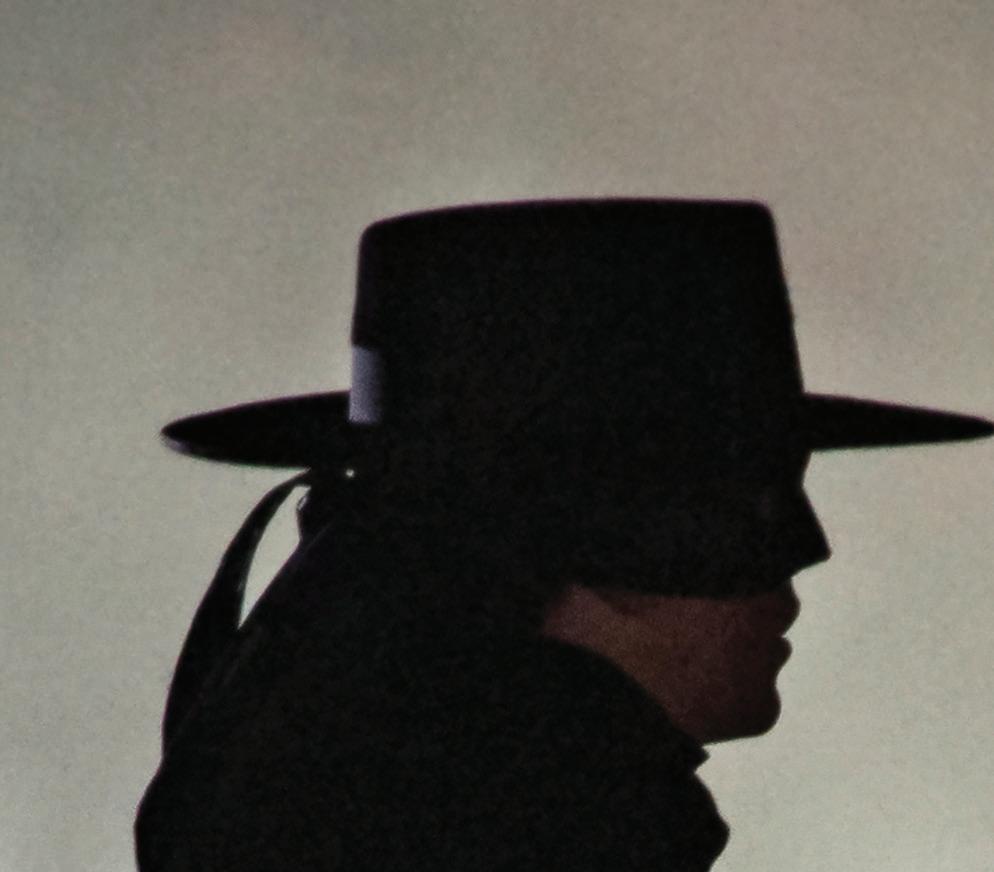
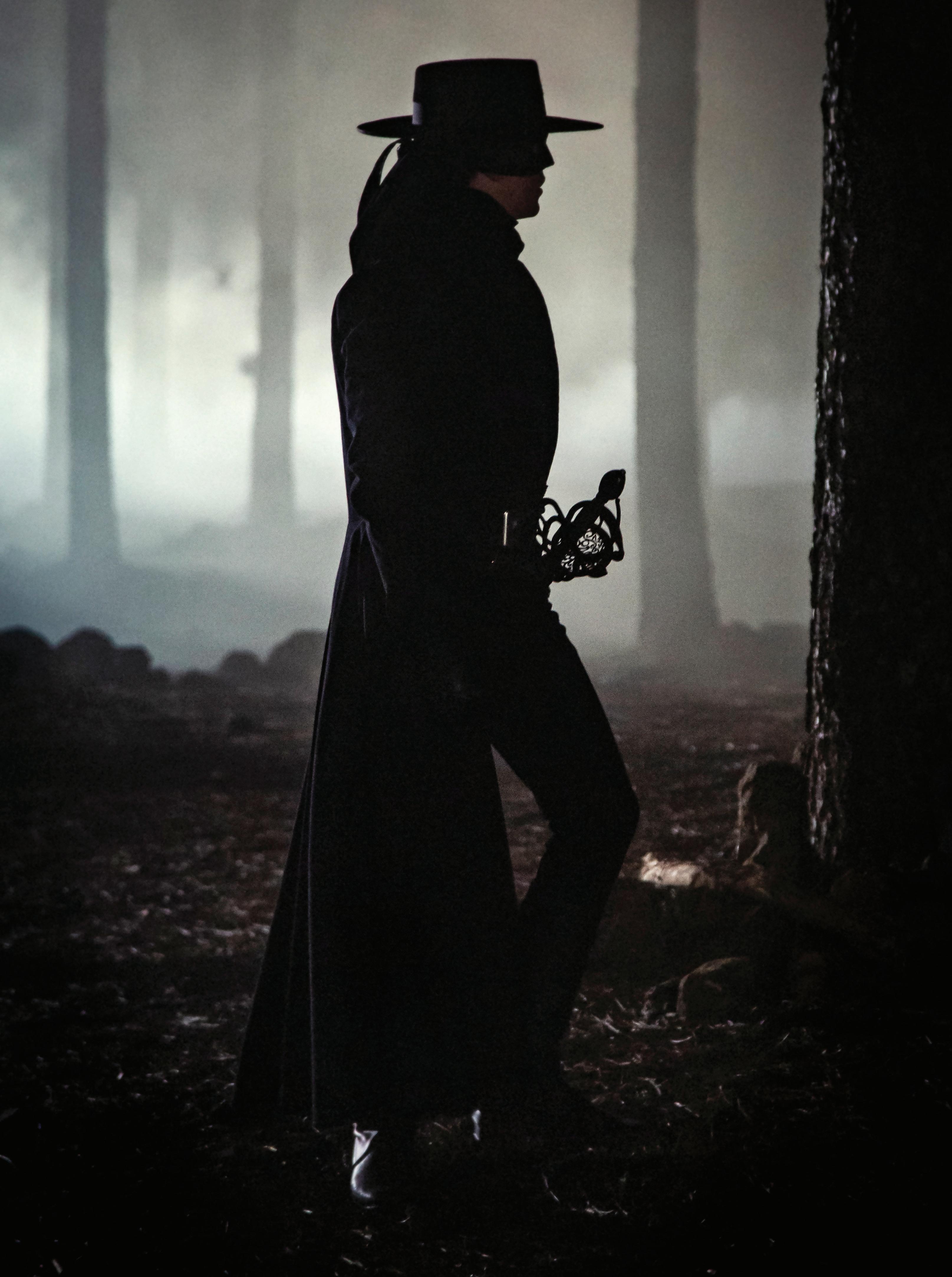
MASK BEHIND the

It’s a story that’s more than 100 years old. In 1919, swashbuckling vigilante Diego de la Vega first began fighting injustice in Spanish California as his masked alter ego, Zorro.
The creation of writer Johnston McCulley, he originally appeared in novel The Curse of Capistrano, and later made his screen debut in Douglas Fairbanks’ 1920 silent film The Mark of Zorro . The character has since appeared in numerous TV series and films, including 1998’s The Mask of Zorro and 2005’s The Legend of Zorro , both starring Antonio Banderas and Catherine Zeta-Jones.
Now, almost two decades after his last screen outing, Zorro is returning for a new generation. Ten-part Spanishlanguage series Zorro is set in 1834 Los Angeles and stars Miguel Bernardeau ( Élite ) as landowner Diego – and when in disguise, the masked hero of the people.
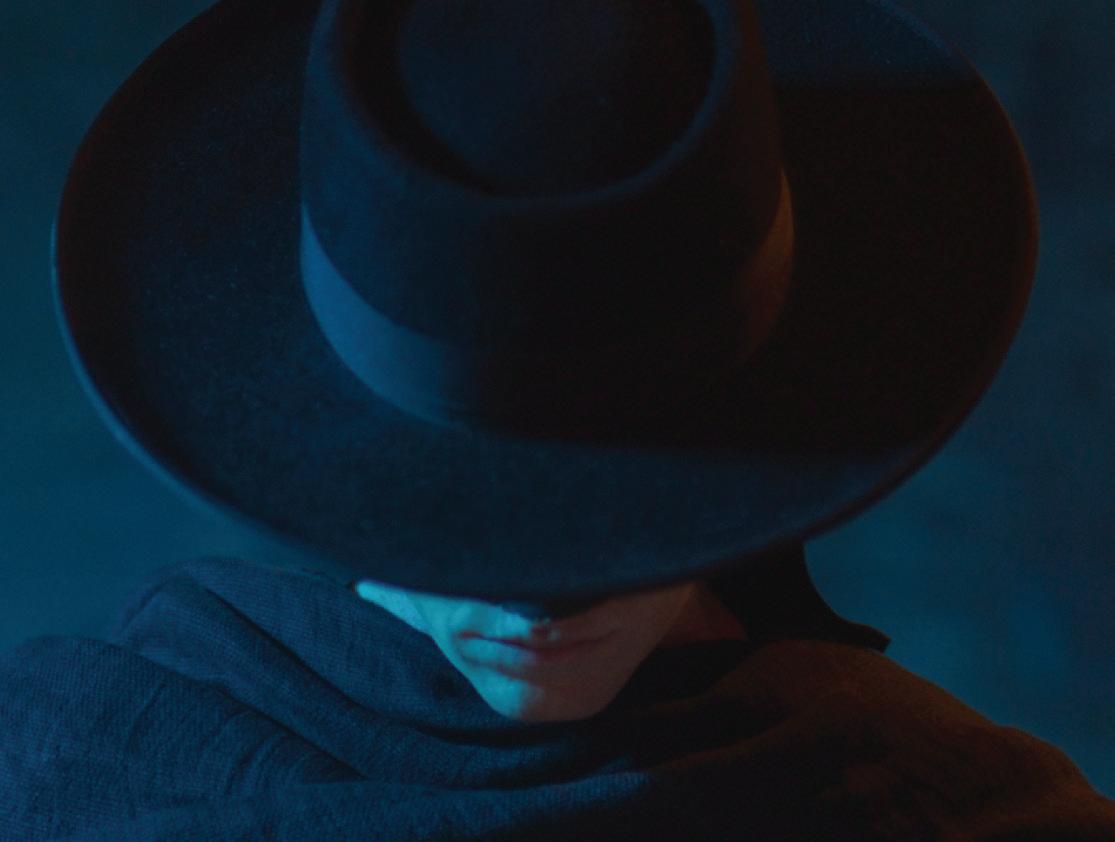
The series also features rising Mexican star Renata Notni ( El Dragón: Return of a Warrior ) as Lolita Marquez, the love of Diego’s youth, plus Dalia Xiuhcoatl, Paco Tous, Emiliano Zurita and Joel Bosqued.
Produced by Secuoya Studios and distributed by Mediawan Rights, the drama is set to launch on Prime Video in the US, Latin America, Spain, Portugal and Andorra in 2024. It is written by Carlos Portela ( Hierro ) and directed by Javier Quintas ( Money Heist ), Jose Luis Alegría ( Toy Boy ) and Jorge Saavedra ( Mr Smith and Mrs Wesson ).
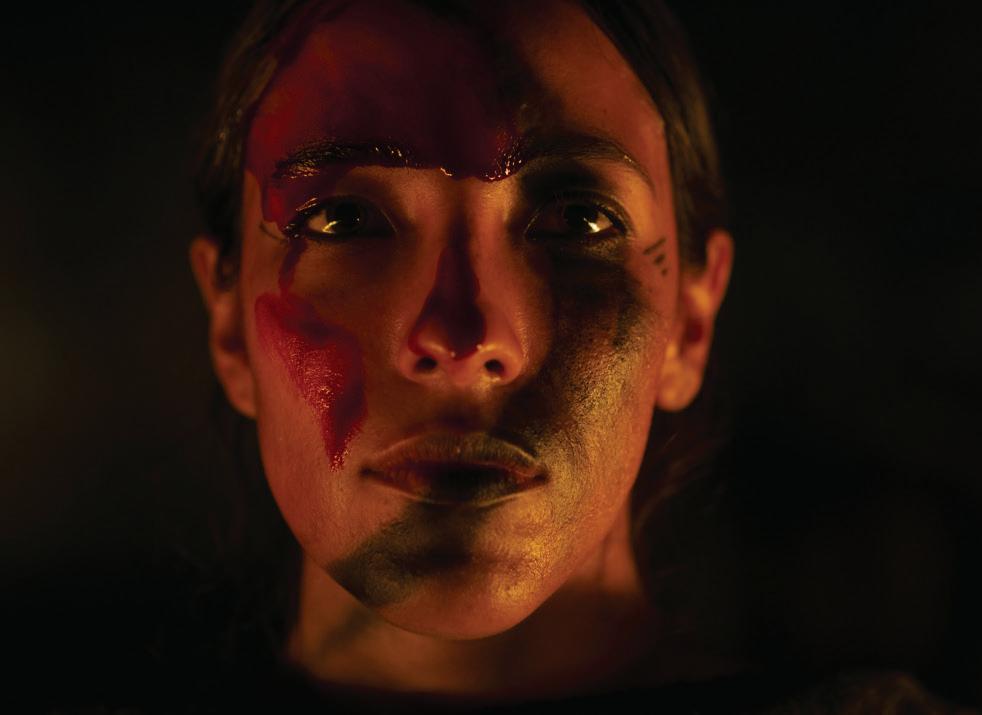
Here, creator and writer Portela, executive producer and Secuoya Studios president of commercial and distribution Sergio Pizzolante and Mediawan Rights MD Valerie Vleeschhouwer tell DQ about their journey to bring Zorro back to the screen, the drama’s comic-book aesthetic and why the character has endured the test of time.
Introduce us to the story of Zorro .
Portela : Zorro is the story of a heroic vigilante. The story appeals to the need the working classes have for justice to be served. The legendary character of Zorro embodies this – a man born into privilege, but who must react to an oppressive environment during the dawn of the modern era. Our story follows the journey of Diego de la Vega, who returns home to California to find out who killed his father, and what he discovers is the corruption of the society to which he once belonged. Along the way, he must give up many of his own goals to ultimately find a unique family and a new purpose.
Almost two decades have passed since the last liveaction adaptation of Zorro. Why is now the right time to return to the source material?
Pizzolante : Back in 2018, I was in a meeting with some industry colleagues and we began wondering why no one had tried to make a premium, global adaptation of Zorro in Spanish. Apart from a telenovela produced back in the 2000s, there seemed to be nothing on a premium scale done, ever. This was particularly perplexing since Diego de la Vega is Spanish, and the story takes place in Spanish California. So we set out to change that. Our first step was to secure the rights, and ZorroProductions founder John Gertz immediately understood our vision and passion to create something big.

To our surprise, when we approached Hollywood agents, producers and commissioners, they were sceptical that we could triangulate three key factors successfully – a highend budget, global appeal and the Spanish language – so we hit a wall. I went to Spain, where I met Secuoya Studios’ David Martinez. Not only did he share our vision, but his passion was even greater than ours. He immediately accepted the challenge and got to work, and brought in Carlos Portela, who came up with this modern and remarkable take. We took it to market and received multiple o ers, but from the beginning, Prime Video felt like the perfect fit. Our partners at Amazon Studios and Prime Video Lat Am, Javiera Balmaceda, Pablo Iacoviello and Francisco Morales, were crucial to bringing the project to fruition.
The story is set in the past yet it’s described as a modern adaptation. How did you find that balance? Portela: Our concept for Zorro aims to update Johnston McCulley’s narrative from the early 20th century to a contemporary sensibility where justice has di erent interpretations. We have incorporated the perspective of Native Americans to assert that the history of America cannot be told solely from one perspective. A sense of justice existed in California before the arrival of Diego, and this will challenge our protagonist and help him learn to free himself from his own prejudice, and understand and love his roots and culture.
I’ve always believed recreating the past only makes sense if you speak to today’s audience, and that requires generating a dialogue with the contemporary. The characters have deliberately modern profiles while respecting historical patterns that lend authenticity, but with motivations and conflicts relevant to today.

IN FOCUS: Zorro DQ . Fall 2023 27
> “ ”
Miguel Bernardeau takes the lead in Zorro
It has been one of those shoots where everyone ends up feeling like they’ve returned from war, but also one that brings people closer together.
Carlos Portela Writer
From the multi-award-winning team behind global hits Bodyguard and Line of Duty

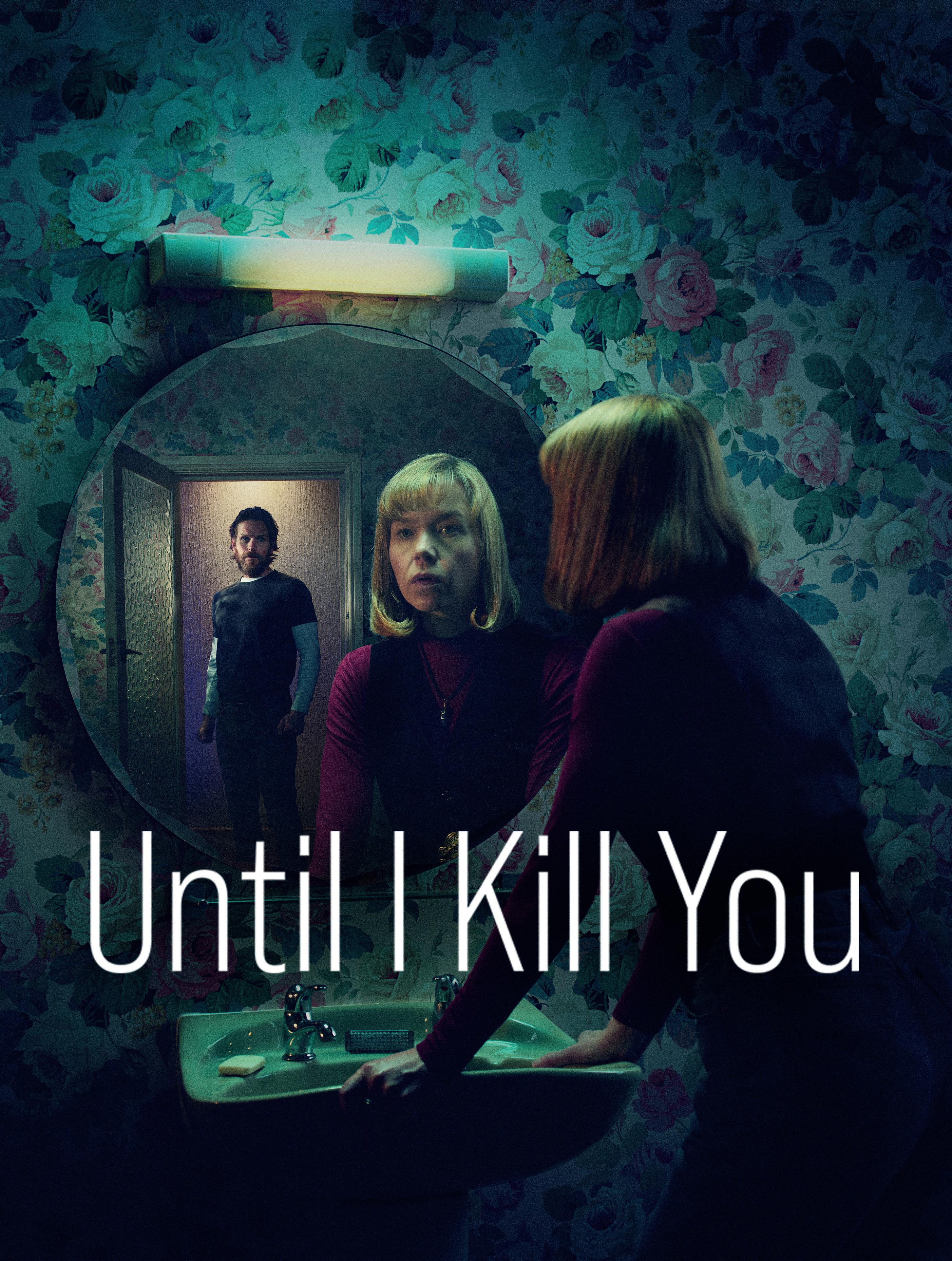 ANNA MAXWELL MARTINSHAUN EVANS
ANNA MAXWELL MARTINSHAUN EVANS
What was the writing process behind the show?
Portela: The truth is, this series has a peculiarity in that I have written all 10 episodes of this first season. It’s the first time I’ve taken on such a massive task, and it has been exhausting. I have had the invaluable assistance of Samara Ibrahim, a great scriptwriter, who has helped me infuse it with the Mexican spirit the series needed.
Why was Miguel Bernardeau right for the part?
Portela : Diego de la Vega is the son of a Spaniard in all versions of the story. In our series, Diego also returns after many years in Spain, so the actor had to be Spanish.
What this character required was almost impossible to find in a single name: they had to be a serious, disciplined actor who could endure seven months of filming under challenging conditions, possess excellent technical ability to maintain the character’s arc when episodes were not shot in order, and exude the presence of a young aristocrat capable of upholding his father’s dignity, the biggest landowner in California. Without a doubt, Miguel possesses all these qualities. We are immensely proud of his wonderful work.
How would you describe the show’s visual style, and how was this achieved?
Portela: We wanted to capture a comic-book aesthetic. I come from that world, and it was clear from the beginning that this would be our goal. Each department head worked hard to find the best approach to create a cohesive look. We wanted to stylise the era based on more contemporary ideas, just as we did with the character designs and the script.
Johnny Yebra’s cinematography is spectacular, as is Clara Bilbao’s costume design, and Pepe Dominguez and Itziar Sagasti’s art direction. Directors Jorge Saavedra, Javier Quintas and Jose Luis Alegria have also done a fabulous job in creating the settings and a narrative that feels like 2024.
The story is set in 1830s LA. How did you recreate the city and the era?


Portela: The art team has done a phenomenal job. We’ve allowed ourselves some aesthetic liberties to transform it into a city somewhat larger than it was in 1834, with elements that oscillate between nods to the western genre and superhero films. The series was entirely filmed on the island of Gran Canaria, where we redesigned and dressed an old film set to become the LA of our Zorro. The CGI department, through the company XReality, has also done an incredible job that complements the production design very well.
What kinds of stunts or standout scenes feature in Zorro?
Portela : It features many action scenes. We are creating a contemporary adaptation of Zorro, and we cannot betray viewer expectations. We have worked with one of the best teams of stunt specialists, led by Gregory Brossard, and they

have done a wonderful job despite the many challenges, including a serious accident involving Gregory himself that forced us to halt production. Fortunately, he is now well, and must be very proud of the outcome.
What challenges did you face and how did you overcome them?
Portela: I have many TV series under my belt, but I never imagined we would have to overcome so many obstacles. Filming for such a long time with the weight of action, horses, carriages, period costumes, weapons and such a high level of demand makes shooting an adventure that isn’t always fun. We faced a number of storms and floods that the island hadn’t seen in decades, several injures to actors and crew, all kinds of logistical problems, and even shortages. Miguel Bernardeau had a non-serious but long-lasting injury that forced us to change the shooting schedule. And with so many actors traveling from Mexico, we also had logistical challenges. It has been one of those shoots where everyone ends up feeling like they’ve returned from war, but also one that brings people closer together.
What makes Zorro such an enduring character?
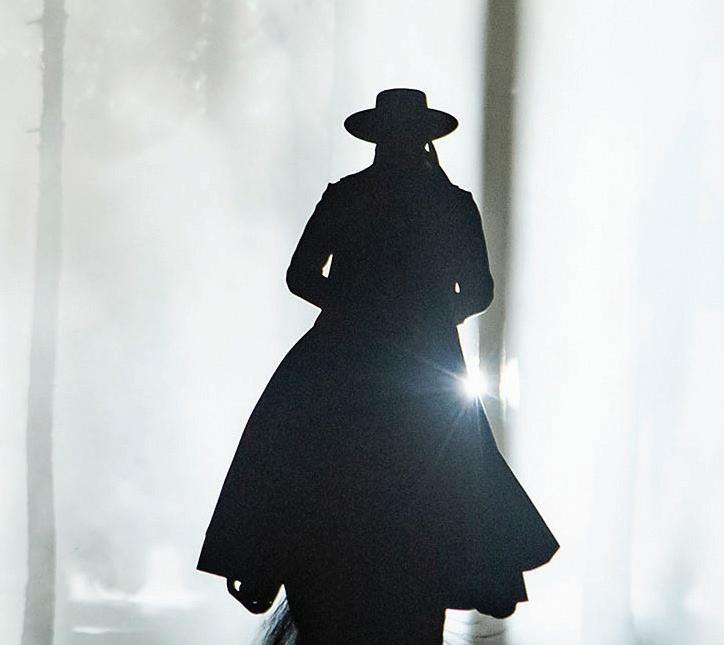

Portela : He is the embodiment of a heroic vigilante; someone who, thanks to their class privileges, has access to information that allows them to develop a social conscience. He is also a man of action who does not tolerate injustice. There’s also the duality of the character: by day, he is Don Diego de la Vega, a respected landowner who follows societal norms, and by night, he is Zorro, the people’s hero, who challenges the law to restore justice.
Why might the series appeal to international viewers?
Vleeschhouwer: Zorro is a huge IP, one of the rare examples that resonates with everyone. The show is a pure entertainment series that can be watched by all the family. And what makes it particularly stand out is that the creative team was able to bring a perfect balance between keeping the DNA of Zorro while adapting it to modern expectations. Our strength is to have a show that is such a famous brand and provides a good mix of action, adventure and uplifting moments while reaching a co-viewing audience. That is exactly what international audiences are looking for, and what Zorro delivers. DQ
IN FOCUS: Zorro DQ . Fall 2023 29
<
The production team recreated 1830s Los Angeles on the island of Gran Canaria
TRENDSPOTTING: Real-time drama



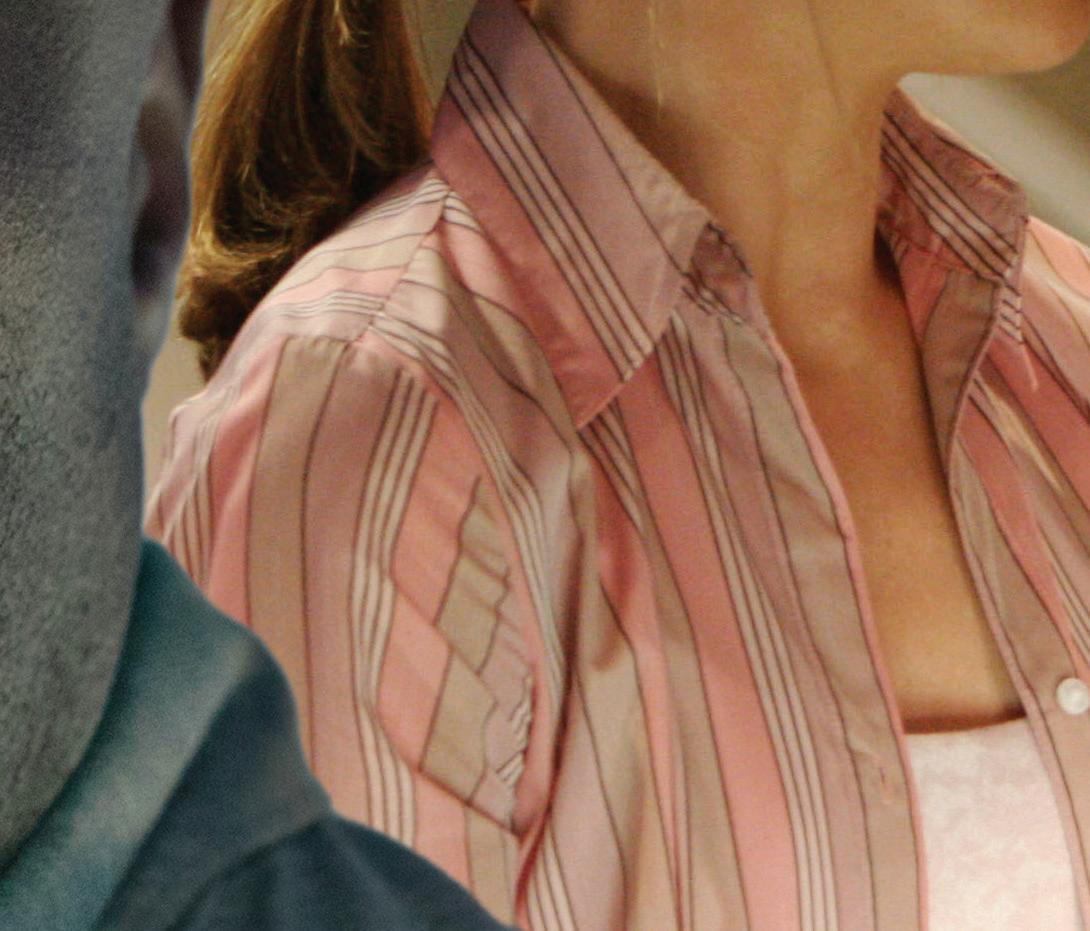

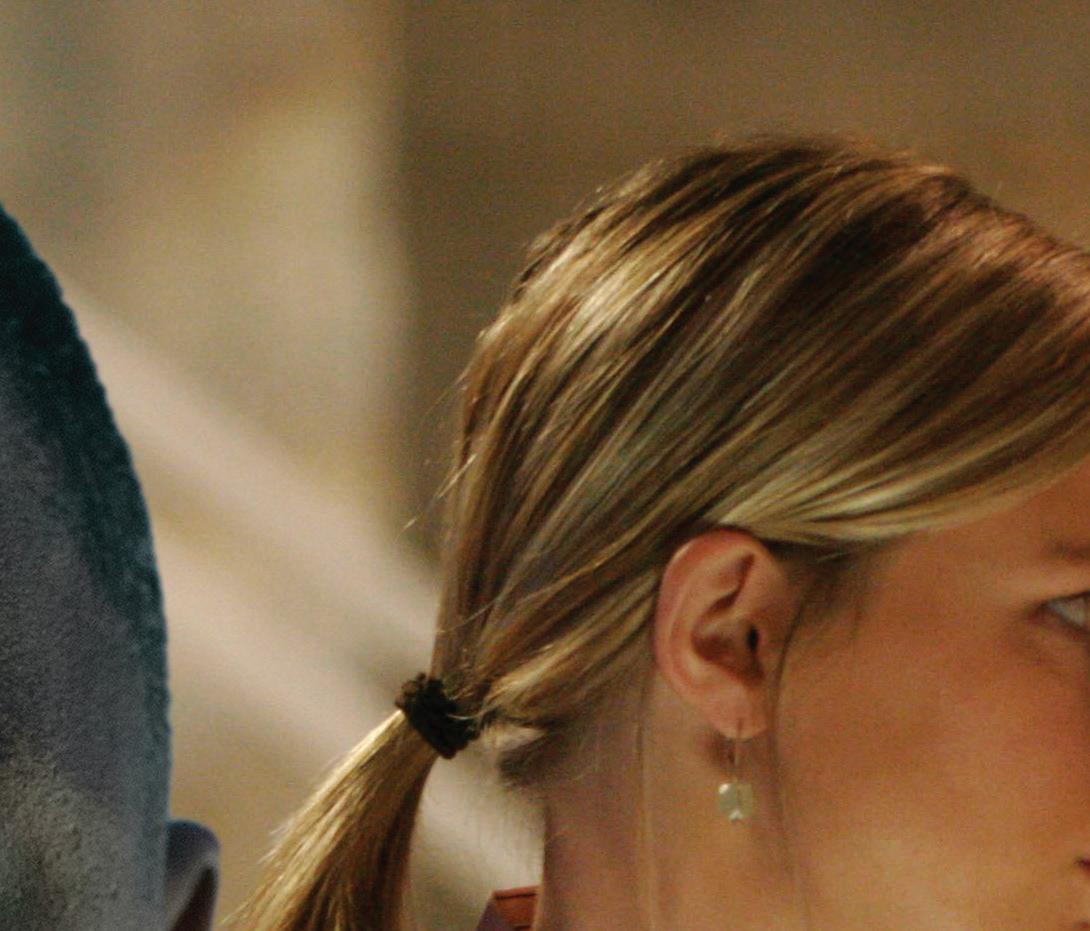



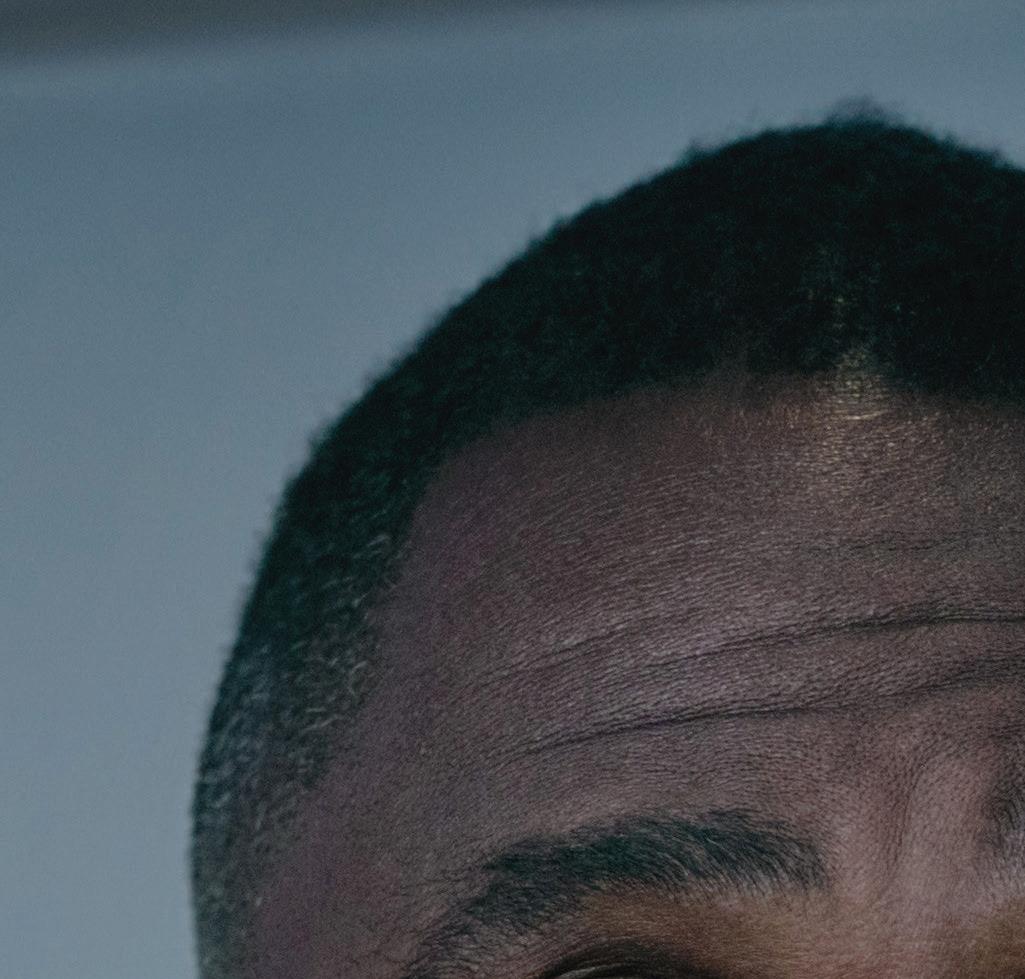


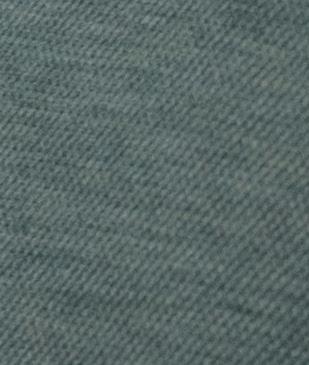




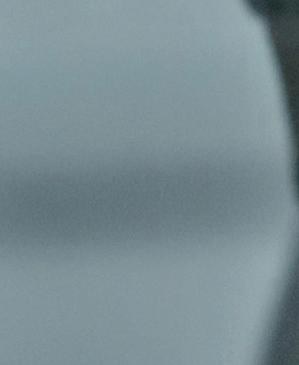


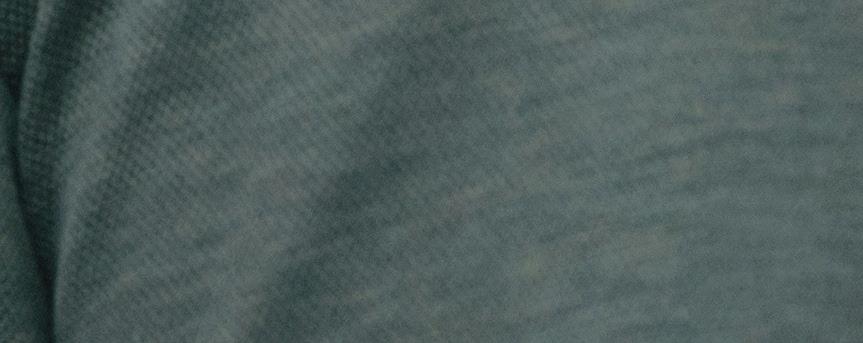

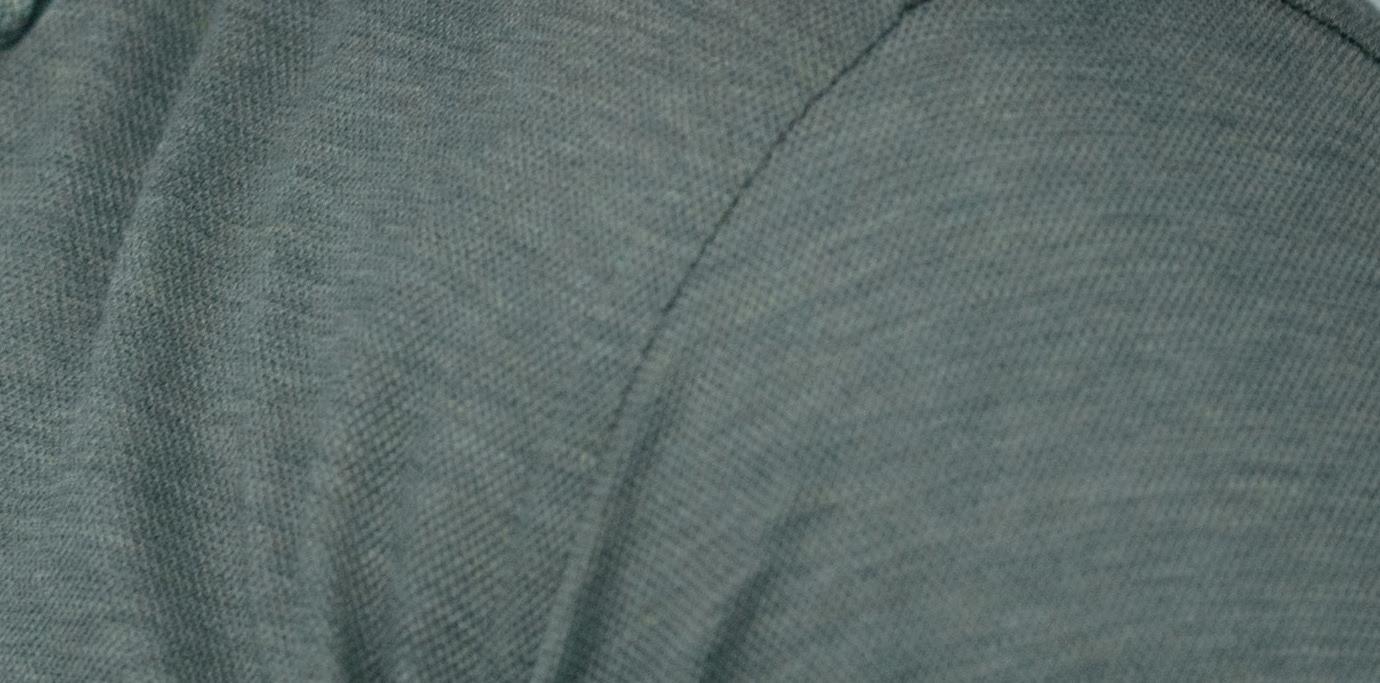



The writers behind series including Hijack, Nightsleeper, Breathtaking and Storm Lara dissect their interest in setting dramas in real time, what impact this has on storytelling and how they bring viewers along for the ride.


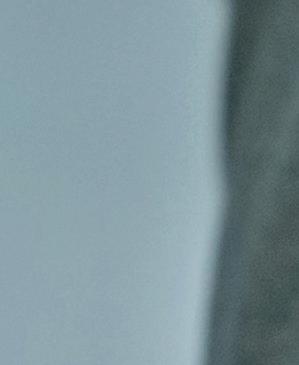


DQ . Fall 2023 30
Idris Elba in Hijack
As he was writing the third part of Netflix’s French crime caper Lupin while on board the Eurostar, travelling between London and Paris, screenwriter George Kay suddenly had the idea for a new series.
“One day as we were in the tunnel, the train stopped abruptly. I looked around me and thought, if this is something serious, were these guys in my carriage, including me, up to standing up to the threat or confronting anything that was going on, or would we all cower in our seats? Or will the hard guy be more inclined to do it than the rest of us?”
Kay was already penning an episode of Lupin set on a train, so he transplanted his idea to a plane – and that idea became Hijack, the Apple TV+ series starring Idris Elba as a passenger on a plane that is hijacked at the start of a seven-hour flight. It is produced by 60Forty Films, Idiotlamp Productions and Green Door Pictures.
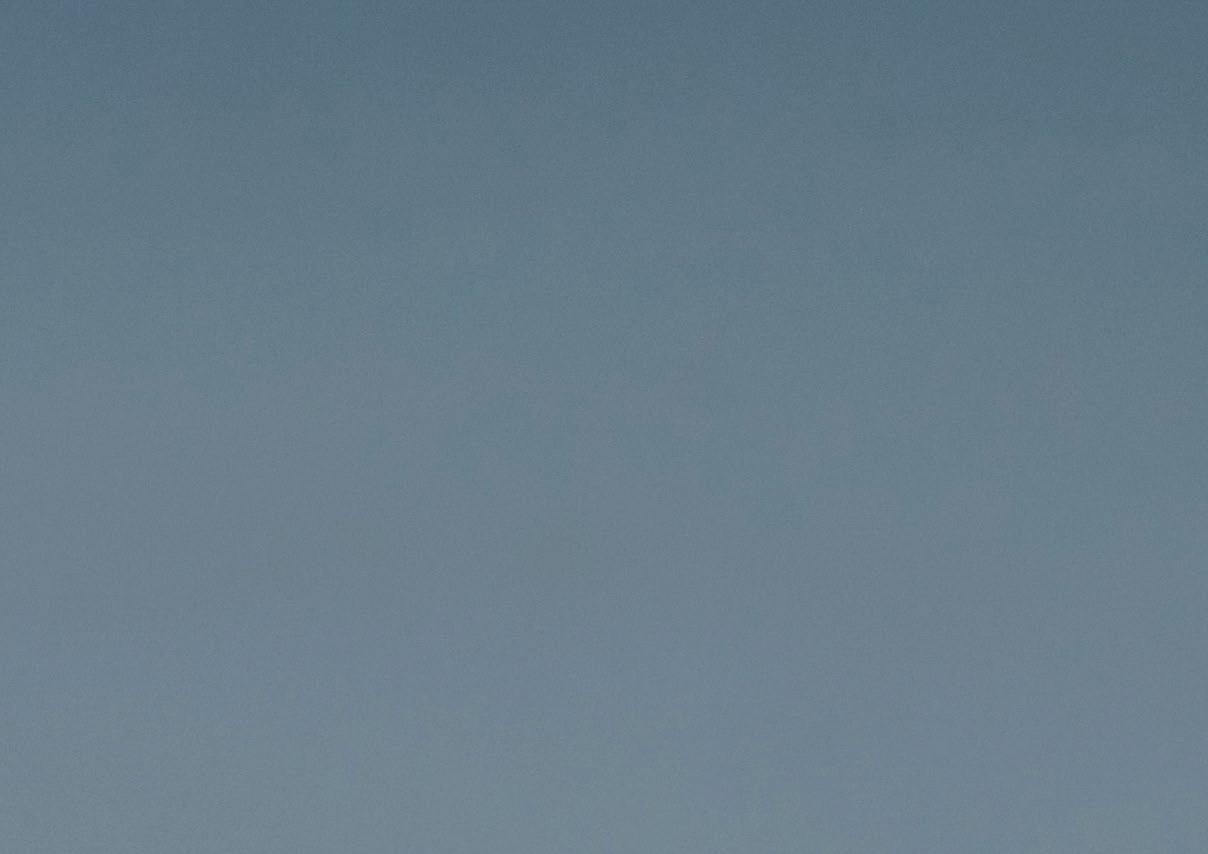
Notably, Hijack unfolds in real time, and is one of a number of series dialling up the intrigue and tension by playing out in the same number of minutes as their running time.
Kay is no stranger to writing a high-concept series with built-in story constraints, having previously paired with Hijack director Jim Field Smith on Criminal, a Netflix series where each episode takes place almost entirely inside a police interview room. When it came to his planeset series, Kay sought out a flight path that would last the length of a limited TV series and built the story from there, with Elba’s business negotiator attempting to broker a peaceful resolution as the hijacked plane travels from Dubai to London.
“What I really like about real time is it’s linear storytelling. You don’t flash back,” Kay tells DQ. “There’s been a generation of shows that have relied upon the irony of the audience knowing more than the characters, and we feel there’s so much more to be had out of that because it feels clever. Actually, sometimes in the industry, we think a reveal is more powerful than it is.

“You’re better off with characters experiencing things at the same time as the audience and things unfolding for both parties in front of their eyes, and that’s where real time’s really effective, because we will have experienced what the characters have experienced and therefore you have much more subjective television.”
Thanks to 24, the long-running Fox series starring Kiefer Sutherland as tireless counter-terrorism agent Jack Bauer, real-time


dramas will forever be associated with the ticking clock that would greet the start and end of every ad break, propelling the drama forward through another terrorist threat.
“But what you’re really doing is making it feel present and active for the audience in parallel with the character,” Kay notes. “That’s why it’s powerful, because you can’t flash back to some story that reveals how they might be feeling. You have to reveal it there and then, and that’s a really great challenge for a writer.”
For Nick Leather, 24 and classic 1952 western High Noon, about a marshal who must decide whether to face a gang of criminals or leave town, stand up as the best examples of using real time on screen. Now, in BBC drama Nightsleeper, due to air in 2024, he has created a real-time thriller set on board a sleeper train. As the train comes under attack from a mysterious enemy, a government agency desperately tries to intervene in the rapidly escalating events.
“I always like to try to write different stuff –I have a low boredom threshold – and just try to challenge myself,” he says. “I fancied writing something that was closed in time and space, and wondered whether I could make that work as a show.”
The six-part series, produced by Euston Films and distributed by Fremantle, takes place during a six-hour journey from Glasgow to London, with Leather creating a “fun, crazy” story largely rooted at a single location, in this case a speeding six-carriage train.

“The funny thing is you start playing with the story and it’s great, it’s so much fun,” Leather says. “What I found fascinating is I got the script commissioned, I sat down dead excited to start writing, I’ve got my story, I wrote the first scene, a great first scene, cut to… and then you just go, ‘Oh no.’ It’s so weird. When you’re watching shows, we instinctively expect a cut and a jump in time and space.
“It took me a couple of drafts to get into that way of real-time thinking and get it into the storytelling. You get to a certain point and it falls into place.”
Naturally, setting a story in real time dictates the pace and rhythm of a show, so Leather found that if a character is walking from A to B and it takes three minutes, something exciting or interesting has to happen in that time.
“It made me broaden out the characters,” he says. “The main character can start walking here, but I can drop into someone
>



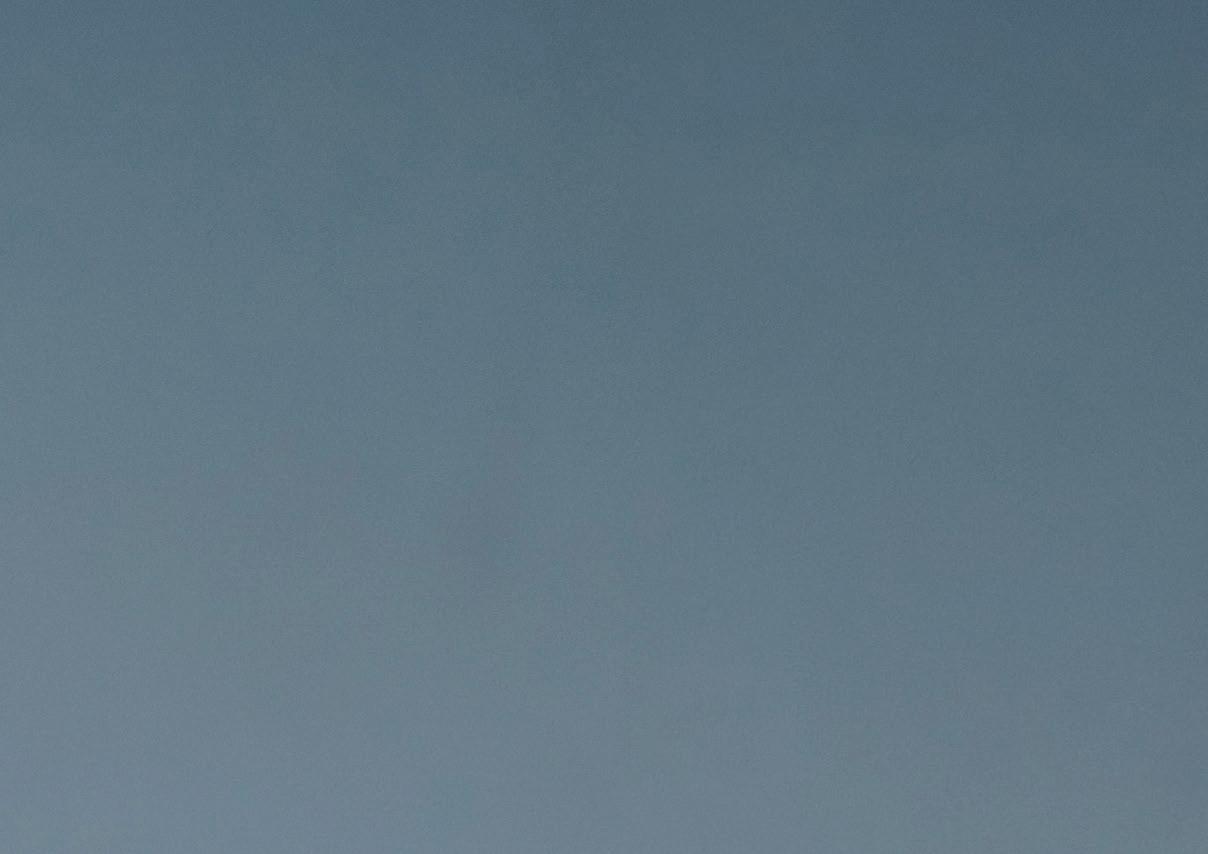
TRENDSPOTTING: Real-time drama DQ . Fall 2023 31
For a writer, it’s really a challenge to keep the tension high all the time – but it’s a nice challenge. For the audience, it brings authenticity.
“ ”
Daan Gielis Writer, Storm Lara
24 is perhaps the most successful example of a real-time drama series
The story of Storm Lara unfolds in a radio DJ booth
MIA 20

else and we can get a bit of story from them. And then we can pick up from him being further down [the train],” he says. “I really wanted to introduce the train as well. I wanted everyone to know this train was six carriages and where the various characters were on the train.”
Meanwhile, for ITV drama Breathtaking, doctorturned-screenwriter Rachel Clarke adapted her own memoir about working on a hospital ward during the Covid-19 pandemic. Co-written with fellow former doctors Jed Mercurio (Line of Duty) and Prasanna Puwanarajah (Patrick Melrose), it focuses on a frontline hospital consultant who witnesses the crisis unfolding.
Clarke says the three-parter – produced by HTM Television and distributed by ITV Studios –emerged from her ambition to dramatise what it was like for medics during that period. “I was desperate to be able to show the public what it actually looked, sounded and felt like to be in that very frightening, very claustrophobic hospital environment where everyone and everything was steeped in Covid,” she says. “A TV drama was the perfect way to do that – bringing an immediacy that I don’t think a book can quite match.”
That immediacy is put front and centre by elements of real-time filmmaking. One example comes when a member of staff who has caught Covid at work needs to be intubated and connected to a ventilator. Clarke explains: “She is critically unwell, about to have a respiratory arrest, while we watch the ICU consultant actually steering the tube down her throat. It is shocking, invasive and something I have never seen on screen before – but it’s the reality of what patients faced, and it’s so important to show that and not flinch from it. You need nerves of steel to intubate a patient under the circumstances, and real-time elements help show how extraordinarily difficult and tense these medical procedures are in reality.”

Clarke admits it’s almost impossible for the public to imagine what it was really like inside a hospital during lockdown. Using real-time sequences, “we wanted to throw those doors wide and try to convey the almost surreal intensity of being a member of staff fighting a pandemic while swathed in PPE, knowing the very air you breathed might be the death of you. The best possible way to do so was through real-time elements in which the achingly painful reality of a medical crisis unfolds for real, sometimes grindingly, tortuously, unbearably –unlike the truncated versions you so often see in medical dramas. The viewers see what staff see, feel it as we felt it – and it’s incredibly powerful.”
Two current NHS hospital doctors with extensive Covid experience were on set throughout production to guide every detail of the medical procedures and ensure they looked exactly as they should. Clarke says: “We want doctors watching this series to feel as though they are watching their day unfolding at work. That’s the degree of accuracy that mattered.”
While Breathtaking takes place during the height of Covid, Dutch/Flemish drama Storm Lara was born as a result of the pandemic. Writer Daan Gielis was asked if she could create a series for Belgian streamer Streamz, but the pandemic meant it needed to be set in a contained environment with just a pair of actors – who couldn’t be in the same room.
She then came up with the idea of setting a story in a radio DJ booth, where Lara (Ella Leyers) hosts a late-night phone-in. When Suzy calls, threatening to commit suicide on live radio, Lara sees an opportunity to win back her primetime slot – but finds there is more than her job at stake in a story about love, jealousy, adultery and lies. A Private View and Belga Productions produce the four-parter, with Keshet International distributing.
“I really like the power of real-time storytelling,” says Gielis, who is a fan of real-time films such as Phone Booth and Locke. “It gives such an interesting pace and urgency. When I’m writing, I like to limit myself, which is maybe weird but then you get really creative. This is set in real time over two hours, and that pressure cooker can bring so much drama, intensity and authenticity. When these stories are also in a confined space, it creates an intimate atmosphere and that allows a deeper exploration of Lara.”
Like Kay, Gielis notes the lack of dramatic irony available in real-time dramas and the shared experience the viewer has with the main character. “The viewer doesn’t have the luxury of knowing more about the story or what’s going to happen than the main character. In that sense, it’s a different kind of writing and makes it exciting and unpredictable. There’s not a lot of time to relax,” she says. “Normally when I’m writing I like to include some scenes where the character can digest what’s happened or there’s a bit of humour. Of course, this also has humour but it’s different from what I normally write.”
Despite the challenges of the self-imposed constraints writers must tackle when writing real-time drama, Kay believes the boundaries of time and space are actually liberating for writers, forcing them to come up with creative ways to keep the story moving forward without breaking the rules of the format.
“Real time is really just an accelerant for how people make decisions as characters,” he says. “I was always really interested, for example, in the Blitz, how people’s lives accelerated – if you met someone in wartime and you fell in love, you might get married straightaway because who knows if there’s going to be a tomorrow. You have to take things on, and suddenly time amplifies instincts. That’s the cool thing about Hijack. It forces those characters to speak up and reveal themselves, because everything’s urgent.”
Clarke surmises that “in an age of influencers, spin and misinformation, viewers crave authenticity and the sense that what they are watching is genuine, accurately representing reality.”
“Real-time sequences are a striking way to achieve that,” she continues. “They are immersive and all-consuming, forcing the viewer to experience the sequence as though they are a protagonist, as opposed to an observer.”
Gieles adds: “For a writer, it’s really a challenge to keep the tension high all the time – but it’s a nice challenge. For the audience, it brings authenticity. You share this experience of witnessing the events unfolding together with the characters. If it’s done well, it’s really powerful.” DQ
TRENDSPOTTING: Real-time drama DQ . Fall 2023 33
< “ ”
Real-time sequences are immersive and allconsuming, forcing the viewer to experience the sequence as though they are a protagonist, as opposed to an observer.
Rachel Clarke Writer, Breathtaking
Joanne Froggatt plays a frontline hospital consultant in Breathtaking
NEED FOR SEED
In

When an environmental journalist goes missing in northern Norway, two detectives are forced to team up in an e ort to find him. As they delve deeper into the mystery, German detective Max Grosz, uncle to the missing man, and his Norwegian counterpart Thea Koren find themselves pitted against agrichemical conglomerates as corporate conspiracies and political machinations put the future of the global food supply chain at risk.
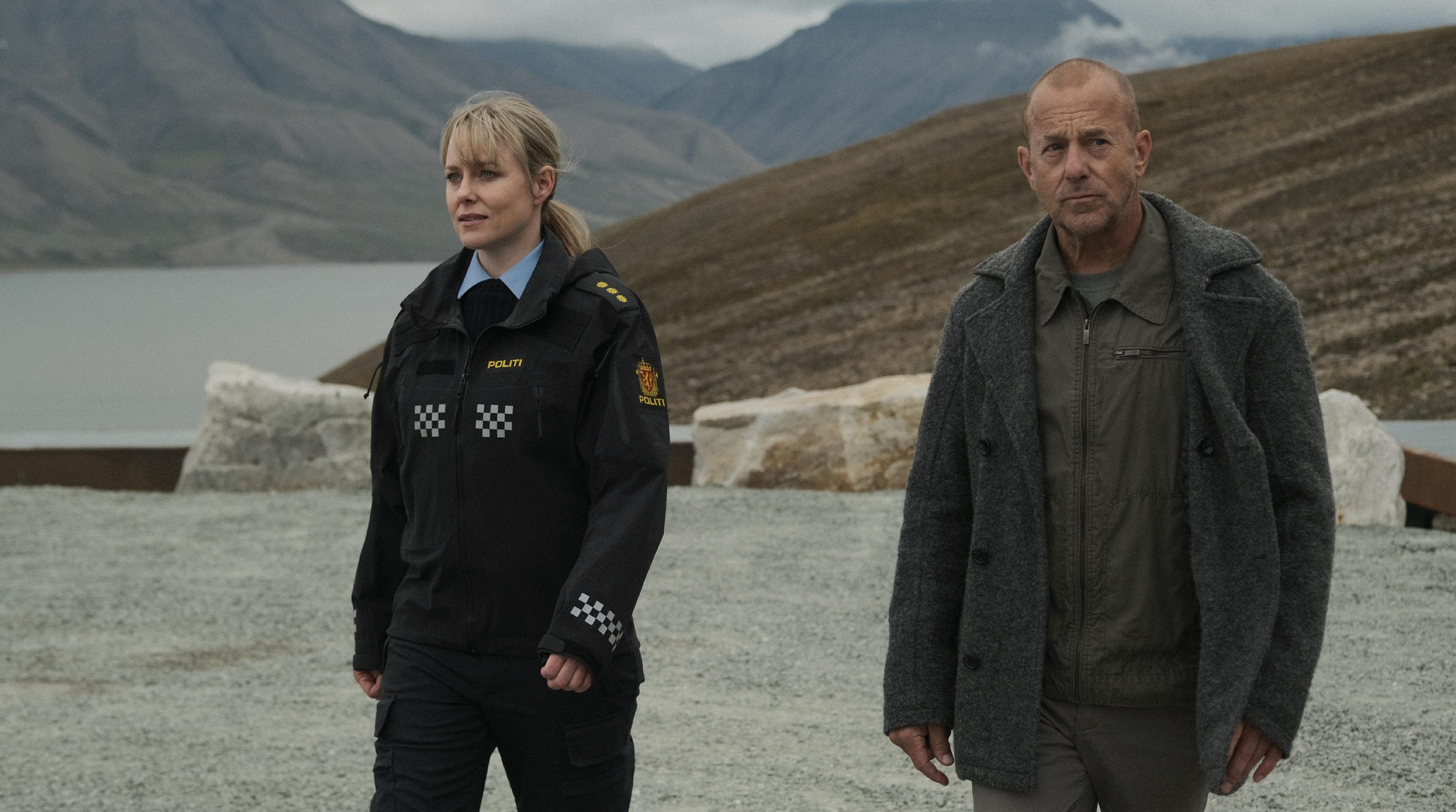
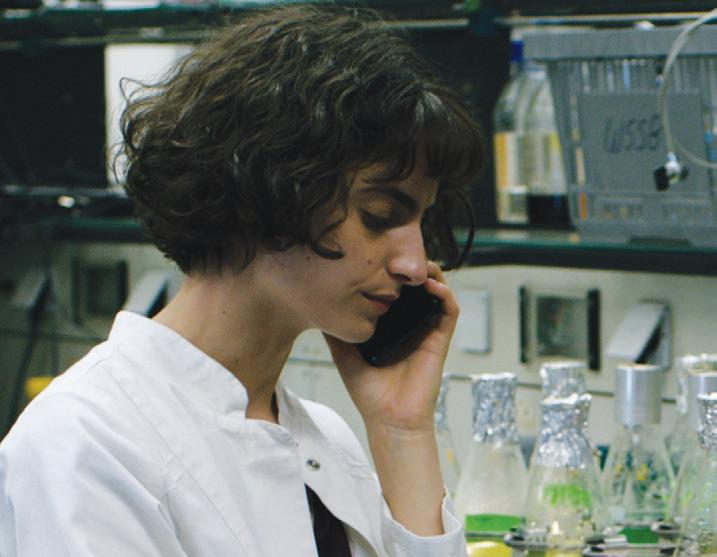
This is The Seed , a six-hour eco-thriller that begins at the doors of one of the most intriguing settings ever used in a television drama – the Svalbard Global Seed Vault. It’s here that Max
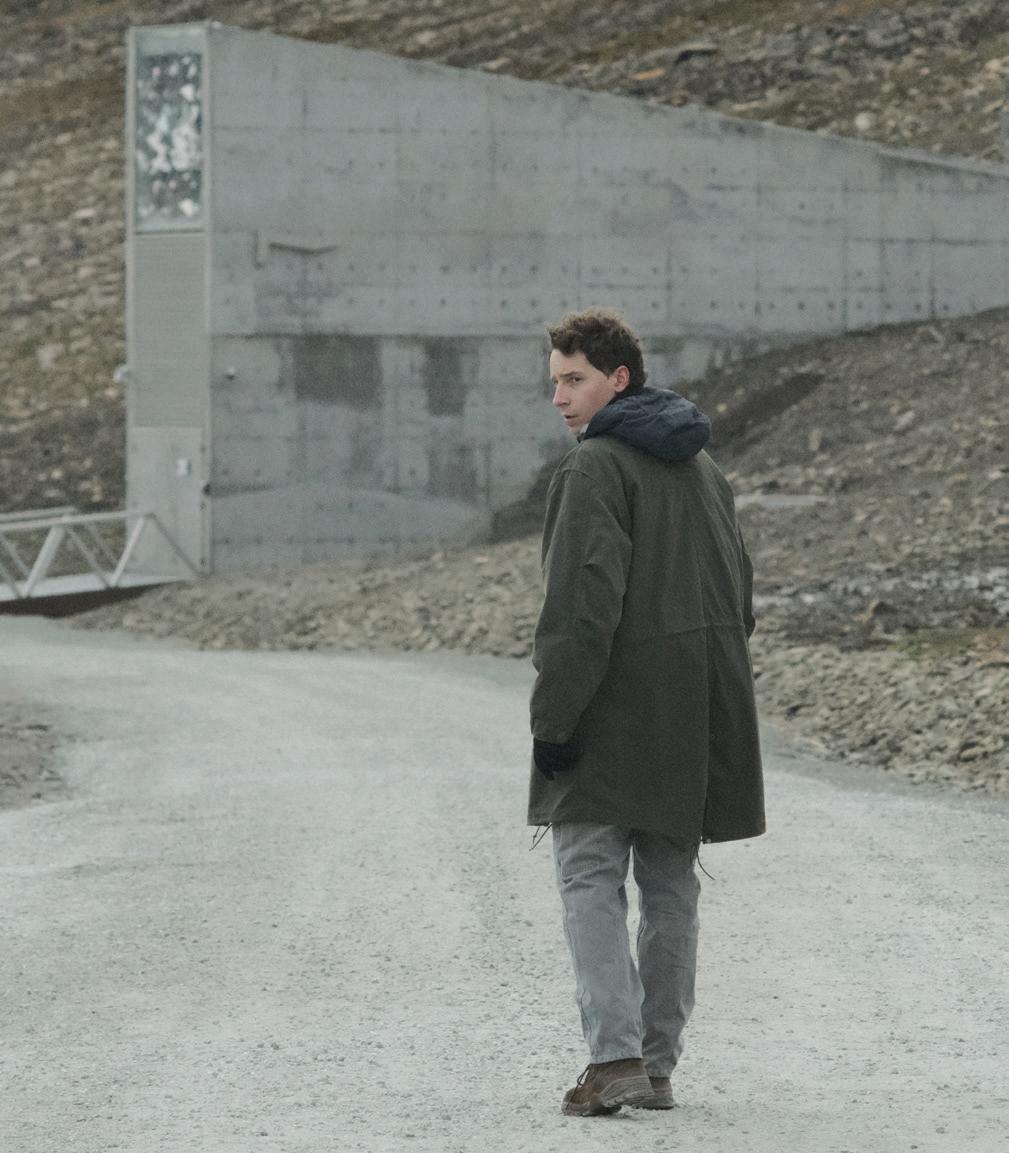

and Thea begin their investigation, one that reaches from the desolate Arctic landscapes of Spitsbergen to the heart of the European Parliament in Brussels.
It’s a topical and timely subject for a series, not least in the wake of the Russian invasion of Ukraine that has exacerbated the existing food crisis around the world.
“It’s so real, it’s so present,” says Heino Ferch ( Downfall ), who plays Max. “It’s exactly the subject we are exploring [in The Seed ] – who is responsible and how do people get the food?”
“It felt really meaningful, getting to do a story like this in the chaotic situation we have on this planet – and have been having for a long
Norwegian-German coproduction The Seed, the future of food production falls into the hands of two detectives who inadvertently land in the middle of a global conspiracy. DQ meets the cast and creative team to find out more.
Ingrid Bolsø Berdal and Heino Ferch play the detectives at the centre of The Seed
The Svalbard Global Seed Vault is key to the story
time,” adds Ingrid Bolsø Berdal ( Westworld ), who stars as Thea. “It’s as if it’s just getting more and more focused and concentrated, always fighting for resources, and also what people are willing to do to make a profit.
“It’s mind-boggling to realise how the world is run in some areas, so it felt really meaningful to be a part of a show that really uncovers how business and politics sometimes go hand in hand.”
Contrasted with the political plot line is the relationship between Max and Thea, who start off at odds with each other but come to build a bond as their investigation takes them deeper into bureaucratic waters.
“They both come from a situation in their past that has been tough for them, and it felt really nice, in this corporate and brutal, cynical world, to also have a story where two people try to get to know each other more and, by the end, show their humanity,” Berdal says.
Representing the corporate machine is young, charismatic CEO Sven Benjamin, played by Seumas Sargent. “He’s a character who believes he’s really doing good. He wants to do good and he does do good. But he’s constantly faced with making decisions that push his own moral compass in a direction that may not necessarily be where he would want it to go from the heart,” the actor says. “His arc is really about discovering himself and how far he will go to do what’s necessary for business and necessary for what might be best for the planet.”
Produced by Odeon Fiction and Rein Film, the series partners director Alexander Dierbach with writers Christian Jeltsch and Axel Hellstenius. The German-Norwegian coproduction, due to air on broadcasters ARD Degeto and NRK in early 2024, began as an idea from Jeltsch, who had read about a break-in at a seed vault and then started researching the subject.
“The more you read about it, the more you understand that it concerns all of us,” says Odeon head of international coproductions Britta Meyermann. “Of course, if you hear about seeds and stuff like that, it’s not the sexiest pitch. But then Christian managed to create a story around it and found out about the seed vault in Svalbard.”
With so much at stake, Max and Thea might not seem best suited to work the case together – at least initially. “They’re two strangers, and at the beginning they hate each other because he thinks she’s a lousy cop and she thinks he’s rude,” Meyermann says. “But the more they talk and work together, the more they develop respect and like each other.”
Both characters also find something they share in their past that creates a common bond. “We find out that they both had some not-so-nice experiences and they’re both hurt in a way,” she continues. “They’re trying to hide this, of course, and be professional, and they become a wonderful team. Then being in Brussels, in this new world and growing
together, it’s really amazing to see. They work very well on screen together.”
The majority of filming took place in Prague, alongside shooting days in Munich and Svalbard, while just two days were spent in Brussels to secure establishing shots of the European Parliament. The exterior of the seed vault itself was shot on location in Svalbard, while the interior was built in Prague, based on how it looks in real life – a huge room with rows upon rows of boxes of seeds.

“Shooting in Svalbard was quite hard because we had 24 hours of daylight,” recalls Dierbach. “After shooting in Munich and Prague to find the constant sun, it was not so easy. And when we had started to scout Svalbard in February, it was -20°C and a lot of snow. In August, when we came back, it was 16°C and no snow. It was incredible to see that.”
It wasn’t just the weather that kept Dierbach, who directs all six episodes, on his toes. Each location brought a different style and rhythm to the series, from the high-pressured company lifestyle in Brussels to the calm and stillness of nature beside the sea in Svalbard.
“It was the hardest thing I’ve done in my life,” he continues. “I’ve done several TV shows and also 85 days of constant shooting, but most of the time I’m in one country. Working in different languages was also really hard.
“I have a Norwegian actor and we spoke in English but the lines between two Norwegian characters are in Norwegian, so I had one guy translating to me. You want to get a special connection to the characters and so I had to ask [the actors], ‘How does it feel to you?’ because I didn’t know. But it was a really special experience.”
Meyermann describes the series, which is distributed by Leonine Studios, as a “super emotional story” that begins with a man looking
for his nephew – a search that leads him into an international scandal. “That’s what gets you invested. This is what hooks you,” she says. “It’s suspenseful and thrilling.”
The wider subject matter also struck a chord with the exec – and she hopes it will hit home with viewers as well. The series has already won two awards following its world premiere at this year’s Monte-Carlo Television Festival, where it won the prizes for Best Creation, recognising creative achievement, and the Betaseries audience award.
“This is one of the most important subjects we have right now, especially with situations like climate change and wars,” she notes. “You just realise how vulnerable we all are and how dependent we become on these few corporations. It’s a little scary. Feeding the world, it’s one of the most important subjects at the moment.
“We are not telling this in a detective way. It’s an ecological, political, suspenseful thriller. What the creators managed to do very well is give an insight into how politics and economics are intertwined. Not everything is done for the greater good.”
IN FOCUS: The Seed DQ . Fall 2023 35 DQ
”
“
It was the hardest thing I’ve done in my life. I’ve done several TV shows and also 85 days of constant shooting, but most of the time I’m in one country. Working in di erent languages was also really hard.
Alexander Dierbach Director
Most of the filming for The Seed took place in Prague
Davos 1917 head writer and creative producer Adrian Illien transports
DQ to the Swiss Alps, the setting for this wartime drama about a young nurse who is drawn into a world of espionage and competing powers.
Nursing
As the First World War ravages Europe, a small spa town in Switzerland becomes the focal point for a relentless battle between secret agents representing the interests of competing global powers.
It’s here that young nurse Johanna Gabathuler (played by Sisi’s Dominique Devenport) unexpectedly gets caught between two fronts –and finds herself playing a deadly game with the German Secret Service in order to get back the daughter who was taken from her.
That’s the setup for Davos 1917, a six-part period drama created by Adrien Illien. Filmed in Davos, at the picturesque sanatorium-turned-hotel Schatzalp, as well as in Germany and Italy, the Swiss-German-language show is produced by Contrast Film, Letterbox Filmproduktion and Amalia Film for Swiss broadcaster SRF and Germany’s ARD Degeto. Global Screen is handling international sales.
Here, head writer and creative producer Illien tells DQ about the real-life inspiration for the series, the demands of writing a spy story and why Davos 1917 is like a winter western.
What are the origins of the project?
I’ve always been fascinated by lost places. While exchanging ideas with Bettina Alber, head of series at Swiss broadcaster SRF, we stumbled across the local mountain sanatoriums of the Belle Époque. Together with Michael Sauter and Thomas Hess, who co-created the story, as well as Julia Penner and our producers from Contrast Film and Letterbox, we then developed the story around a war nurse.
How would you describe the protagonist, Johanna, when we meet her?
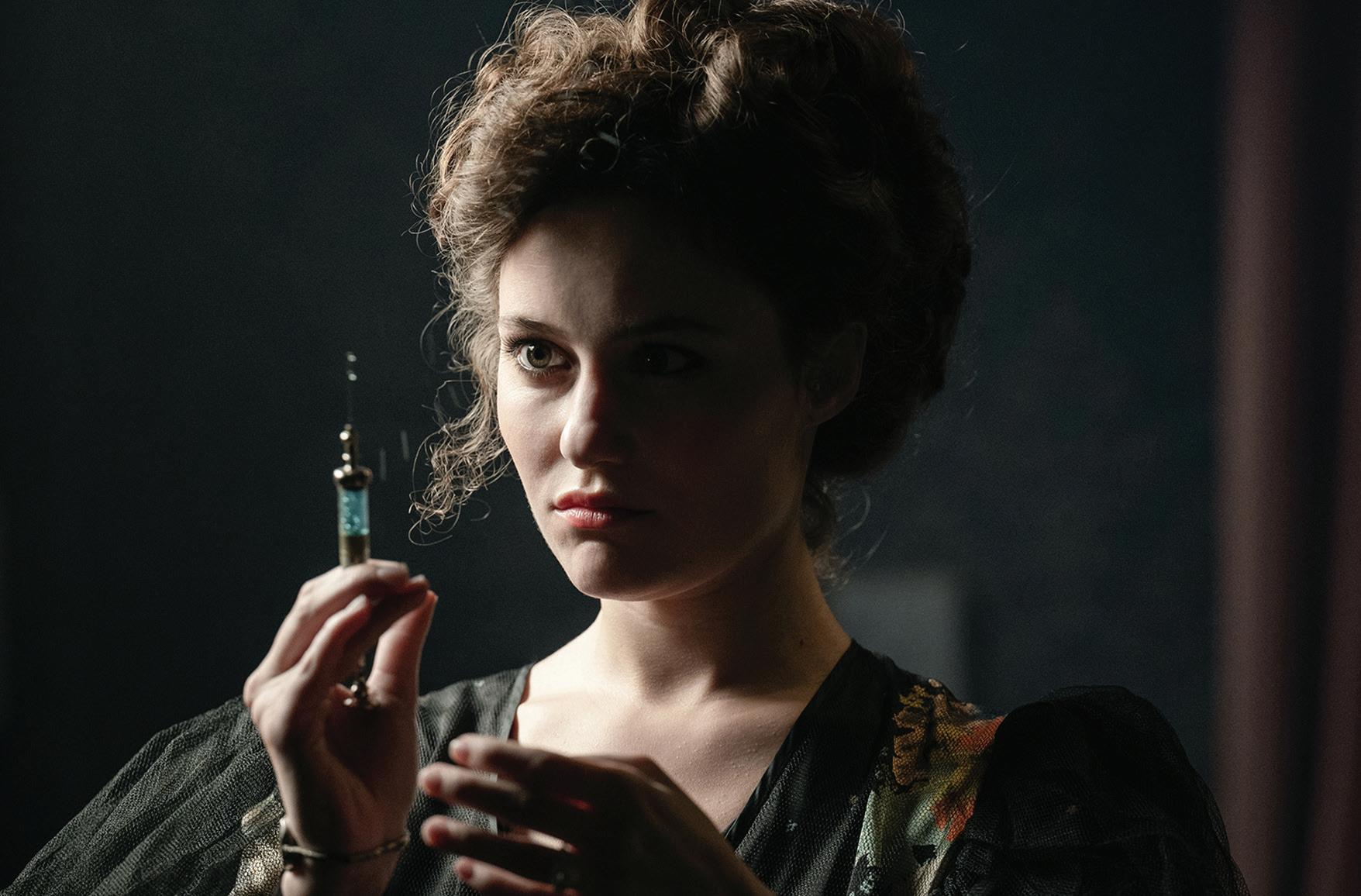
After serving as a nurse for the Red Cross on the Western Front, Johanna is no longer the person
she used to be. During the war, she was valued; she was even allowed to do surgery. She fell in love with a German soldier and got pregnant. But when he dies in the war, Johanna returns to Switzerland.
Her father, the well-respected director of the local sanatorium, is outraged. No one must find out that his daughter is a “war whore.” The family’s fate depends on Johanna’s good reputation: she is to marry a politician whose money can save the debt-ridden sanatorium. Johanna’s baby is immediately taken away from her upon birth and it is made clear to her that she will never see her daughter again.
Broken, Johanna submits to her father’s will. She is still an exceptionally gifted nurse, and everything looks fine from the outside; but on the inside, Johanna feels like she’s suffocating. In despair, she considers taking her own life – and is saved by an eccentric patient, Countess Ilse von Hausner, a German master spy.
WRITERS ROOM: Adrian Illien DQ . Fall 2023 36
Dominique Devenport as Johanna
a secret
The balancing act between Johanna’s bourgeois existence and her secret life as a spy threatens to tear her apart, and she finds herself between the fronts again. Does she have any chance of survival? And can she fulfill her dream of starting a new life with her daughter?
How was the series inspired by real events?
Johanna and her spy mentor are fictional characters but they are both inspired by real, courageous and ambivalent women from this era. We were strongly influenced by their reports and diaries, as well as intelligence reports from the time. The countess is based on a fascinating female German spy, Mata Hari’s agent handler – I find her to be more fascinating than even Mata Hari herself. But also some events in the history of Davos
and the spy cases themselves are based on historic realities. In 1917, Switzerland wasn’t as neutral as it seemed, and the famous Swiss watches were useful to a lot of people for a lot of things.
How would you describe the writing process?












Four years ago, together with the producers from Contrast Film, we writers started with a bible and a pilot script, which I then re-wrote in eight days after the first feedback from SRF and the Torino Series Lab. Thomas Hess, Julia Penner, Michael Sauter and I each wrote our episodes, and I did the headwriting before handing in the scripts to the producers and the coproducers. When the directors, Jan-Eric Mack and Anca Miruna Lăzărescu got on board, the other writers had already moved on to other projects. I then
“Our directors really captured the magic of the Swiss Alps – sometimes, you will almost feel like you’re watching a western set in winter.
Adrian Illien
worked with them to get the script ready for production. This process of vision-sharing was very rewarding for all of us.
How involved were you through production? Were there any difficult moments on set?
As head writer and creative producer, I was quite involved in the production process. My background in producing and commissioning proved to be very valuable. I really appreciated the close collaboration with our three great directors, JanEric Mack, Anca Miruna Lăzărescu and Christian Theede, as well as with the fabulous cast. Not to forget the meetings with our passionate production designer, Benedikt Herforth, and his team, who truly worked magic on our locations.
These close collaborations through production made it a lot easier when problems arose on set – such as wintry scenes without any actual snow, Covid cases and budgetary limitations. Thankfully, we
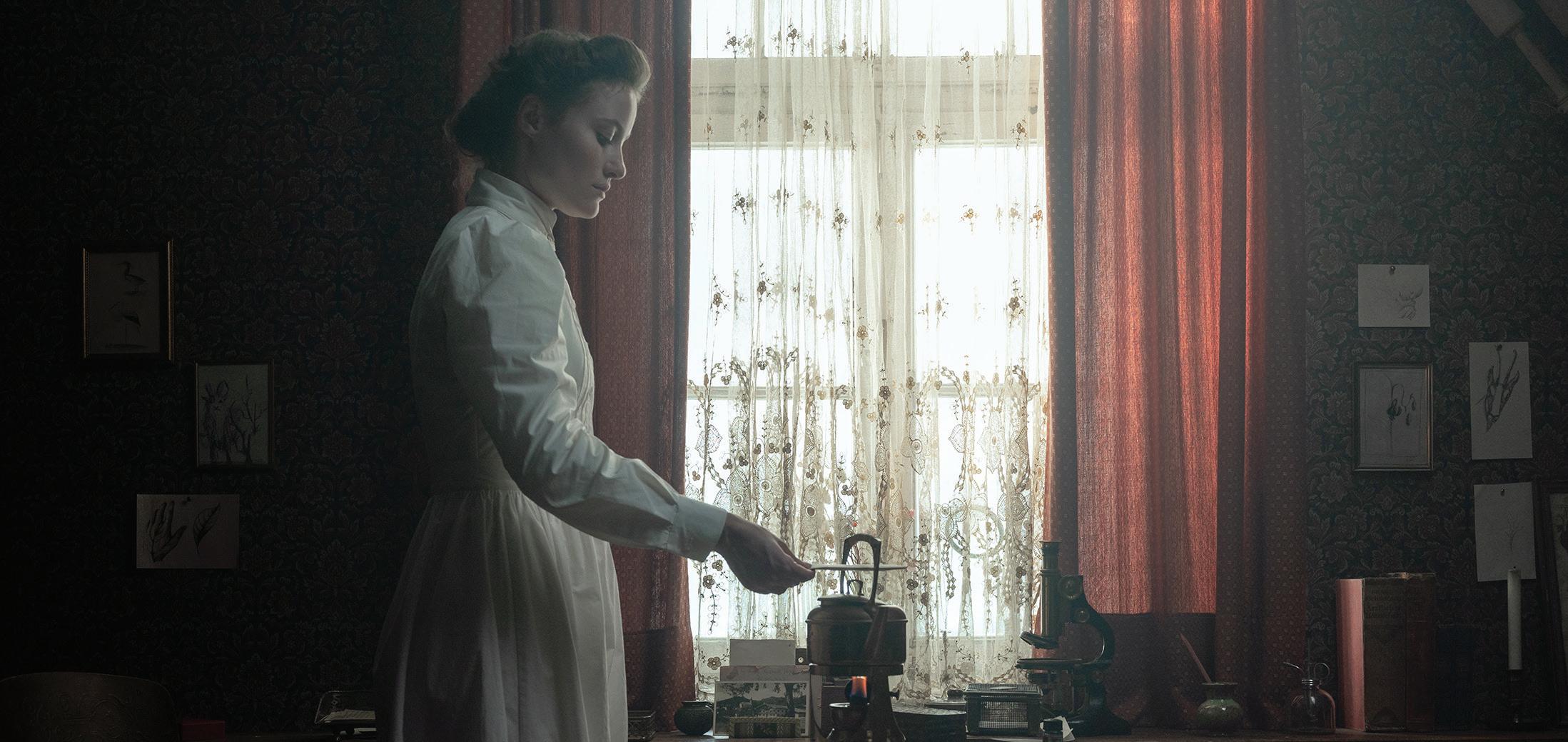
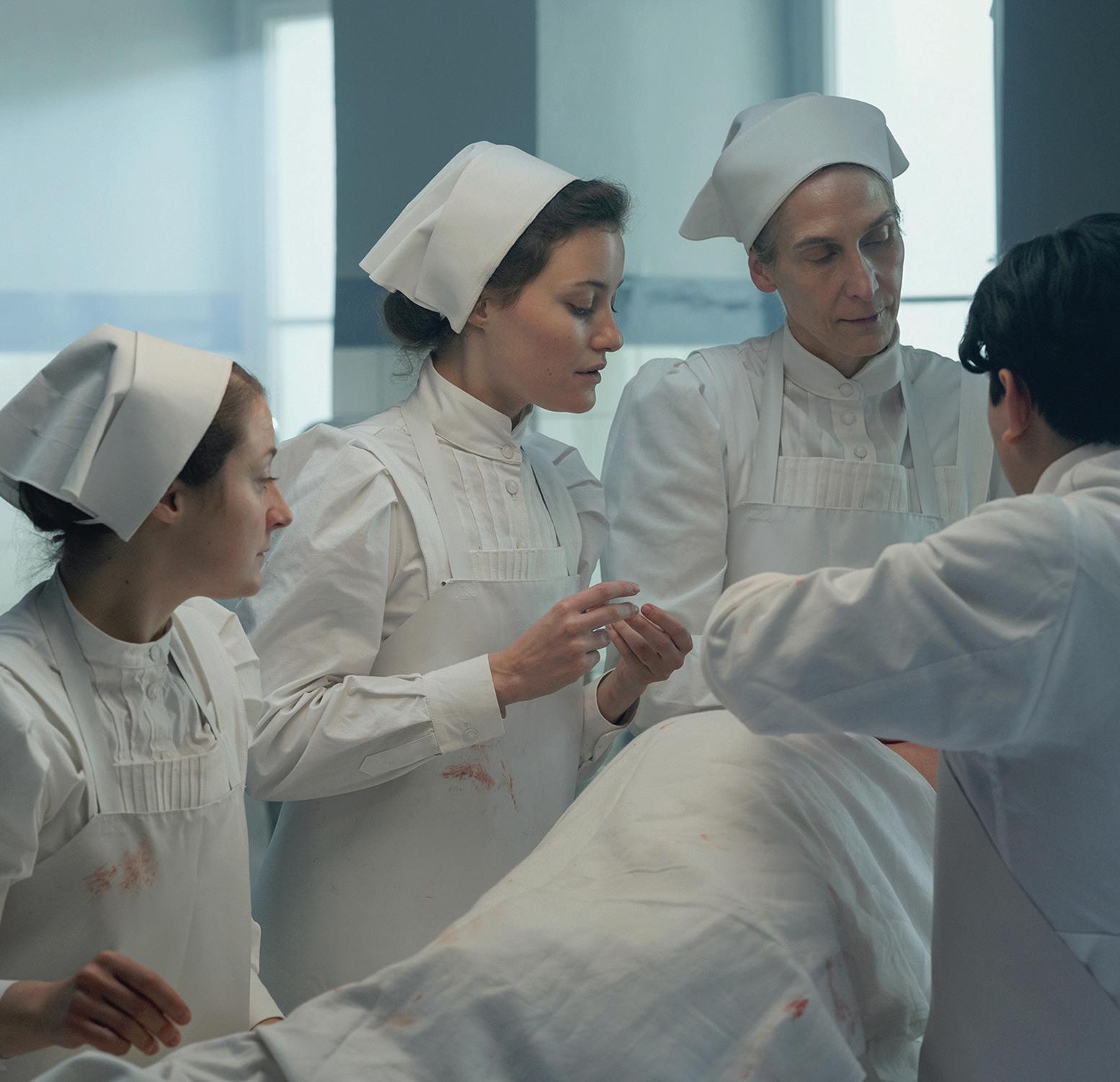
had Marco Mehlitz, our wonderful executive producer, and his awesome production crew on board, who – together with our producers – were there day and night to make the impossible possible.
Why might the series appeal to international viewers?
We have a rich and original, yet very universal, story to offer. A story that resonates with the present. The audience gets complex and engaging protagonists and ambiguous antagonists, and I’m convinced that people all over the world will be seduced by our wonderful cast. Furthermore, as a spy drama should be, Davos 1917 is both thrilling and emotional, offering a great love story and many twists.
The scenery is also breathtaking and Davos itself is a unique and internationally beloved setting. Our directors really captured the magic of the Swiss Alps – sometimes, you will almost feel like you’re watching a western set in winter.

WRITERS ROOM: Adrian Illien DQ . Fall 2023 37
DQ
German spy, Mata Hari’s
our episodes, and I did the head-
When on already moved
Adrian Illien
TRUST ISSUES
Stars Yehuda Levi and Yael Elkana, co-creator Daniel Amsel and director Ofir Lobel reveal how they’re ratcheting up the tension in Israeli espionage thriller Trust No One, in which a top intelligence agent is framed as the source of a devastating security leak.
It’s a bold claim to call a series “one of the bravest shows ever” made in Israel, the country that has given the world hard-hitting dramas like Hatufim (Prisoners of War), Fauda, Your Honor and Tehran, to name a few. But that’s exactly how co-creator Daniel Amsel describes forthcoming espionage series Trust No One
“We show an archetype of the strong security agent, but he makes mistakes. We show Israel and we show [security agency] Shin Bet as a place that is in charge of national security, and yet they make mistakes through their choices. That’s not what you usually show,” Amsel says.
“You usually show Israel as strong and brave, and everything is calculated and everything is really sharp. We see the fragile side of machoism, and how it is being shown in the world. That’s where I think we’re brave. We make mistakes like everyone else.”
Produced by Shenhar Productions for Keshet 12 and distributed by Keshet International, the nine-part psychological thriller debuts in Israel in November following its world premiere earlier this year at the Monte-Carlo TV Festival.
It stars Yehuda Levi as Itamar, the youngest ever director of Shin Bet, Israel’s most powerful intelligence agency. He’s a man whose career has been forged by recruiting and handling wellconnected informants – but he faces the worst crisis of his life when he is framed as the source of a cyber-security attack that exposes the identities of Shin Bet’s most important agents, not least Shuruk (Luna Mansour), the daughter of a Hamas leader who was recruited by Itamar to spy on her father when she was 17 years old.
Isolated, alone and no longer able to trust those around him, Itamar is forced to use the kinds of morally questionable tools he has always opposed in an attempt to clear his name and save his agents’ lives, exposing a world of deepfake videos and spyware and where any smartphone, CCTV camera and digital device can be hacked.
During an incredibly tense opening that sees Itamar struggle to come to terms with what is happening around him, his first task is to extract Shuruk, a young mother, from under the nose of her father as her identity is exposed.


IN FOCUS: Trust No One DQ . Fall 2023 38
“It stays that way all the way through the series,” says Amsel (The Gordin Cell), who cocreated the drama with Ron Leshem (Euphoria) and Amit Cohen (False Flag). “We meant for the audience to sit on the edge of their seat all the way through. That’s why it’s called a thriller, because it thrills.”
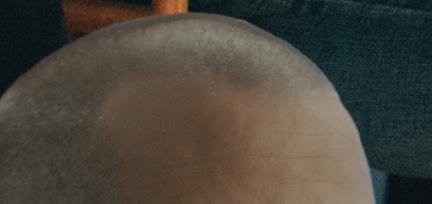

Director Ofir Lobel picks up: “We wanted to create this gripping feeling from the get-go and tell a story where everything leads to an investigation. We’re carrying our smartphones and digital devices everywhere now, and we don’t even know it’s a tracking device. It can see you, it can listen to you. We just move along with it. We wanted to portray this feeling with the show. We wanted the audience to feel like everything is dangerous.”

Levi’s recent roles have included one half of a married couple struggling to conceive in surrogacy drama A Body That Works, while in Fire Dance his character becomes subject to the affections of a troubled young woman who lives in the same ultra-Orthodox community as him.

The actor can’t compare Itamar to any of his previous roles. “Each character is a world on his own,” he says. “But in the beginning it was really frightening to portray this character. I needed to embody a very powerful figure, so I had to feel that heavy feeling. He’s someone with the perspective that nothing really gets too much. This guy needed to be very controlled. So I needed to find those places inside of me, to put a spotlight on them and to emphasise them to mould something like that feeling.”
Amsel describes the task of playing Itamar as “a great challenge,” and he worked with Levi to build the character. “Yehuda is a very emotional
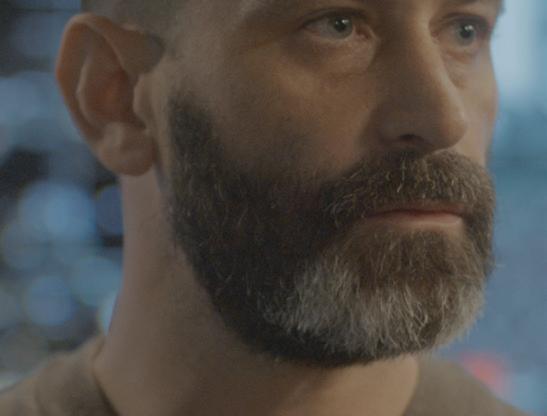
person, he works from his emotions,” the writer says. “He’s like an arrow, he can’t be broken. Yet his character was very fragile. As the first episode escalates, you can see the fractures in Itamar’s confidence, and he allows himself to break down only when he’s alone. But when he’s the leader, he’s 100%. That was a challenge for Yehuda to find out how to play both sides of Itamar.”
Levi adds: “This is a character who needs to put on a steel mask, so no one can see that things are fracturing inside. That’s what I think makes him interesting. I’m sure even the real [head of Shin Bet] is a real human being who has his fractures but knows how to put on this uniform, this costume, that people will not penetrate and see the real him, because he will not allow himself to be that way. He can only go and do it behind closed doors, maybe with his wife. And that’s it. It’s about bringing those layers. It was a challenge.”
Starring alongside Levi is Yael Elkana, who plays Yali, a gifted computer programmer who is brought into the agency to help find the source of the leak, despite a difficult relationship with Itamar.
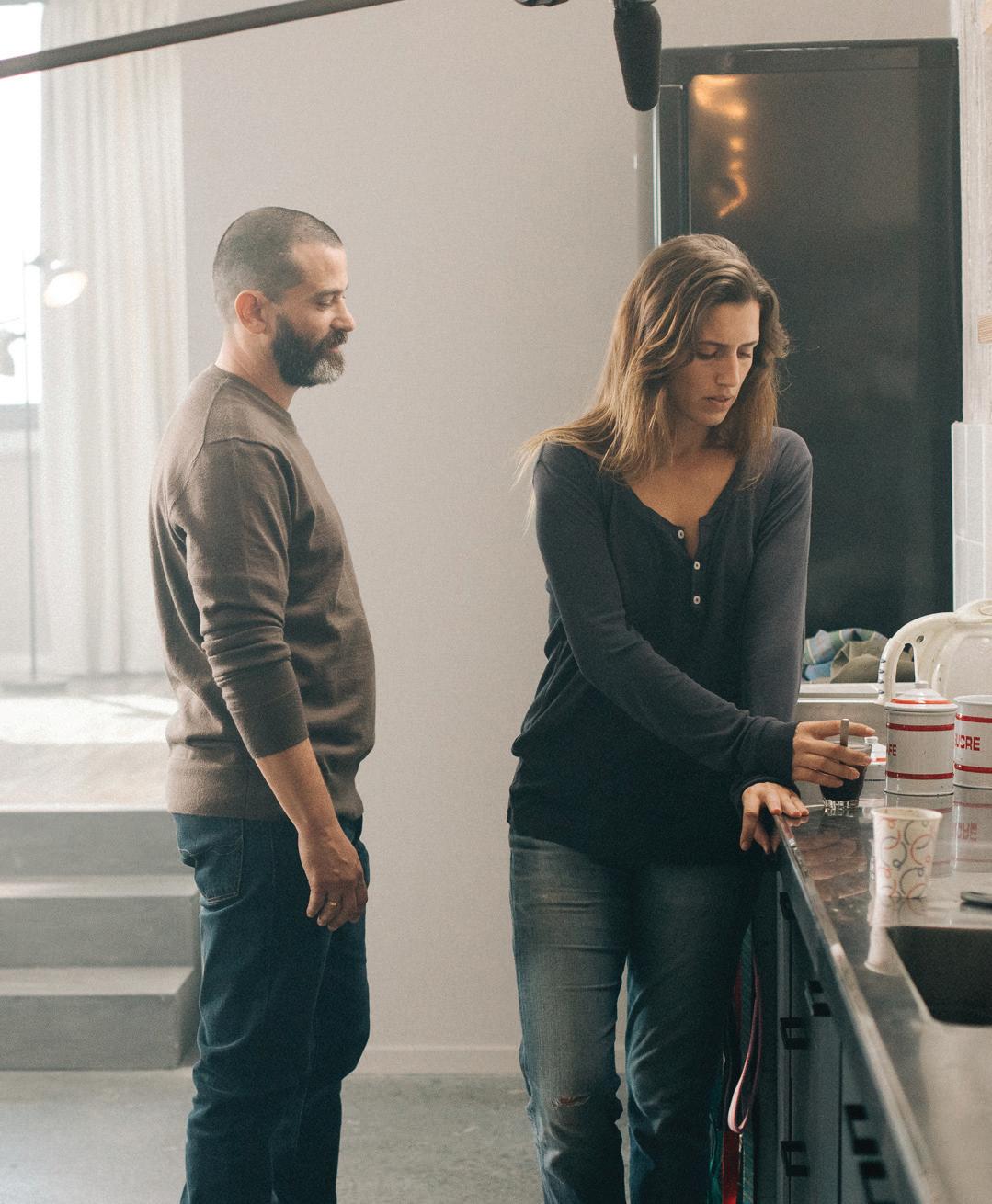
“Yali is kind of different for me,” says Elkana, best known for series such as The Chef and The Commune. “She’s a lone wolf. She trusts no one. Itamar tracked her when she was very young; he saw potential in her and took her under his wing. But she really had no one. When she went to prison for selling a programme she invented, she believed Itamar would come to save her, but no one comes. So she thinks now even more that she only has herself. Her struggle in this story is to trust someone again and to find belonging with someone, with her family, with her home, with her friends. This is the most interesting thing about Yali.”
Itamar’s strained relationship with Yali goes on to highlight the double-edged sword the security boss has had to wield through his career – and how it might come back to haunt him.
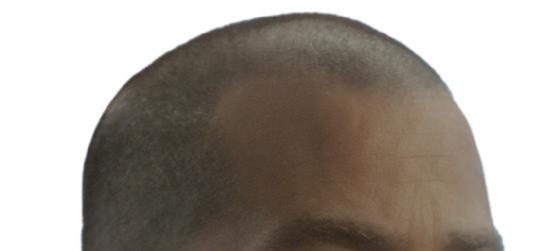
“Itamar needs to lie in order to extract truth. It’s part of the job, so there’s always this dissonance,” Levi says. “He has to lie to his agents in order to protect his loved ones, but then he has this guilt that he needs to take care of his informants, so then he has to maybe lie to the agency just to keep everything balanced. That will keep things moving on.”
Amsel adds: “Without spoilers, karma is a bitch.”







IN FOCUS: Trust No One DQ . Fall 2023 39
“
”
We wanted to create a gripping feeling from the get-go and tell a story where everything leads to an investigation.
Ofir Lobel Director
Yehuda Levi and Yael Elkana lead the Trust No One cast
Ofir Lobel keeps an eye on a monitor during filming
Levi plays Itamar, the youngest ever director of Israeli intelligence agency Shin Bet
In the third part of the DQ100 2023/24, DQ picks out a range of shows to tune in for and the actors, directors and writers making them, as well as some of the trends and trailblazers worth catching up with.




LUSI
RECENTLY STARRED
IN NETFLIX THRILLER
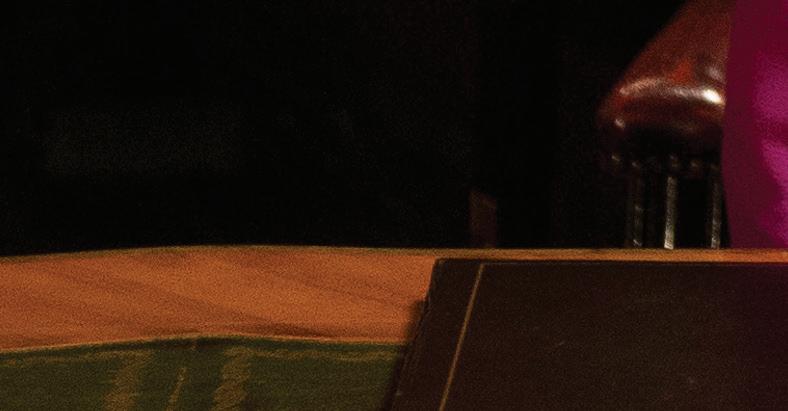


, and has also appeared in Crazy Rich Asians, Apple TV spy drama Argylle, DC series Pennyworth and Sky duo Gangs of London and Stan Lee’s Lucky Man (pictured). In thriller Red Eye, an upcoming ITVX drama produced by Bad Wolf, she plays DC Hana Li, a no-nonsense London officer who is charged with accompanying a man accused of murder on an all-night flight from London to Beijing – and finds herself in an escalating conspiracy. Speaking about her role, Lusi describes Red Eye as a “turning point in British Asian representation.”

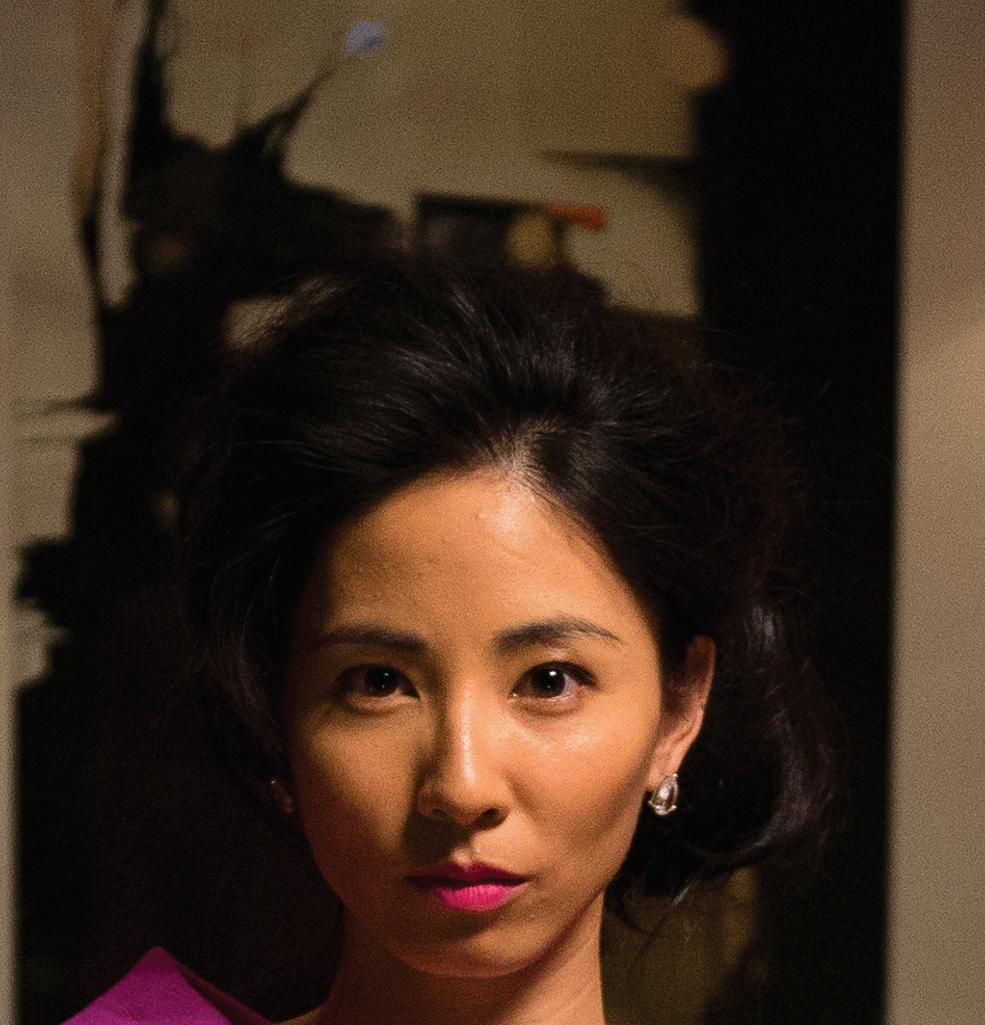

TIMOTHY SPALL

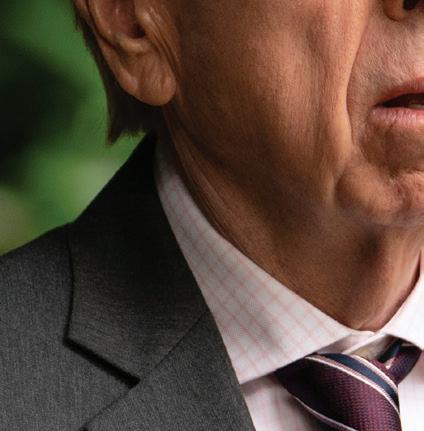
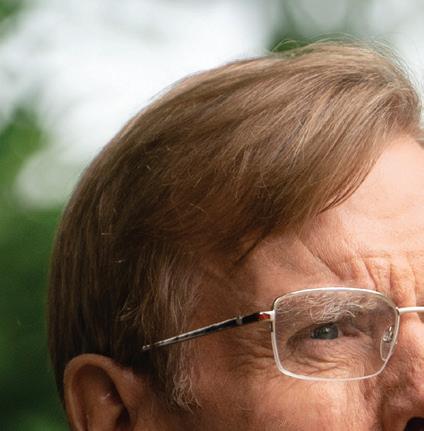


YEAR
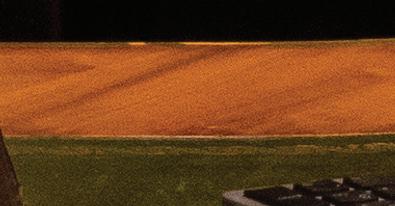
One






























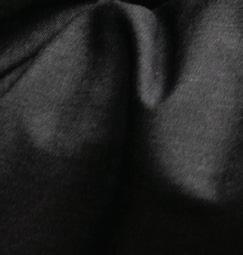

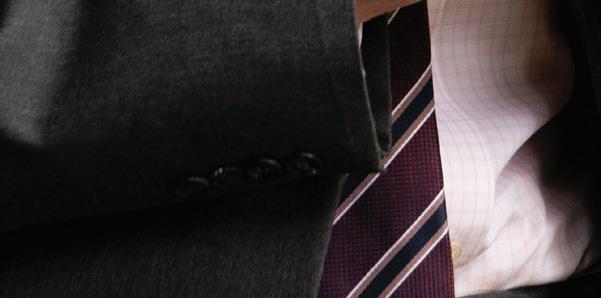















































WHEN THE BRITISH TELEVISION PRIZES ARE HANDED OUT NEXT , don’t be surprised to see Timothy Spall’s name among the runners and riders. The actor – known for such films as Mr Turner and Secrets & Lies – is widely recognised to have turned in a career-best performance in true crime drama The Sixth Commandment, which debuted on BBC One earlier this year. He played Peter Farquhar, a much-loved teacher who is befriended by Ben Field, who would eventually be convicted of Peter’s murder. Episode one of the fourparter is painted as a gentle portrait of Peter’s life and his loneliness, and Spall gives an acting masterclass.

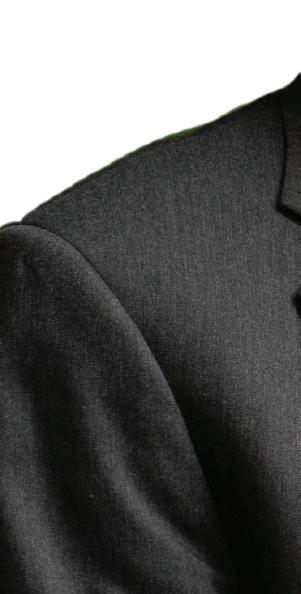
AWARD-WINNING FRENCH
FILMMAKER GIANNOLI RETURNED TO THE VENICE FILM FESTIVAL THIS YEAR – only this time he brought his first ever television series to the floating city. Produced by Curiosa Films for Canal+, D’argent et de sang (Of Money & Blood) is based on the real life “scam of the century” that took place in France in 2009 when a gang of small-time crooks partnered with an upperclass trader to carry off an epic swindle involving carbon tax fraud. The director’s previous film credits include Superstar, Marguerite and Lost Illusions


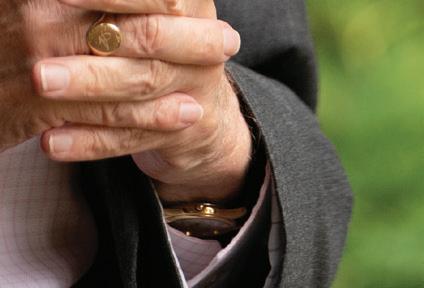

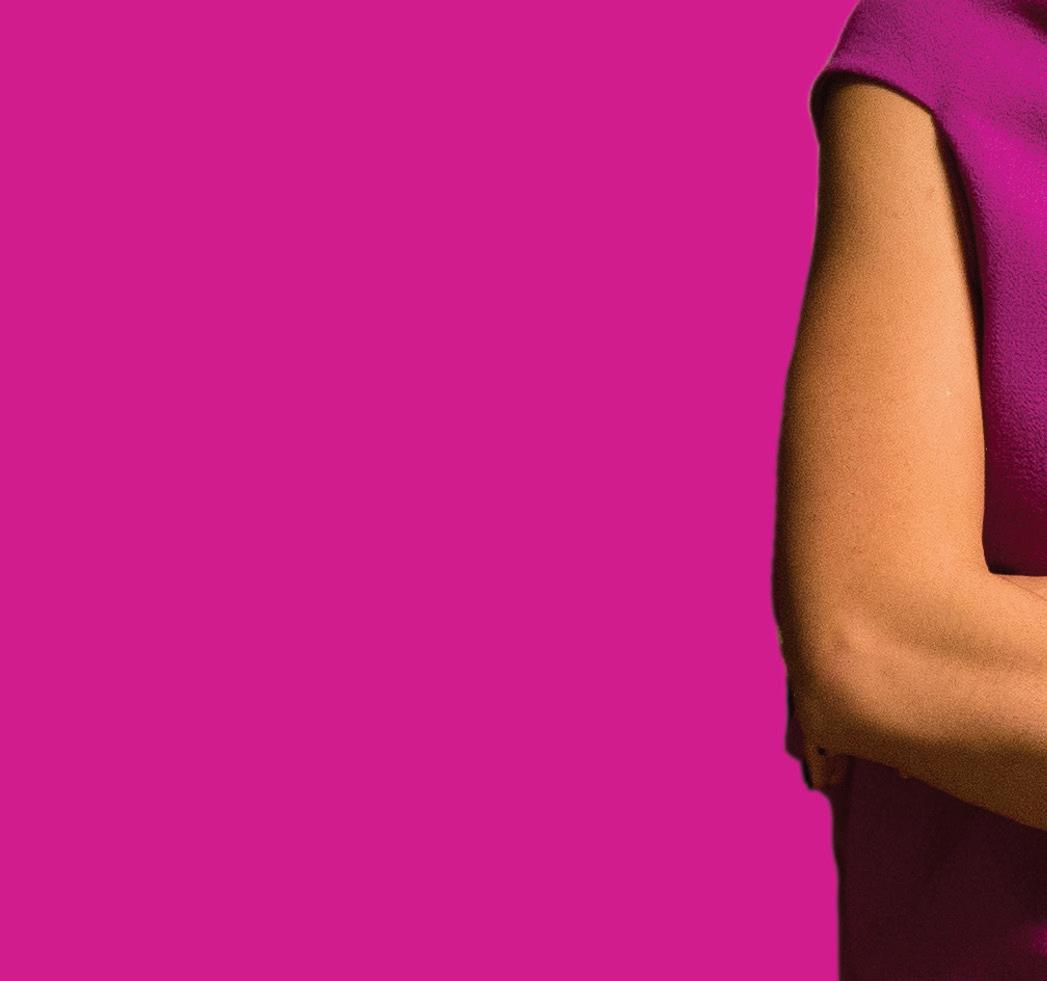
ONES TO WATCH: DQ100 40 100
DQ . Fall 2023
XAVIER GIANNOLI
RAANAN CASPI


ISRAELI PSYCHOLOGICAL DRAMA NIGHT
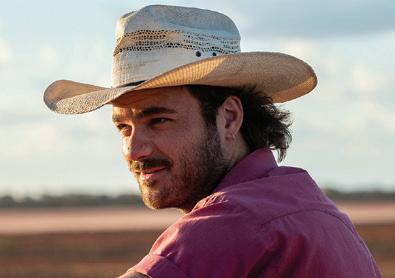

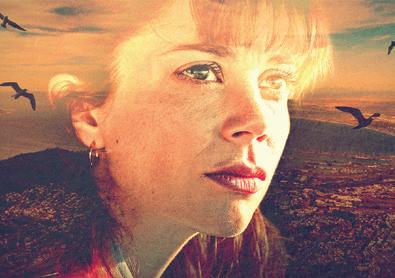

THERAPY IS THE FIRST SERIES FROM CREATOR AND WRITER CASPI. The 10-parter, from producer Yes TV and distributor Yes Studios (Fauda), stars Yousef Sweid (Munich Games) as Louie, an Arab-Israeli psychologist struggling to raise his two children after the suicide of his Jewish-Israeli wife. To strike a better work-life balance and support his kids during the day as they rebuild their lives, he decides to shift his practice to receive patients at night.
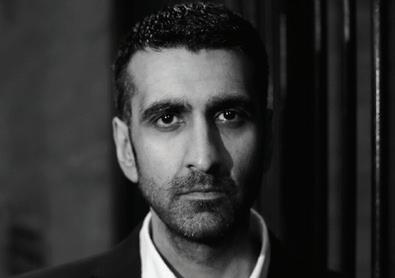
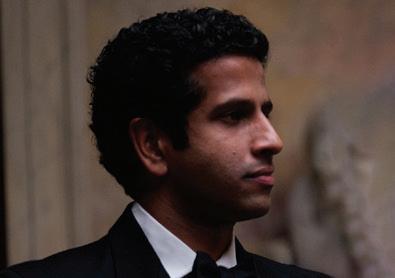
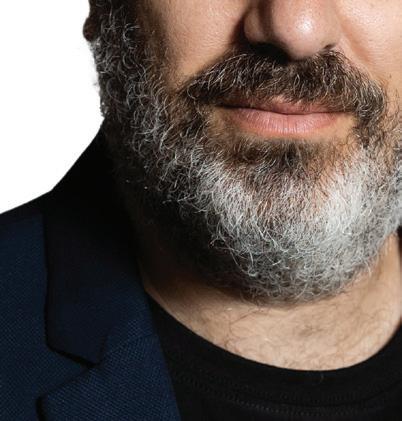
Unorthodox actor Shira Haas will play one of his patients – a computer genius who rarely leaves her home, preferring to lead her life in the virtual world. Meanwhile, flashback scenes will show Louie as an unseen observer of his patients’ problems.

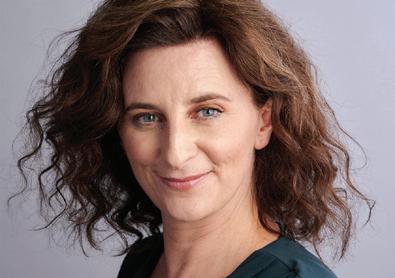


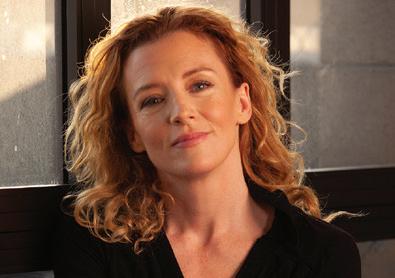
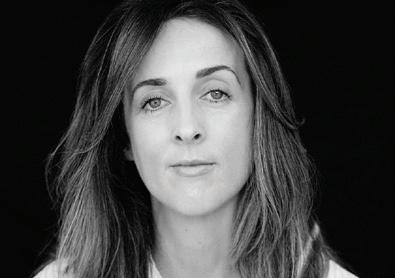

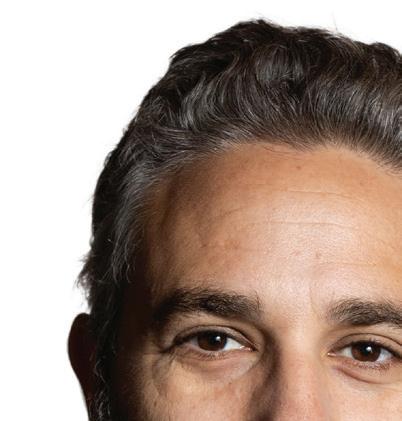
SECOND DEATH
THIS MOVISTAR PLUS+ ORIGINAL SERIES, filmed in Cantabria, stars Georgina Amorós and Karra Elejalde. The thriller follows police assistant Sandra (Amorós), daughter of recently retired police officer Tello (Elejalde), who finds herself involved in a criminal investigation in a quiet Pasiego town when she discovers the body of a woman who was supposedly buried years earlier. But with a complicated personal life, she tries to stay away from the ensuing investigation as Castro, her partner and the father of her son, is about to be released from prison, while she also cares for Tello, who is in the early stages of dementia. However, an unexpected turn will pull Sandra into a case that threatens to have implications for her and her hometown.

HEAD TO DRAMAQUARTERLY.COM FOR THE REST OF PART THREE OF THE DQ100 2023/24, FEATURING...

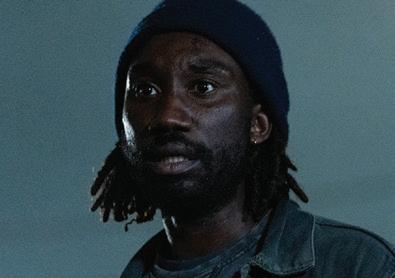


ACTORS
Felicity Ward, Delfina Chaves, Charlotte Hope and Nathan Stewart-Jarrett
DIRECTORS
Minkie Spiro, Juho Kuosmanen, Dylan River and Rachel Carey
WRITERS


Prasanna Puwanarajah, Suzie Miller, Nicole Amarteifio and AA Dhand
SERIES
Hotel Cocaine, Mr Loverman, The Red King and The Famous Five
TRENDS & TRAILBLAZERS

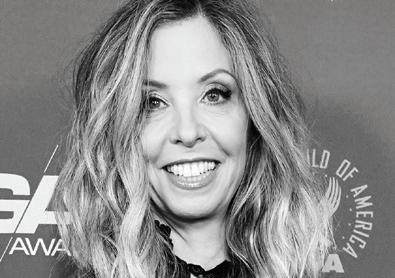
Real-time drama, Streamers getting soapy, Ella Lily Hyland and Lockerbie dramas
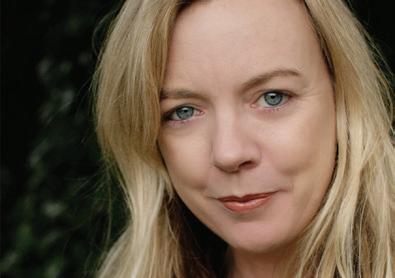


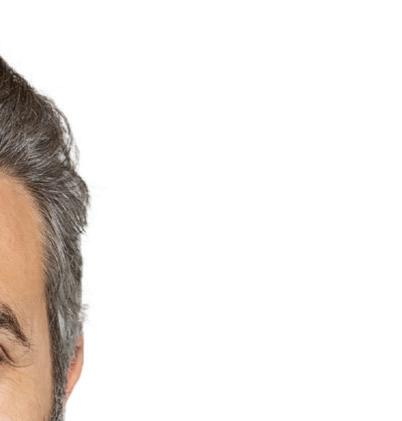
ONES TO WATCH: DQ100 DQ . Fall 2023 41
Emmy-nominated director Peter Hoar recalls making the standout third episode of HBO’s postapocalyptic drama The Last of Us and discusses working with stars Nick Offerman and Murray Bartlett on some of its most poignant scenes.
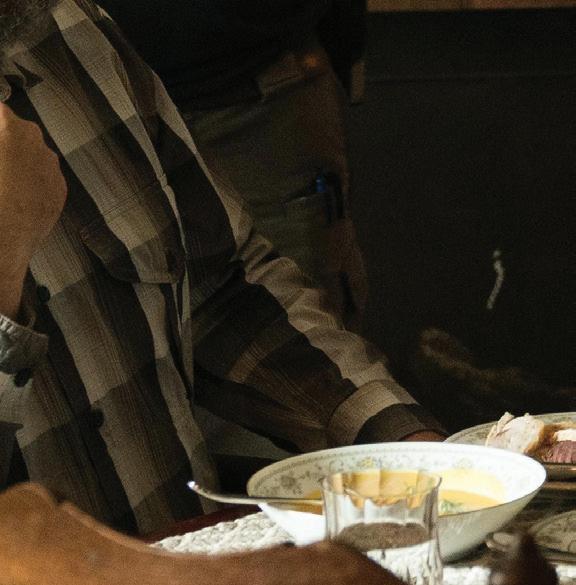


DQ . Fall 2023





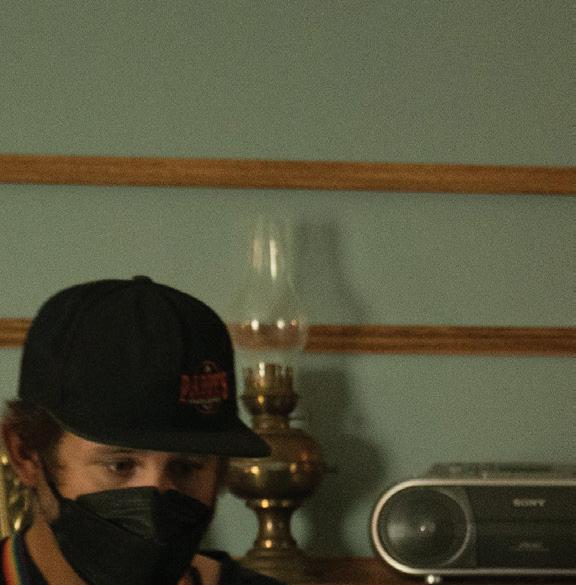
SCENE STEALERS





The Last of Us

As an episodic television director, Peter Hoar’s credits include Spooks , Doctor Who , Daredevil and The Umbrella Academy . “I’ve always turned up and done whatever was required,” he says.
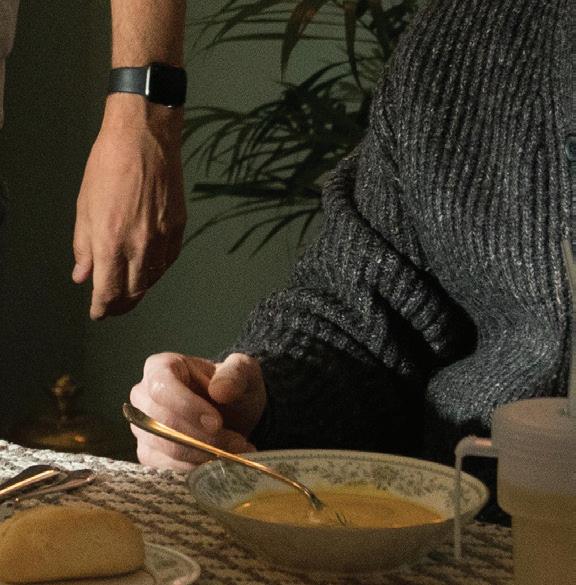


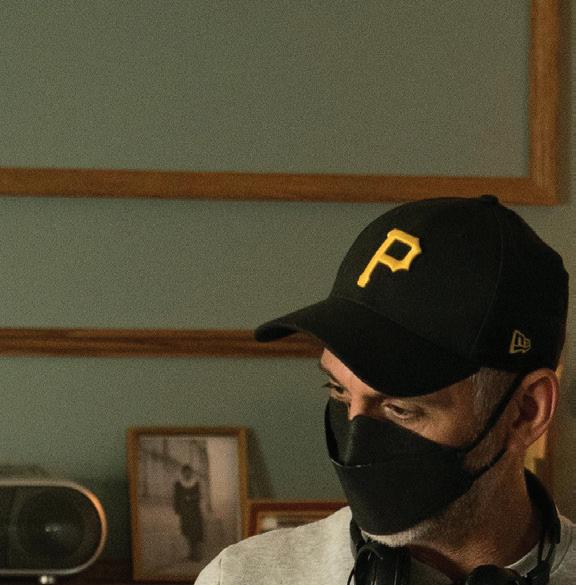
It’s only recently he has signed on to helm every episode of a miniseries – and to considerable acclaim. Hoar directed all five parts of Russell T Davies drama It’s A Sin, about a group of friends living in the shadow of the AIDS crisis in 1980s London, before reuniting with the writer for this year’s three-parter Nolly, a biopic of iconic Crossroads actor Noele Gordon.


But he went back to his episodic roots after being offered the chance to team up with showrunner Craig Mazin ( Chernobyl ) on The Last of Us , an adaptation of the video game of the same name commissioned by US premium cable network HBO.

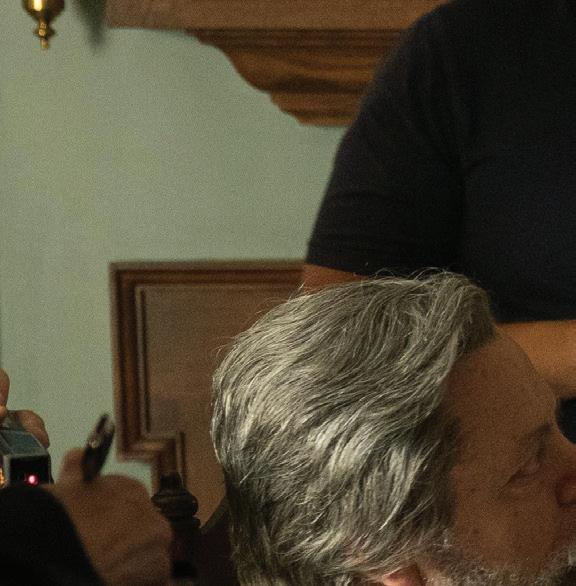

“I got an email from a friend of mine who was working on the show asking if I would be interested. I immediately said yes, but I didn’t know then which episode it was for, just that I would take a meeting because they were looking for directors,” Hoar tells DQ. “Then I had a meeting with Craig – and Craig’s a genius.”
Co-created by Mazin and Neil Druckman, creator of the video game, The Last of Us is set 20 years after civilisation has been destroyed by a deadly fungal virus, creating a race of ‘infected’ that continue to stalk the earth. It’s here that Joel (Pedro Pascal), a hardened survivor, is hired to smuggle 14-year-old Ellie (Bella Ramsay) out of an oppressive quarantine zone, leading them on a brutal, heartbreaking journey across the US as they rely on each other for survival.


The episode Hoar would come on to direct was the series’ third, Long, Long Time , which was originally set to be episode four until the first two instalments of the show were merged to create a feature-length opener. Notably, Joel and Ellie hardly feature, though their appearances bookend the episode.
Instead, it’s just one example of how the writers sought to expand the world of the video game on television by building up the backstory of two characters little seen in the source material. As far as the overall narrative of the series is concerned, the episode sees Joel and Ellie track down survivalist Bill (Nick Offerman) in Lincoln, Massachusetts, where
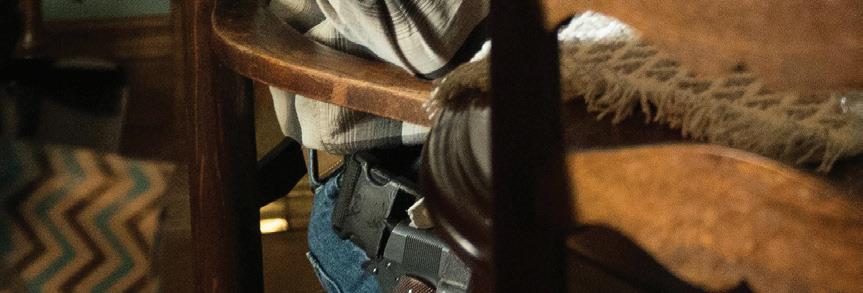
Scene Stealers
NE
Peter Hoar (centre) directs Nick Offerman (left) and Murray Bartlett in The Last of Us episode Long, Long Time
they are ultimately able to secure a car and provisions to continue their journey west.
But almost the entire episode serves as a standalone flashback that follows Bill over the previous 20 years, chronicling how he survives in the town and comes to fall in love with his partner Frank (Murray Bartlett). Both Offerman and Bartlett have been nominated for Emmys for their tender and poignant portrayal of the couple, while Hoar himself has been nominated for his direction.

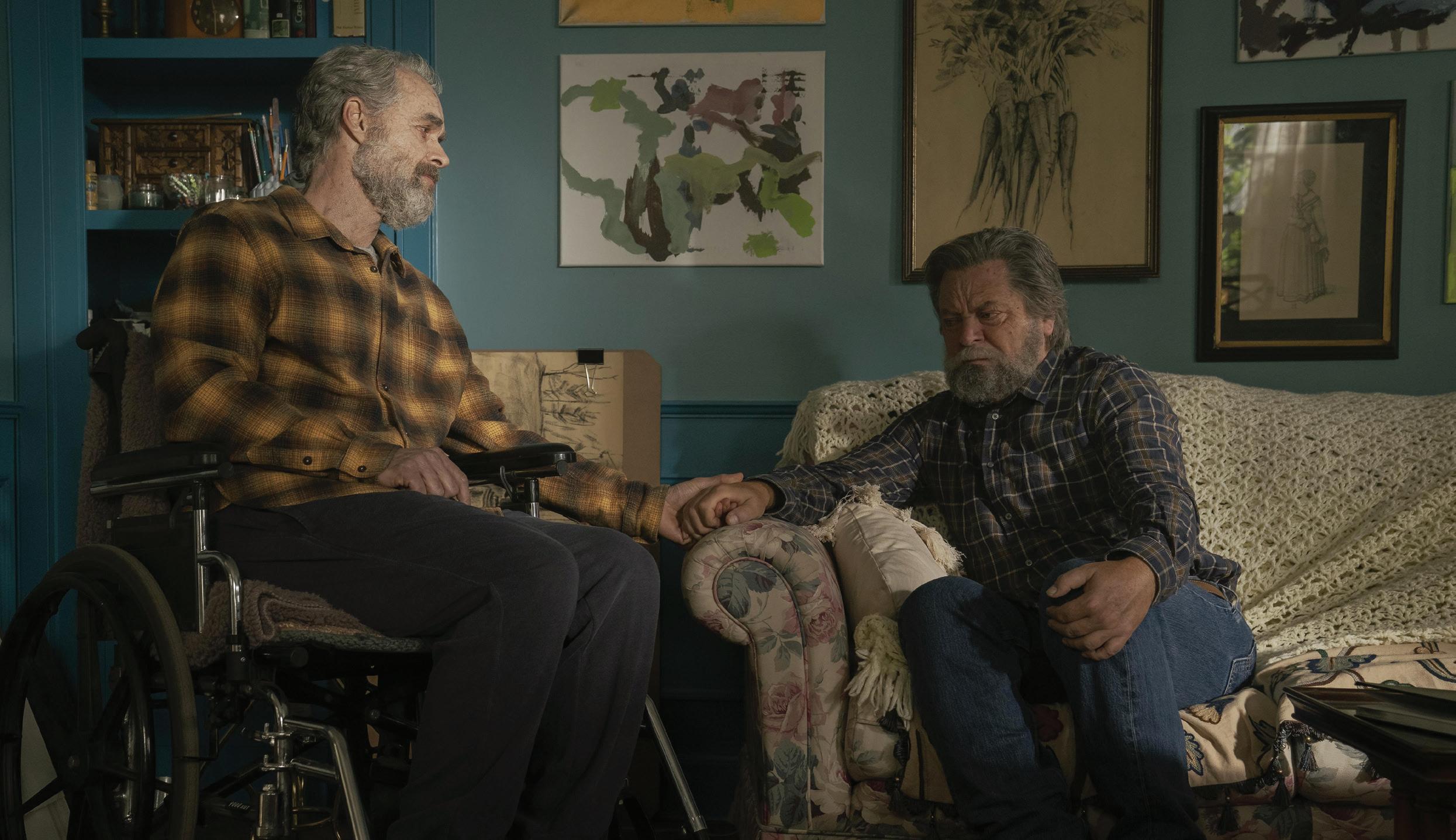
After the preceding two episodes, which introduce the world of The Last of Us and the array of infected that prowl the torched landscape, Long, Long Time almost feels like it is part of a different show.
“It was a bit of a gamble,” Hoar admits of the episode’s story-within-a-story structure. “I had lots of people sending memes about the game, where really the only purpose of Bill’s town is to get a car, because that changes the gameplay. As soon as you get your truck, you can go further, you can do all these raids and whatever else. So really it’s get to Bill’s town, get a car, leave. But in the show, it’s 90 minutes of the biggest tearjerker television has ever known.”
The director believes part of the reason it worked so well – and received acclaim from both critics and viewers – is that it didn’t do what everyone expected.
“It was beautifully written, crafted, emotionally driven and character-driven. It wasn’t a gimmick,” he says. “It wasn’t like we
were trying to do something on purpose to grab people’s attention – and those characters are in the game. We didn’t add, as the Christian right want you to believe, those gay characters. They were already there. They just had no story. We didn’t know how they had got together or anything, so that’s what we did. We just told that story bigger. I think it was quite beautiful.”
By the time Hoar came on to direct Long, Long Time , Bartlett – who starred in season one of fellow HBO hit The White Lotus – had already been cast as Frank. But the director was part of the conversation that led the production team to find their Bill in the form of Offerman, who is best known as deadpan government official Ron Swanson in comedy Parks & Recreation
“Most of Bill is Nick Offerman to a T, but we
didn’t know about the rest,” Hoar says.
“You can only offer these things and hope that if he says yes that he is going to be up for it and capable of it. I know he had the same feeling because when he read the script, he said to his wife, ‘I don’t know if I can do it for two reasons.’ He didn’t know if he was actually free and whether he had it in him. And his wife [fellow actor Megan Mullally] said straight away, ‘You’re going.’”
Working with such storied actors, Hoar says they didn’t have to dive too far beneath the surface to find the emotion of the episode – but sometimes the feelings were too readily on show. On one occasion, when Bill and Frank are having dinner together towards the end of the episode, Bartlett would start crying as the characters contemplated ending their lives together.
The director reveals he spoke to Bartlett about dialling back the emotion. “I told him, ‘Maybe this is the time for no tears. Maybe what Bill has done for him does mean a lot, but it doesn’t make him emotional because it’s such a complicit thing. They understand, it’s that final thing, their final act together.’ He understood the note and he was like, ‘OK, yeah. Alright, I’ll try.’ And then the scene plays out, he cries again. I went to him and he said, ‘I couldn’t do it. I just look at that man’s face telling me that I’m his purpose and I just can’t hold it in. It’s just the way it’s written and it’s beautiful.’”
During other days on set, Hoar would be working just with Offerman, filming scenes
END CREDITS: Scene Stealers DQ . Fall 2023 43
”
“
Most days when we were filming, I would look at Craig Mazin and he’d be crying. I knew this was good because if he’s written it and thought about this for months and months and it’s still making him cry, it must be good.
>
Peter Hoar
The ‘story within a story’ structure focuses on the relationship between Frank (Bartlett) and Bill (Offerman), unfolding over a number of years












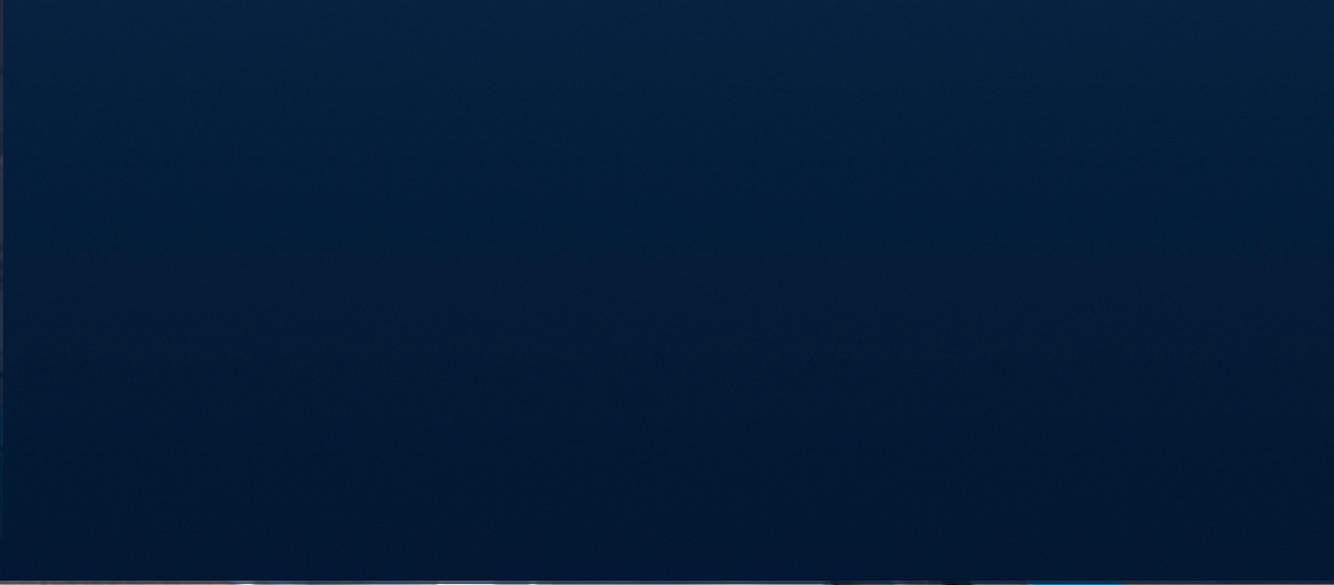




































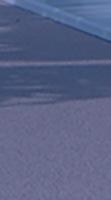





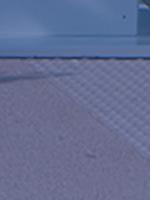

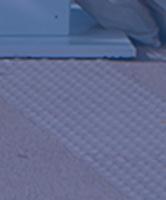









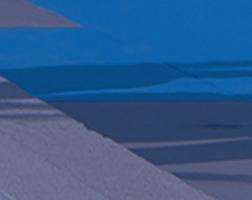





where Bill was “breaking into this, smashing that up or building this.” The pair would also chat and tell jokes between takes.
“It does induce a lot of vulnerability, filmmaking, from such people as directors and actors and everybody, really, because you’re just trying things out and you don’t know if you’ve done the right thing,” Hoar says. “That’s partly because there isn’t a right thing. There’s just something that feels good. I do think one of those great things about this episode is that we all just loved that script. We needed to do the best we could, and that kept us together.”

Because so much of the episode doesn’t feature in the video game, there weren’t many visual cues for Hoar to recreate during the course of Long, Long Time – and one example that did mimic the game didn’t make the cut.






“I basically did a shot through the truck window from Ellie’s side, looking past Ellie towards Joel, and then [cinematographer] Eben Bolter came to me with the screen grab,” the director recalls. “We didn’t do any of this intentionally, but it was an exact copy of a still from the game. We thought we would do loads, but actually it didn’t happen that way. But we did that by accident and it didn’t make the cut.”


One of Hoar’s favourite moments from the episode is a scene where Frank reveals he has grown a strawberry patch after trading one of Bill’s guns for some seeds – leading them to burst into giggles at the taste of the fruit before Bill declares, “I was never afraid before you showed up,” as the sun sets in the background.
“That was good because obviously it had a huge impact, but it was good because we shot it in the magic hour,” Hoar remembers. “The light was fading and we had 15 minutes with two cameras to pick it up for real. That’s always a little bit tense because you have a window of opportunity and you’ve got to get it done in that time.
“The crew were just deathly silent, watching and listening to every moment and the little squeals of delight that the boys had when they ate the strawberry. It was really lovely. We didn’t have much time to rehearse, even with the generous schedule you get at HBO, so it was still quite a big day. Then everybody went home with a spring in their step.”
The episode’s final shot was also a pivotal moment for Hoar – and a complicated one. As Joel and Ellie prepare to leave Bill and Frank’s house after collecting Bill’s truck and stocking up on supplies, they drive away through the town. As they drive into the distance, the camera pulls back to reveal its perspective looking out through a window frame on the house.



“That simple shot of pulling back through a window frame sounds easy, other than the fact that the window frame isn’t real,” Hoar says. “It’s part of a wooden house that we built, but the window we were going to use didn’t look in the right direction. So I asked [production designer] John Paino to build me one somewhere else, and he said yes. He built this whole section of wall
up on sca olding at the right height with the right views between two houses so it looked like a perfect moment looking out.
“But then there was no road in the distance for Joel and Ellie to drive along. So that was all put in by VFX. We had to art-direct the inside of that wall and we had that on a slider on top of a scaffolding. It was loads of people working together to get that to look beautiful, to be the most perfect end to that whole scenario. That’s something I’m proud of and that isn’t scripted. We talked about window frames because it’s a big icon from the game and I loved the idea of trying to get it in. I’m quite proud of that last shot.”
from I of trying to get it in. I’m quite proud of that Long, on


































Shooting the episode two years ago on a purpose-built town set in Alberta, Canada, Hoar certainly didn’t expect people to still be talking about Long, Long Time so many months on from its premiere, let alone for it to be nominated for multiple Emmy awards. The gongs will be handed out in the strike-delayed ceremony in January.



nominated for multiple Emmy awards. The gongs will be handed in it and thought about this for months and months and it’s still making him cry,

“Most days when we were filming, I would look at Craig and he’d be crying,” Hoar adds. “I knew this was good because if he’s written it and thought about this for months and months and it’s still making him cry, it must be good. He was convinced it was good. I just loved it for what it was. It seemed to gather this momentum of its own from when it went out. I’ve never seen such a reaction to something I’ve done –and we’re still talking about it.”

END CREDITS: Scene Stealers DQ . Fall 2023 45
isn’t
DQ
Set in Lincoln, Massachusetts, the episode was filmed in Alberta, Canada
<
Long, Long Time has received multiple Emmy nominations
SIX OF THE BEST
Steve Matthews
The former HBO Europe exec, who is now Banijay Group’s content partnerships executive, picks six shows he has worked on across his career, including an Enid Blyton adaptation and a recent Spanish ‘horror mash-up.’
The Famous Five Matthews served as script editor on the ITV and ZDF coproduction between 1995 and 1997

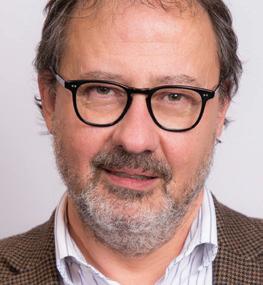
I remember this lovely Cornwall shoot like those long hot summers of youth and innocence. It was the first show I really worked on right through, and I loved it. I was hooked by the idea of a group of people coming together to make something, and I learned so much working with a generation of great children’s TV writers – Julia Jones, Helen Cresswell and Alan Seymour – not to mention Enid Blyton’s formidable daughter watching over
Love/Hate was raw, crazy, thrilling, angry, funny, touching, silly and above all honest. This one was special.
us! It was also the show containing my biggest script editor mistake: getting Timmy the dog in two places at the same time...
Silent Witness
Matthews was script editor on the BBC series from 2004 to 2006
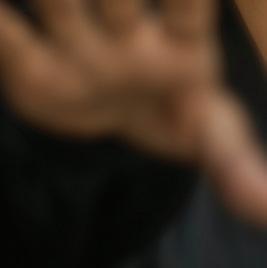

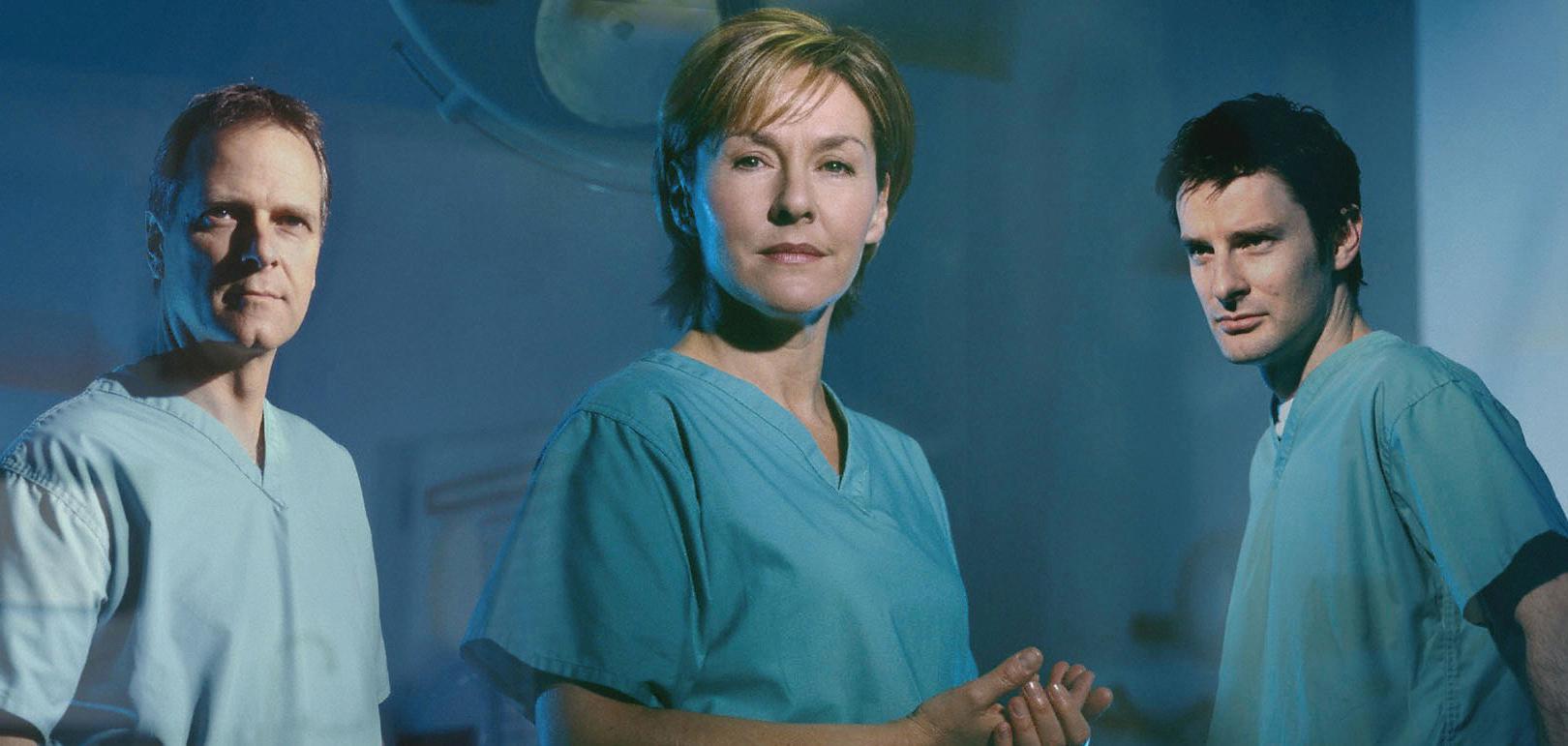
This is where I really learned my craft – the brain-crunching, puzzlesolving work of genre storylining. Yes, there was the forensics and the autopsy stuff, but under that

is all the machinery of the crime genre: clues and suspects and red herrings, how much you reveal, how much you keep hidden. It was kind of like doing crossword puzzles for three years. But a nice thing about Silent Witness is that, as it’s not heavily serialised, writers could come in and tell their story, and I was lucky to bring in some new writers like Rhidian Brook.
The Borgias
Matthews was a consulting producer on the Showtime period drama between 2010 and 2012 I will be ever thankful to the late James Flynn for this. My first script meeting with showrunner Neil Jordan was in his house in Dalkey, his Best Screenplay Oscar glaring down at me from a shelf, and I thought, ‘How am I going to give script notes to this guy?’ But it was here that I learned how to work with first-rate talent, and the joy of being part of a world-class team on such a large-scale project. It all came from the scripts: Neil could write beautiful poetic dialogue faster than most writers can type.
Love/Hate
But something happened. We got something right and the show hit a post-Tiger Irish consciousness and became a huge phenomenon. Working closely with Stuart, I really learned what a writer does, how to support them, how to keep sight of their vision, and how to communicate and protect and share it. The result is raw, crazy, thrilling, angry, funny, touching, silly and above all honest. This one was special.
Blinded by the Lights
and lyrical, and very local. What I really learned here was about risk and trust: the courage needed to trust talent even if delving into all the layers is challenging. But it worked; it was a big success in Poland. I still don’t fully understand it, but I love it!
30 Coins



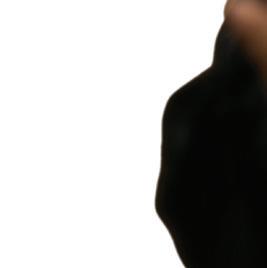



Matthews exec produced the Spanish HBO series, which debuted in 2020


. This was stripped-down,
pages a day out
Matthews was a producer on the RTÉ series from 2011 to 2014 Stuart Carolan’s Dublin gangster masterpiece couldn’t have been more different from The Borgias was stripped-down, low-budget grunge, shooting too many pages a day out of the back of a minibus.
Matthews was an exec producer on the 2018 HBO series










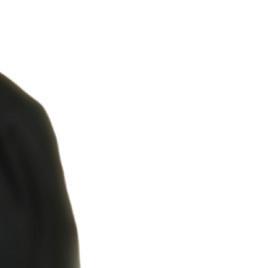
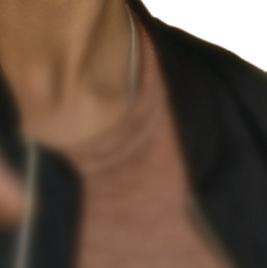

My first Polish show at HBO Europe, was a thriller from a cool hipster novel with a hot young director – it’s a crazy, trippy gangster epic about a Warsaw drug dealer whose life unravels in the busy days before Christmas. It’s strange, artistic
I grew up on comics, video nasties and role-playing games, so when I met producer Pokeepsie’s Alex de la Iglesia, it was love at first sight. We shared a delight in pure genre storytelling. 30 Coins was so clear – I knew what it was and what Alex was doing, and Alex trusted me. It’s a super-fast horror mash-up of exorcists, monsters, witches, demons and the Devil himself; a roller coaster, a colourful circus act with Alex as ringmaster. Look out for S2 coming soon: it’s bigger and crazier, and with Paul Giamatti as you’ve never seen him…

END CREDITS: Six of the Best 46
“ ”
DQ
Steve Matthews
Blinded by the Lights
Blinded was from director – it’s a crazy,
Jeremy Irons in The Borgias
Polish drama Blinded by the Lights
Silent Witness
30 Coins
















NCIS: Los Angeles



NCIS: New Orleans
REMADE ABROAD
As long-running crime franchise NCIS expands to Australia, showrunner Morgan O’Neill tells DQ how NCIS: Sydney blends familiarity with scale, ambition and a new cultural perspective.
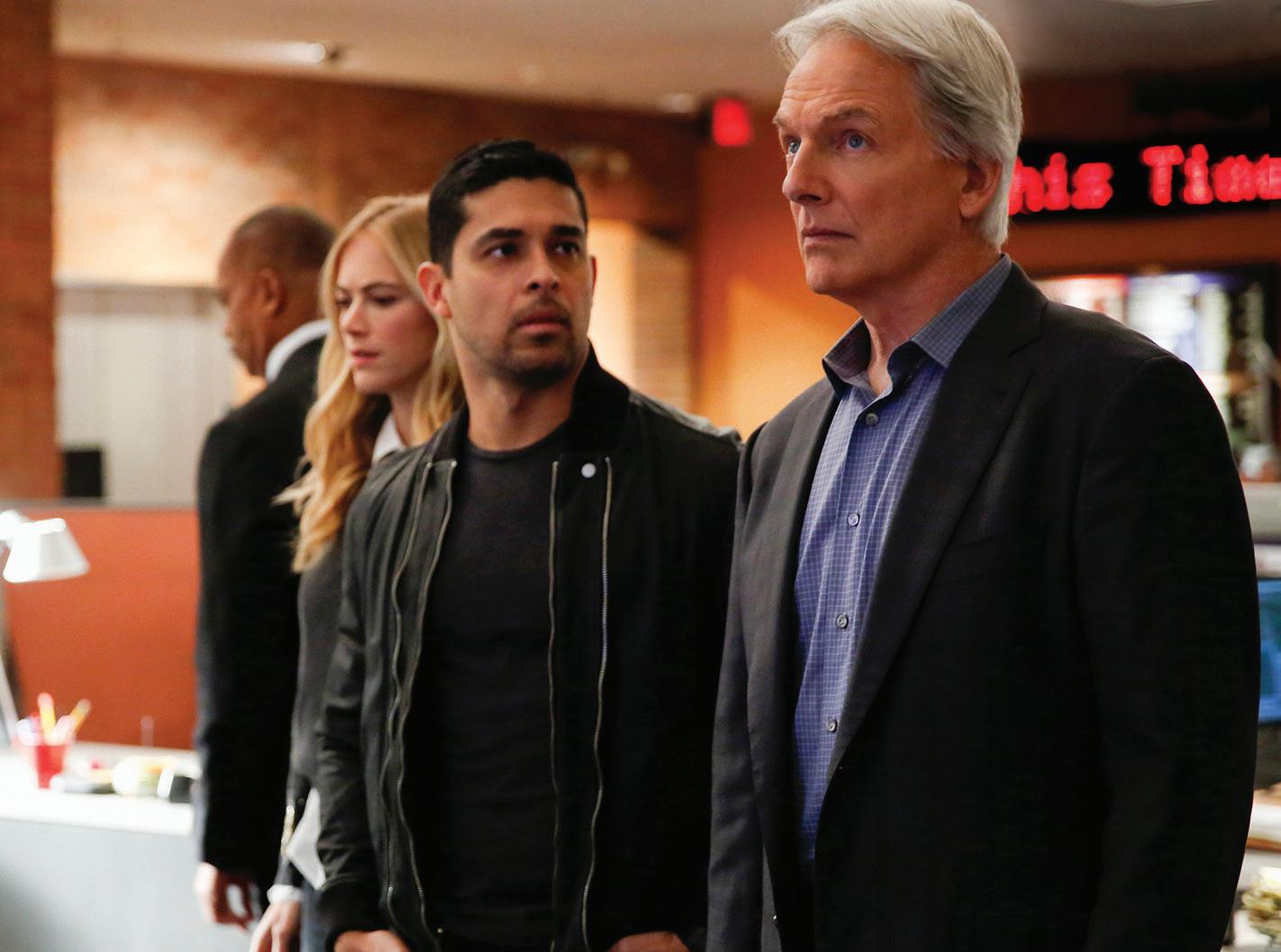
For 20 years, the special agents of the Naval Criminal Investigative Service (NCIS) have been investigating crimes involving the US Navy and Marine Corps and their families. NCIS , which is set in Washington DC, debuted on US network CBS in 2003 and has led to a number of spin-offs, including NCIS: Los Angeles , NCIS: New Orleans and NCIS: Hawai’i .
Now the series is heading to Australia – but rather than being a local adaptation in the traditional sense, NCIS: Sydney is the first edition of the long-running franchise to take place outside the US.
Launching on Paramount+ in Australia and CBS in the US this November, the eight-part series is set against the backdrop of one of the world’s most iconic harbour cities – and rising tensions in the Indo-Pacific. It follows a multinational taskforce made up of US agents from the NCIS and the Australian Federal Police (AFP) as they attempt to keep naval crimes under control in the most contested patch of ocean on the planet.
The team is led by NCIS Special Agent Michelle Mackey (Olivia Swann) and her 2IC AFP counterpart Sergeant Jim ‘JD’ Dempsey (Todd Lasance). The cast also includes Sean Sagar as NCIS Special Agent DeShawn Jackson; Tuuli Narkle as AFP liaison officer Constable Evie Cooper; Mavournee Hazel as AFP forensic scientist Bluebird ‘Blue’ Gleeson; and William
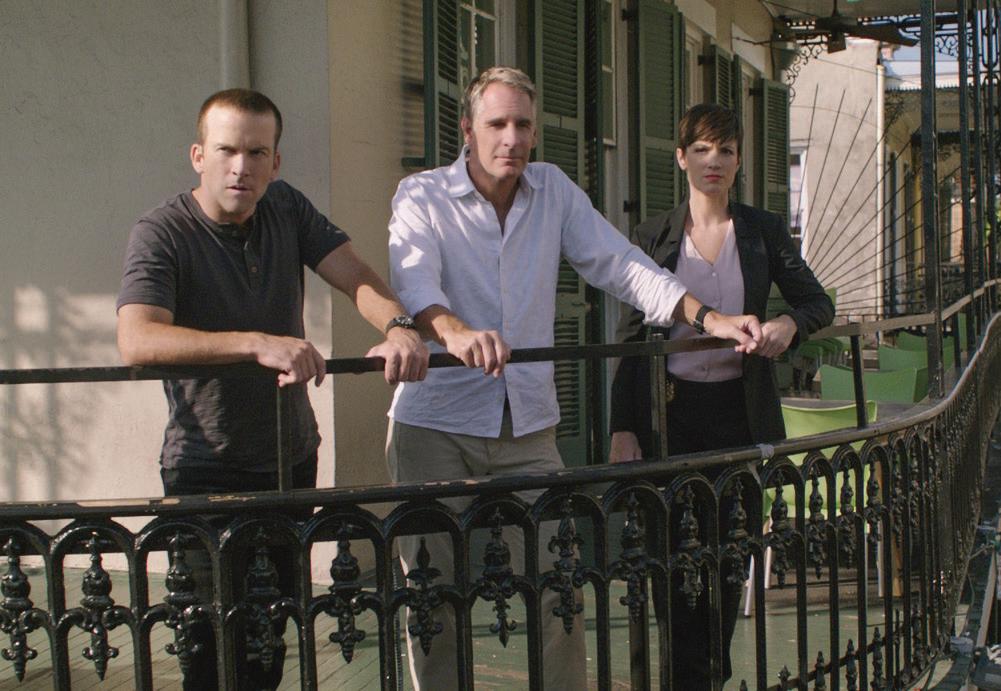
McInnes as AFP forensic pathologist Dr Roy Penrose.

Produced by Endemol Shine Australia for CBS Studios and Paramount Australia, NCIS: Sydney was created by Morgan O’Neill (Les Norton), who initially sought to uncover what had made the original show and its other iterations so successful – a process that led him to watch countless episodes of the drama over several months.
One key reason the showrunner identified is that the stories are authentic to each show’s setting. O’Neill consequently led a diverse writers room that could offer an insight into Australian culture and society, including First Nations perspectives.
“If you watched those shows, the original, which is still going, is very different from Los Angeles in terms of its tone, its swagger, its tempo, its colour palette, its sonic palette, and very different again from New Orleans, which is in itself different from Hawai’i,” he tells DQ.



“That really informed the decisions I made trying to create this world, because I felt like no one was interested in retelling those stories. They wanted to see what an authentic take on a different part of the world, from a different cultural lens, was going to look like.”
Pitching his take on NCIS , O’Neill was encouraged to “swing for the fences” – a phrase that became his mantra. “And we really did,” he continues. “We really wanted to make sure this show feels distinctively Australian, distinctive from all the other iterations of the show, that we’re looking at it through a cultural lens that is going to be authentic for an Australian audience and is going to be intriguing as a result for an international audience.”
However, the unique Australian take on NCIS doesn’t mean the Sydney edition strays too far from the original story format – a fouract structure with a cold-open teaser. “Usually, within the first two minutes there’s a body drop, and by the end of the hour it’s usually solved,” O’Neill says.

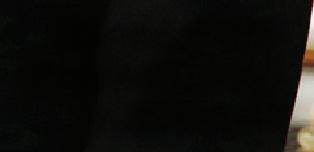
He also points to the self-contained episodes as one of NCIS’s strong points, providing comfort to viewers who don’t need to have followed an entire series –consisting of multiple seasons – to be able to dip into the latest story.
But while viewers might come to the show for the crime, O’Neill hopes they stay for the characters. “One of the things the [other NCIS] series do very strongly is they build this sense of family around the five or six key characters in the show, and they don’t really go home with them very much in the same sense as something like NYPD Blue did years ago,” he says. “They basically decided that people who work long hours doing arduous jobs actually find family in the people they work

99
The original NCIS, which debuted back in 2003 on CBS
We really wanted to make sure this show feels distinctively Australian, distinctive from all the other iterations of the show.
“ ”
Morgan O’Neill
NCIS: Sydney
with, so we’ve hewed very closely to that. We leave the private lives alone and throw all our attention into trying to make sure these people are interesting and connected.
“I pitched the version of the first NCIS blended family, because that’s what these characters end up being, by hook or by crook. You spend so long in the office working with these people that eventually they take on a sense of genuine family. And in our case, it’s a blended family and everything that comes with that – good and bad.”

O’Neill has worked closely with officers from the real NCIS office in Sydney to make sure the series reflects the work of its staff, as well as the cultural alignments between the NCIS and the AFP.

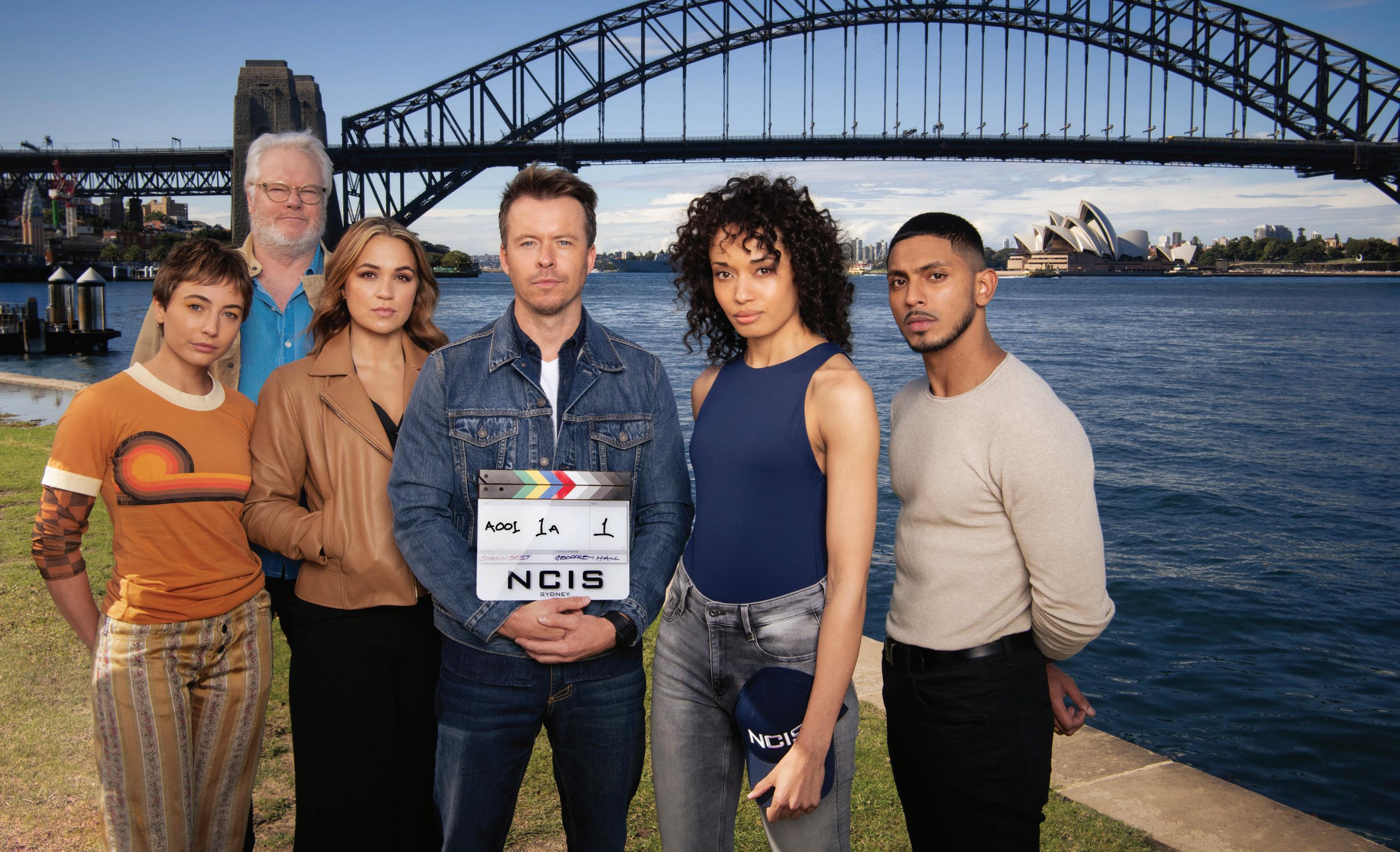
“What’s really fascinating in the first season is how quickly those cultural barriers fall away, because what the show is at heart is a police procedural with a wink,” he says. “It’s got a twinkle in its eye. It’s not a heavy-handed police procedural where you get into the dark innards of the human psyche. It touches on that but, really, it’s a show that’s profoundly entertaining.
“What’s interesting too is that the show itself and the organisation it portrays is often seen as a bit of an underdog. In a funny way, that sounds like Australia. We’re a very big country geographically, but we’re a very small country in terms of population, and we thrive on the idea that we have to scrap our way out of things. It’s what we do as Australians and it feels like a very good, natural fit that NCIS should arrive here.”
The Royal Australian Navy has also been involved during development and production, and was on hand to assist in one action-packed stunt in the opening episode.
“I’d written – I don’t know why I wrote this – that there was a chase across Sydney Harbour
with a US Navy Seahawk flying 50 feet above the water, chasing a speedboat laden with explosives,” O’Neill says. “I wrote it and no one questioned it. No one asked how we were going to do it. I kept waiting for that tap on the shoulder to say, ‘What the hell are you doing?’ No one ever did.
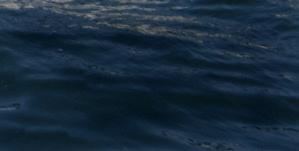
“We got to the point where the navy said, ‘What do you need from us?’ I said, ‘Well, we need a fully crewed Seahawk to fly 50 feet above Sydney Harbour and chase down a boat laden with explosives.’ And they said, ‘OK, good, we can do that.’”
On the morning of the shoot, O’Neill’s wife wondered why he was looking stressed, and he explained what they were about to film. “She said, ‘Well, you came up with it. Whose fault is that?’ And she’s right,” he laughs. “There are a whole bunch of moments where I was questioning whether my ‘swinging for the fences’ ambition was actually the right thing to do. But looking back, it was exactly the right thing to do.
“We were very fortunate to have partners like the navy who facilitated us to really achieve things you couldn’t otherwise do. What you see is a production value that completely outstrips its budget.”
Working on NCIS: Sydney, which is distributed outside Australia by Paramount Global Content Distribution, has been “the most fun I’ve had in my 25 years working in this industry,” O’Neill concludes. “It’s a joy to be telling really ambitious stories in my hometown with a cast and crew of really talented Australians who are having just as much fun as I am. When people are having a good time doing what they’re doing, somehow it transfers to the screen. You can see a genuine Australian twinkle in the eye, and I’d like to think the Australian audience is going to really dig that.”

END CREDITS: Remade Abroad DQ . Fall 2023 99 49
DQ
NCIS: Sydney is the first spin-off set outside the US
The Sydney version of the show launches this November
A blueprint for a new era of television
IT’S BEEN A HORRIBLE 18 MONTHS FOR THE GLOBAL TELEVISION INDUSTRY
. Prompted by rising inflation and a cost-of-living crisis that has hit household budgets – and the amount people are willing to spend each month on a seemingly endless number of pay TV or streaming services – Netflix saw its first fall in subscribers in more than a decade in April 2022, leading its share price to tumble. HBO Max then reduced its original scripted output across Europe, and Sky announced it was shutting down its own scripted originals team in Germany from 2024.
Meanwhile, Nordic streamer Viaplay was engulfed in a financial crisis this summer, leading to the departure of many of its drama executives across the region and a new strategy to focus on sports and reality instead of expensive scripted content that hasn’t always hit viewing targets.
If there’s a glimmer of hope on the horizon, it’s that the Writers Guild of America has struck a deal with the Alliance of Motion Picture and Television Producers (AMPTP), bringing an end to one half of a historically lengthy strike that has shut down most of Hollywood since May. At the time of writing, it remains to be seen how quickly actors union SAG-AFTRA will follow suit in its own negotiations with the AMPTP, but any return to work will be welcomed by not only those on the picket lines but also the number of additional workers behind the camera who have been affected by the shutdown, in the US and around the world.
But once production restarts on US series, it’s unlikely to herald a return to the golden (platinum?) age of scripted television we have all been enjoying for the past decade. Indeed, if anything, it’s more likely to lead to a worldwide reset that sees a lower volume of scripted production and tighter budgets as broadcasters, producers and distributors seek to ensure their money goes as a far as possible – and viewers are not overwhelmed by the sheer amount of programming available at their fingertips.
What else could this mean? Coproduction has never gone away, but with streamers slowing down – or stopping altogether – there is the opportunity for a new boom in creative-led coproductions that allow partners to better pool and manage their resources together with the shared goal of a single story.
Indeed, there could also be a rapid rise in projects that unite streamers with local broadcasters, bringing the best of the rest of the world to our TV screens while ensuring local broadcasters continue to thrive and maintaining sizeable production budgets for individual projects – even if they don’t match previous levels.
But amid the commissioning slowdown, what kinds of series can we expect to get the greenlight? Will commissioners retreat towards series with broad appeal in the hope of pulling in viewers, or will niche, riskier genres and stories win out? In any case, the importance of packaging projects – piecing together high-value existing IP with well-known talent in front and behind the camera – has never been greater, and will likely need to be in place as early as possible to get the network to sign on.
New and improved tax incentives will also be key to luring filmmakers and their partners. But as sustainable models of production shift ever closer to the front of the industry’s collective mind, where and how a series is filmed, edited and financed, as well as a focus on reduced travel and CO2 emissions, will become an increasingly important part of an already complex puzzle. It’s one part of the industry that can no longer be ignored, no matter what other challenges there might be.
The future is looking brighter for distributors that, having seen streamers and US studios start to hold back rights for their latest series with a view to launching them worldwide on their own platforms, are starting to find old windowing models and thirdparty acquisitions are back in fashion. That they have started developing their own series means their programme slates will be nicely stocked when broadcasters – looking to fill some gaps amid their own commissioning slowdown – come calling.
There’s still a lot of uncertainty facing the business, and there is likely to be for some time yet. But having come through previous recessions and Covid stronger than ever, the chances are that scripted television can boom once again. The only question is what to call it – the rhodium age, anyone?
Michael Pickard Editor, Drama Quarterly

WHO’S WHO
EDITORIAL Editorial director Ed Waller ed@c21media.net, Editor of C21Media.net Jonathan Webdale jonathan@c21media.net, Chief sub-editor Gary Smitherman gary@c21media.net, Chief sub-editor, Drama Quarterly, and head of design John Winfield john@c21media.net, News editor Clive Whittingham clive@c21media.net, Channel21 International editor Nico Franks nico@c21media.net, DQ editor Michael Pickard michael@c21media. net, Research editor Gün Akyuz gun@c21media.net, North American editor Jordan Pinto jordan@c21media.net, C21Kids editor Karolina Kaminska karolina@c21media.net, Senior reporter Neil Batey neil@c21media.net C21TV Head of C21TV Jason Olive jason@c21media.net, Video editor/motion designer Adrian Ruiz Martin adrian@c21media.net SALES Founding partner & commercial director Odiri Iwuji odiri@c21media.net, Sales director Peter Treacher peter@c21media.net, Business development director Nick Waller nick@c21media.net, Sales Manager Hayley Salt hayley@c21media. net, Senior sales executives Richard Segal richard@c21media.net, Malvina Marque malvina@c21media.net, Telesales executive Yasmin Connolly yasmin@c21media.net EVENTS Event programming director Ruth Palmer ruth@c21media.net, Head of events Gemma Burt gemma@c21media.net, Programming coordinator Erin Blackmore erin@c21media.net, Events coordinator Lucy Corona lucy.corona@c21media.net, PRODUCTION Operations director Lucy Scott lucy@c21media.net, Head of digital Laura Stevens laura@c21media.net, Digital assistant Alex Stevens alex.stevens@c21media. net, Production & events coordinator Courtney Brewster courtney@c21media.net, Team assistant Mia Hodgson mia@c21media.net
FINANCE Finance director Susan Dean susan@c21media.net, Finance manager Marina Sedra marina@c21media.net, Finance officer Shuhely Mirza shuhely@c21media. net. Editor-in-chief & managing director David Jenkinson david@c21media.net
DQ Magazine C21Media Ltd


2nd Floor, 148 Curtain Road, London EC2A 3AT
Tel: + 44 (0) 20 7729 7460
Fax: + 44 (0) 20 7729 7461

Email: michael@dramaquarterly.com

Dramatic Question Fall 2023
“ ”
There’s still a lot of uncertainty facing the business. But having come through previous recessions and Covid stronger than ever, the chances are that scripted television can boom once again.
WHERE SERIES BEGIN IN LILLE, FRANCE & ONLINE

SUBMIT YOUR PROJECTS
DEADLINE: NOVEMBER 30TH, 2023
SUBMIT YOUR SERIES
DEADLINE: DECEMBER 15TH, 2023
MARCH 19>21, 2024
SERIESMANIA.COM
SERIES MANIA FORUM
MARCH 15>22, 2024
SERIES MANIA FESTIVAL
DAVOS 1917
BY JAN-ERIC MACK, ANCA MIRUNA LAZARESCU,

FROM THE PRODUCERS OF BAD BANKS WITH AN OUTSTANDING CAST LED BY DOMINIQUE DEVENPORT

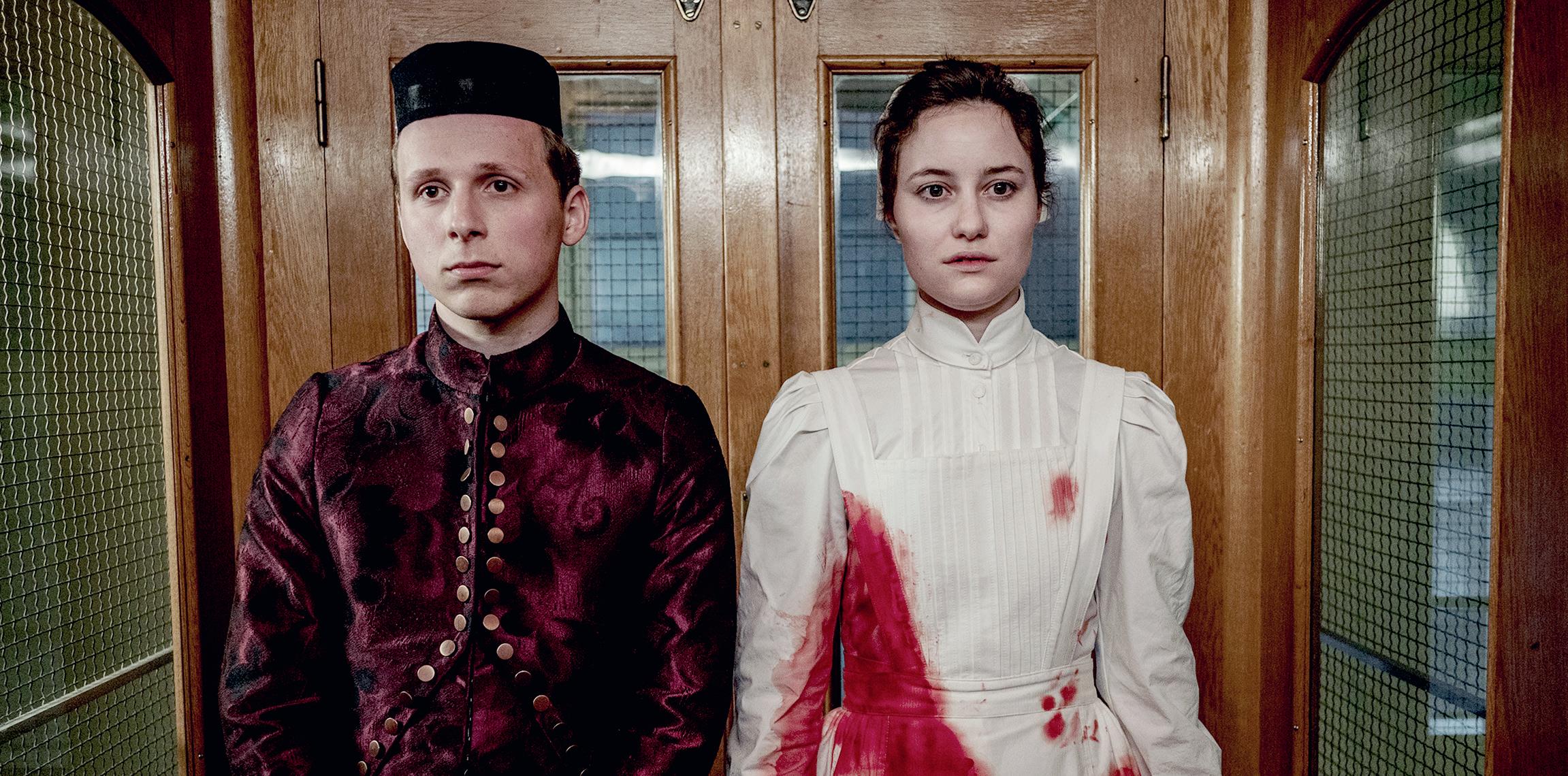
1–3) AND DAVID KROSS
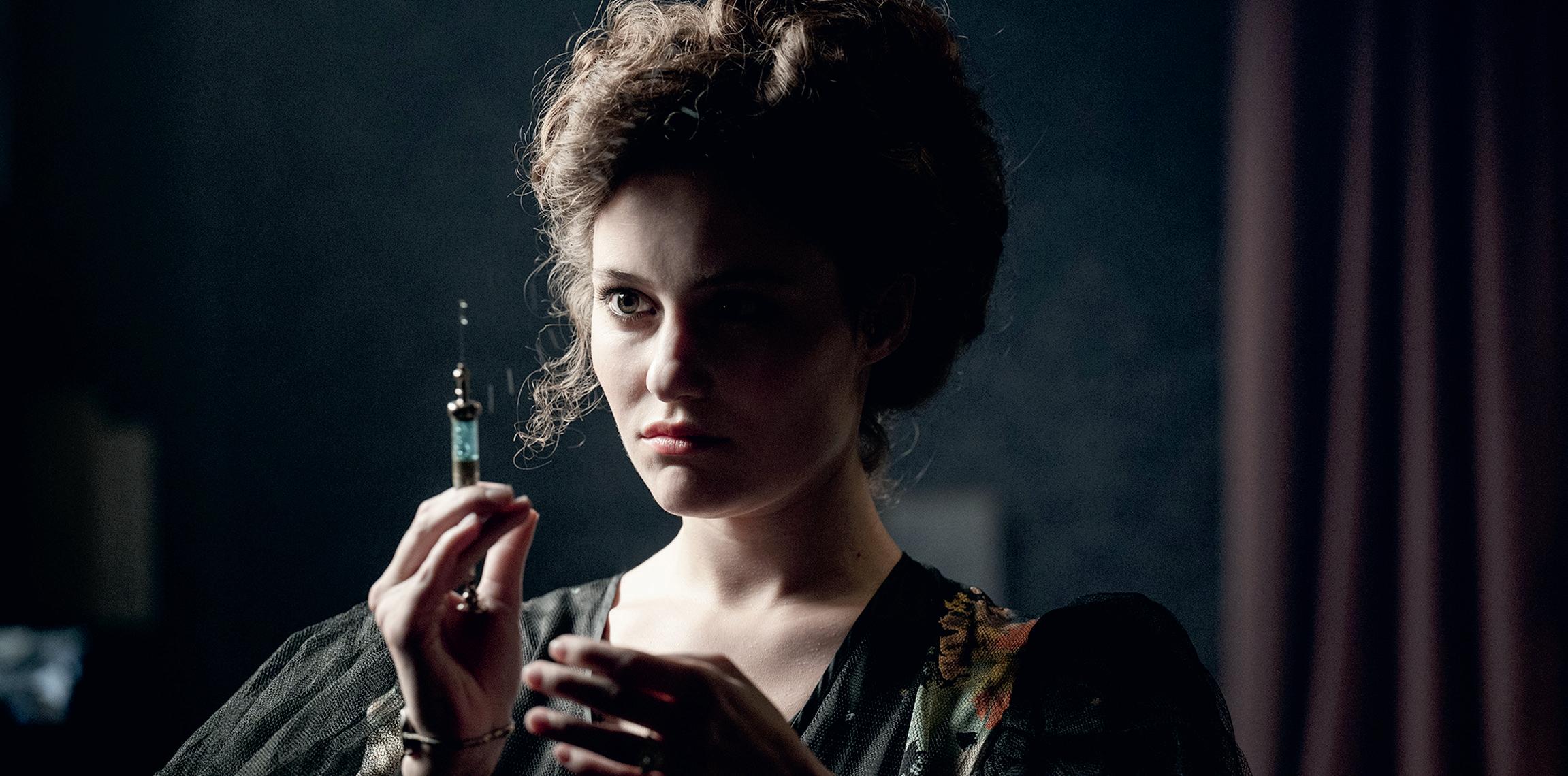
WWW.GLOBALSCREEN.DE
Spy Drama 6 × 45 min
Produced by Degeto
CHRISTIAN THEEDE
CHECK OUT MARKET PREMIERE
































 CHANNEL 5’S BEST EVER SERIES LAUNCH
CHANNEL 5’S BEST EVER SERIES LAUNCH

































































































































































































































































































 Signora Volpe
This Town
Rivière Perdue
Signora Volpe
This Town
Rivière Perdue




















































































 L-R: Courtney Monsma, Naomi Sequeira, Emalia, Courtney Clarke and Miah Madden make up Harlow
L-R: Courtney Monsma, Naomi Sequeira, Emalia, Courtney Clarke and Miah Madden make up Harlow







































 ANNA MAXWELL MARTINSHAUN EVANS
ANNA MAXWELL MARTINSHAUN EVANS






















































































































































































































































































































































































